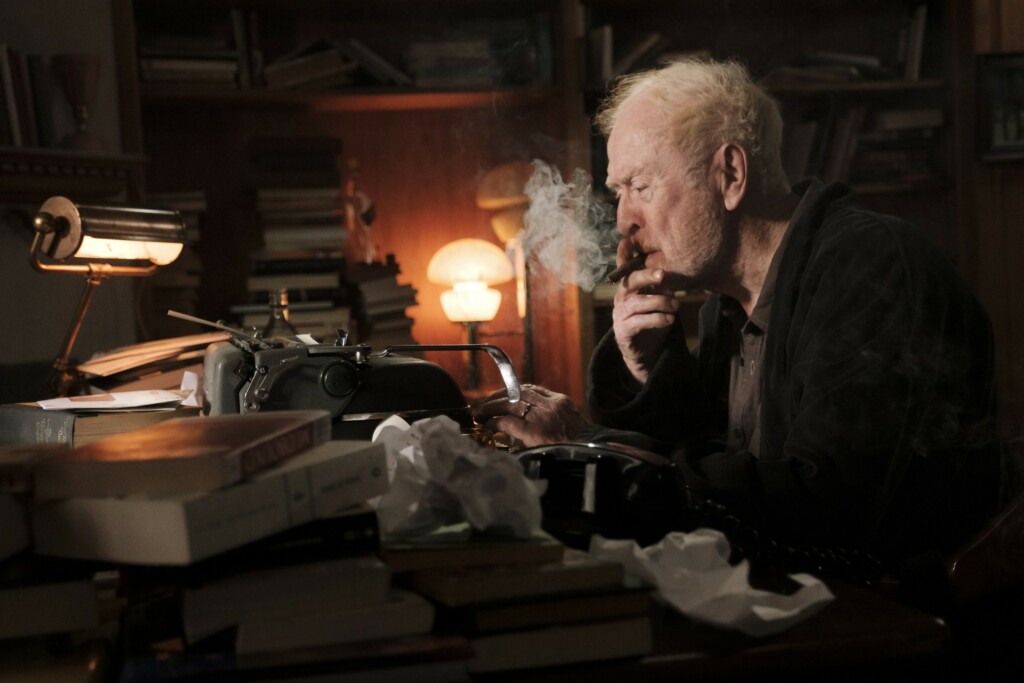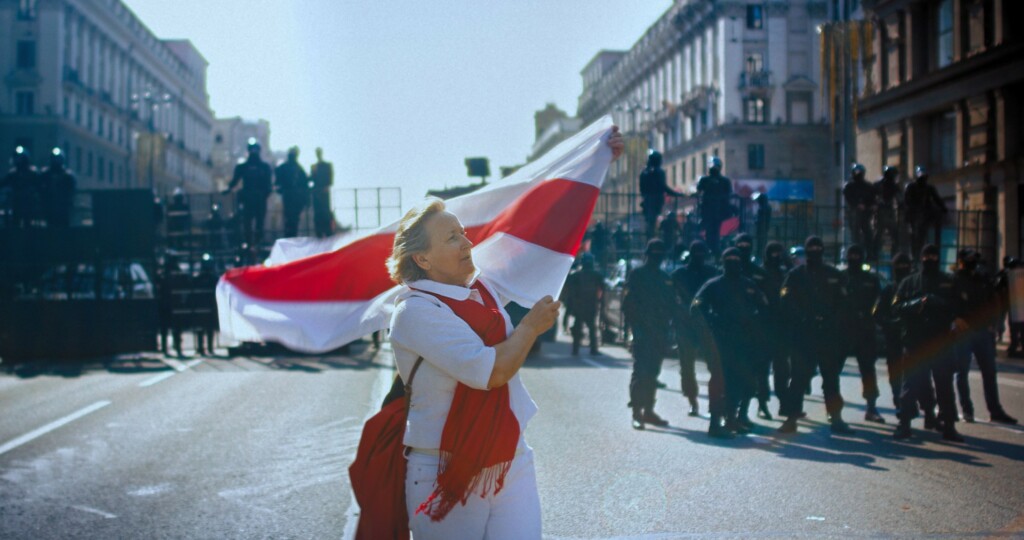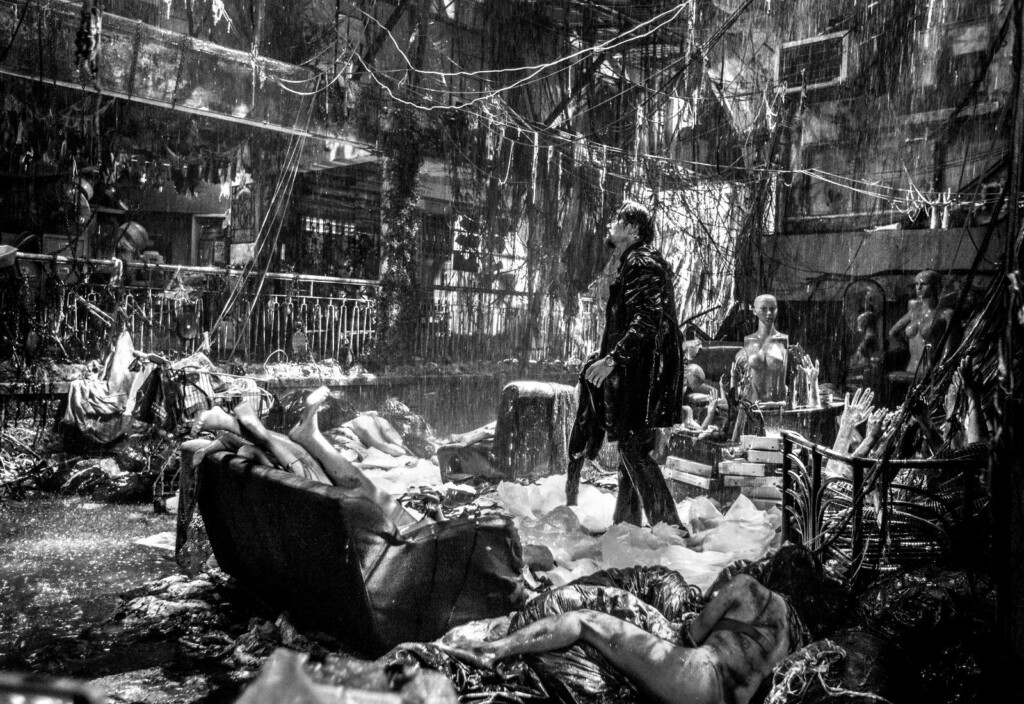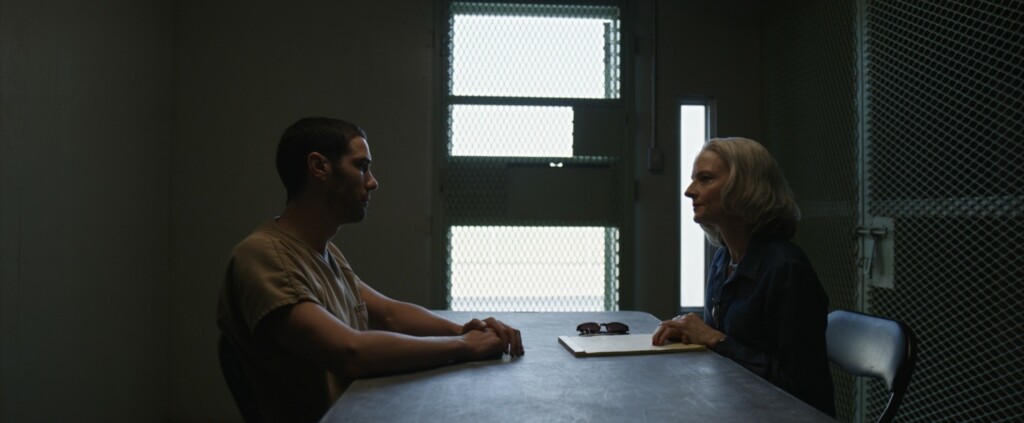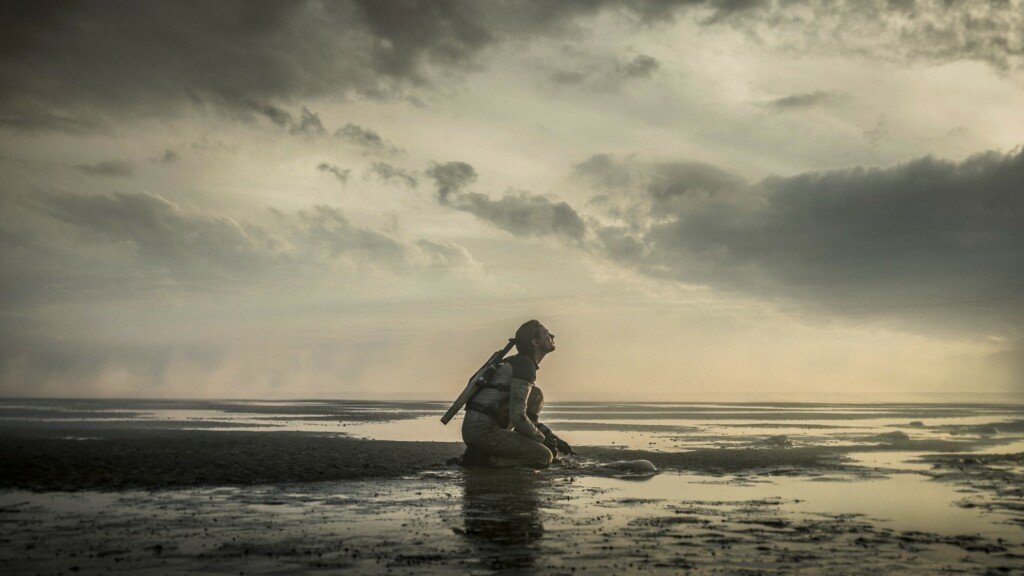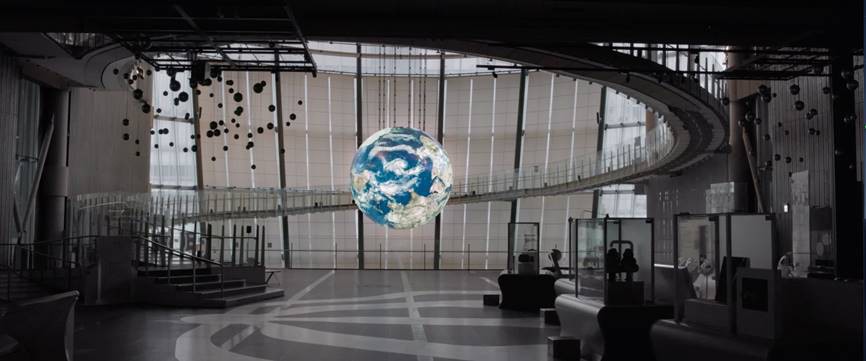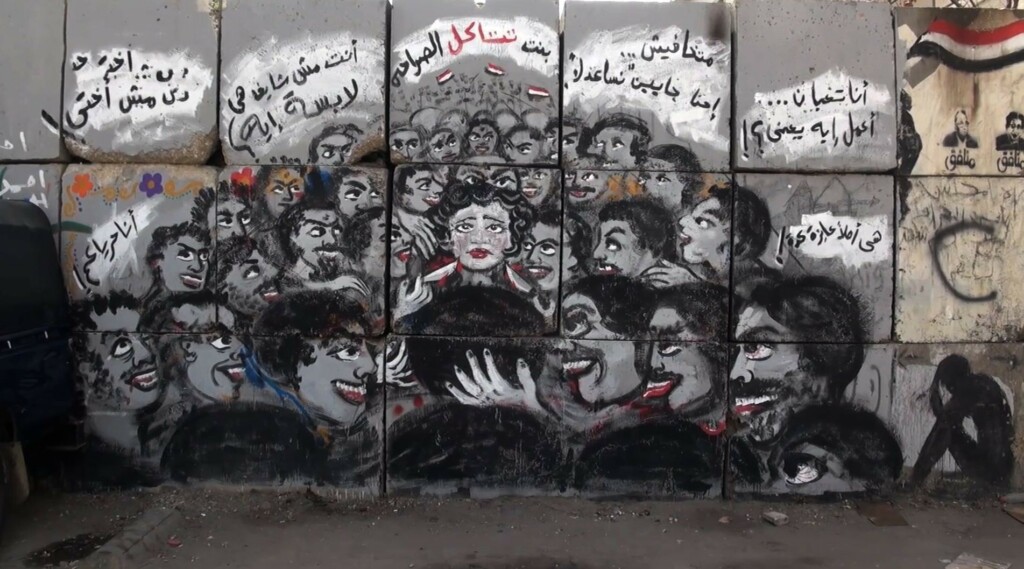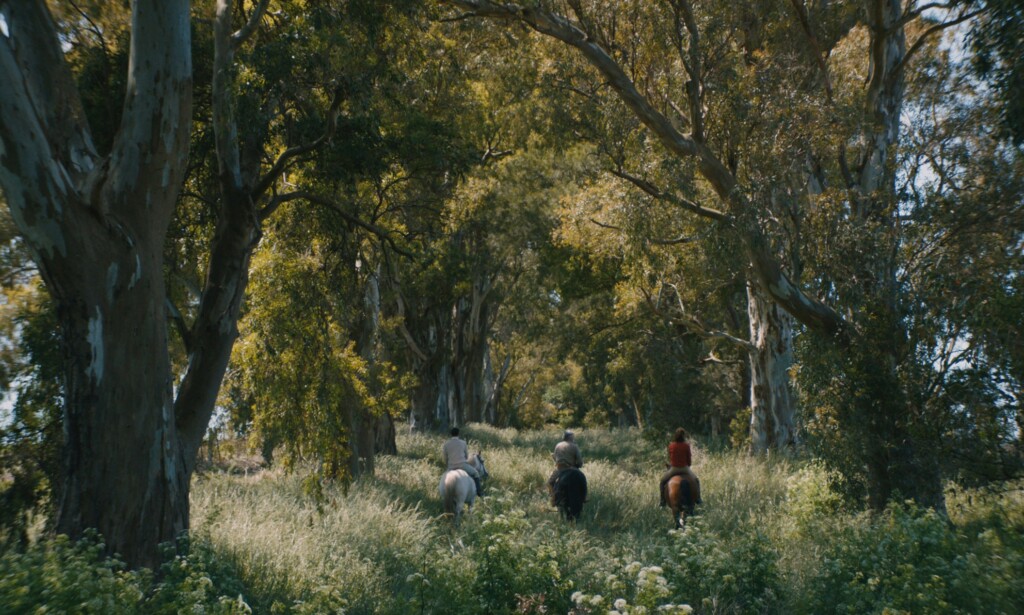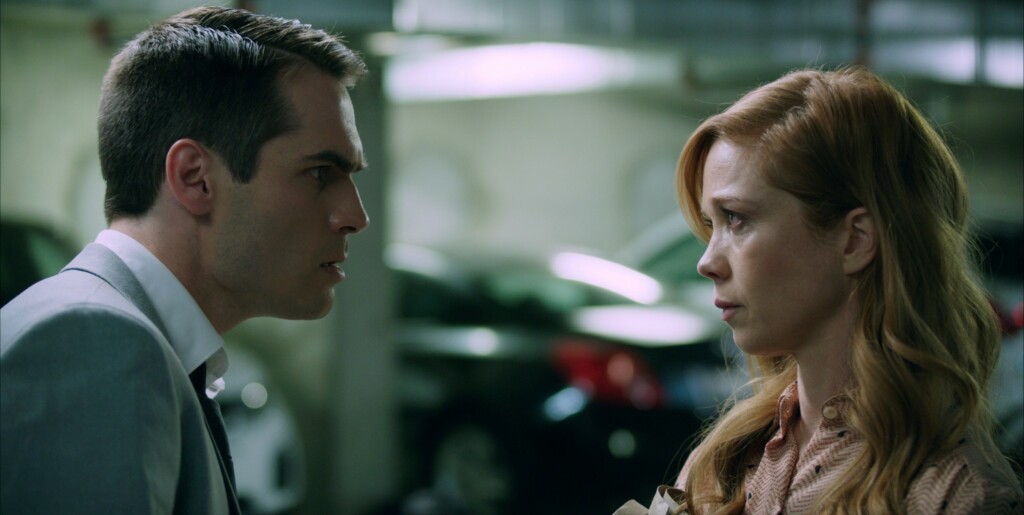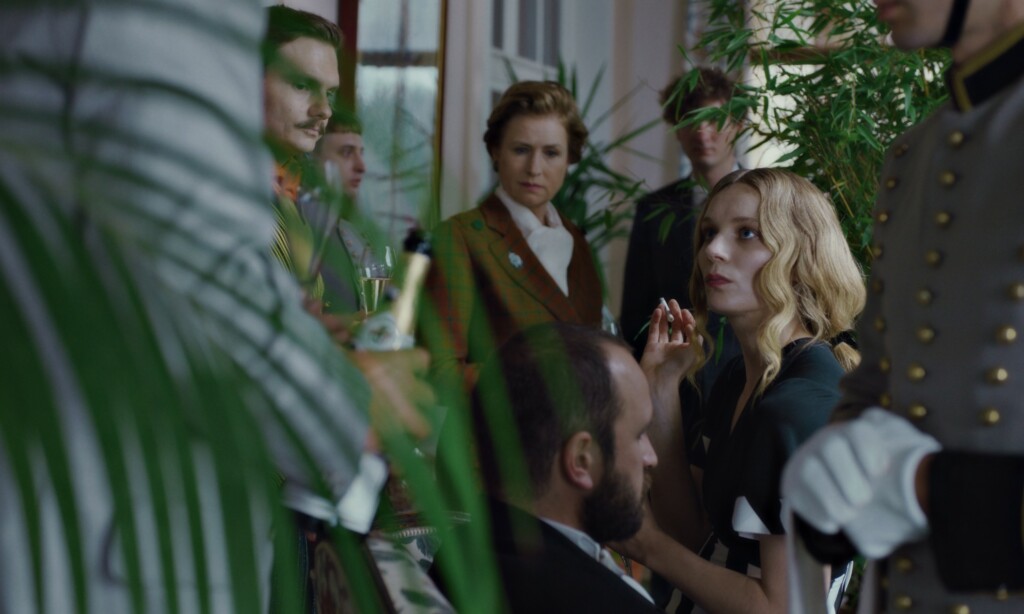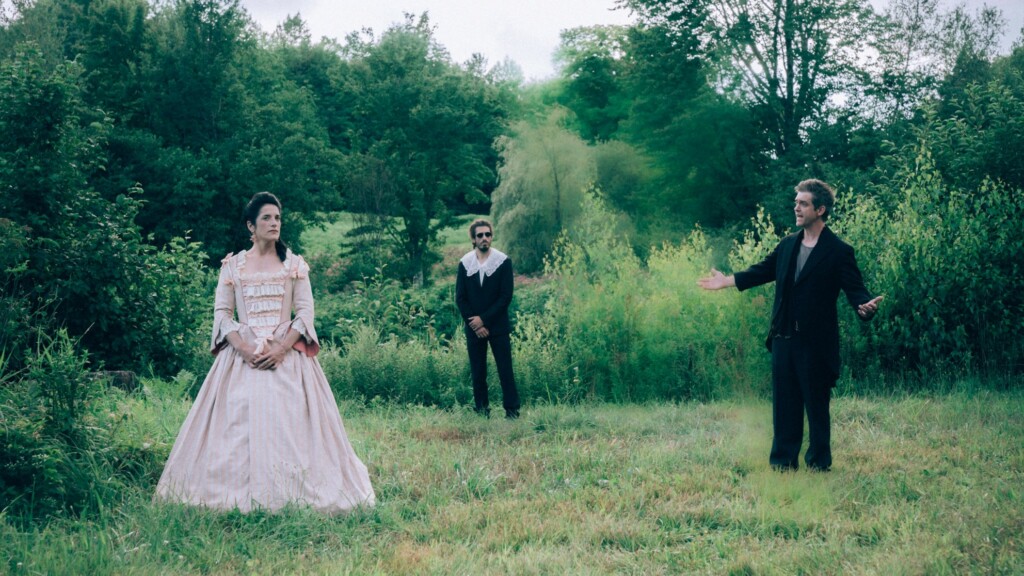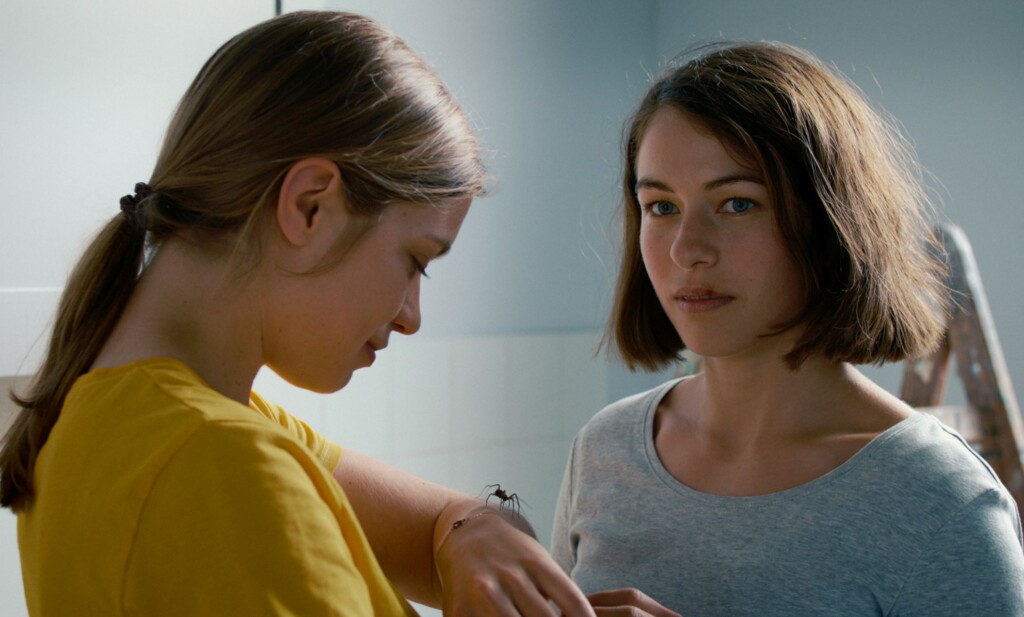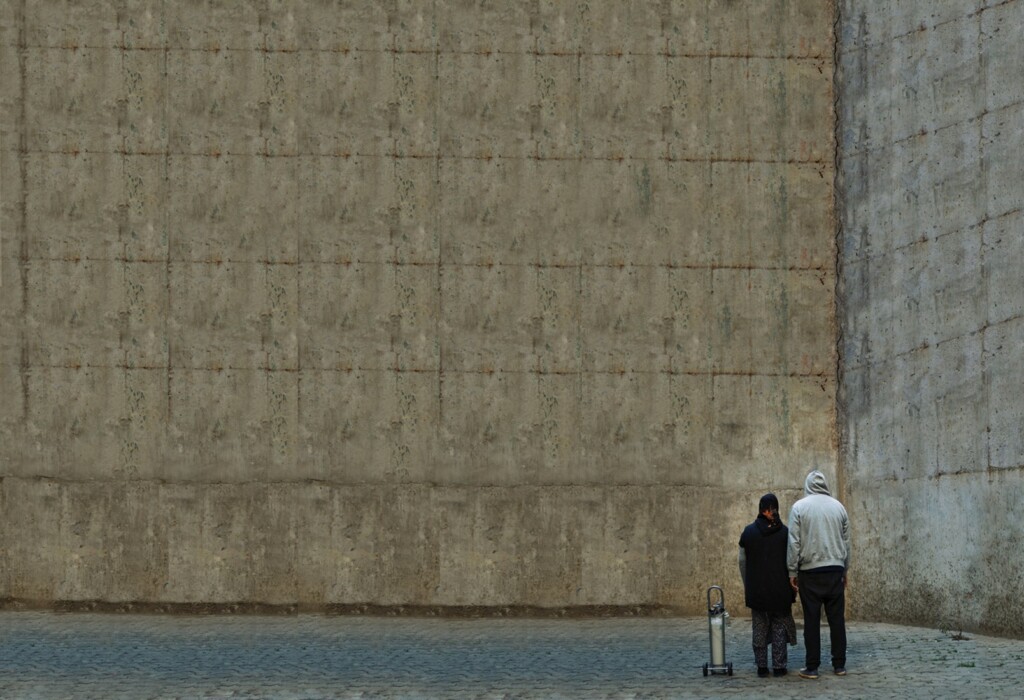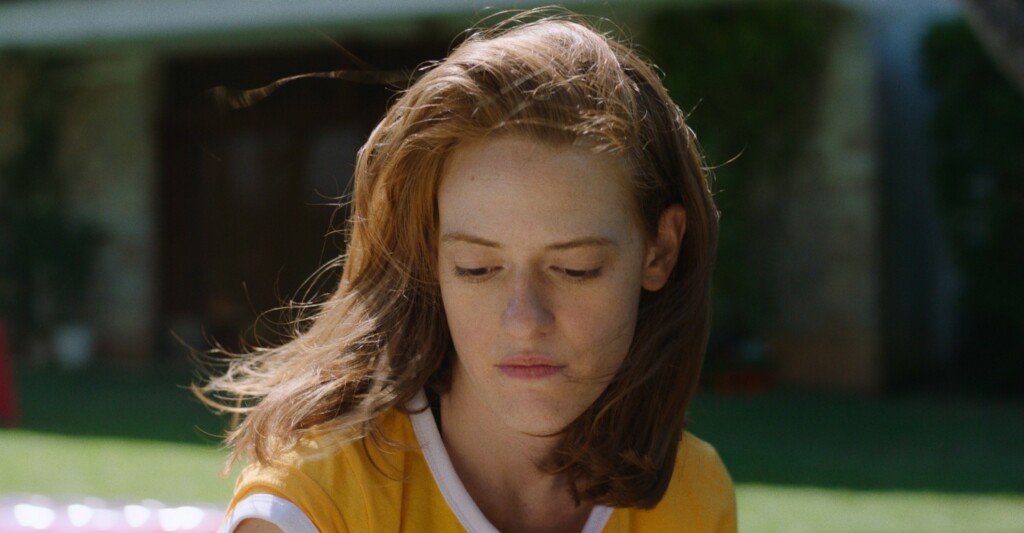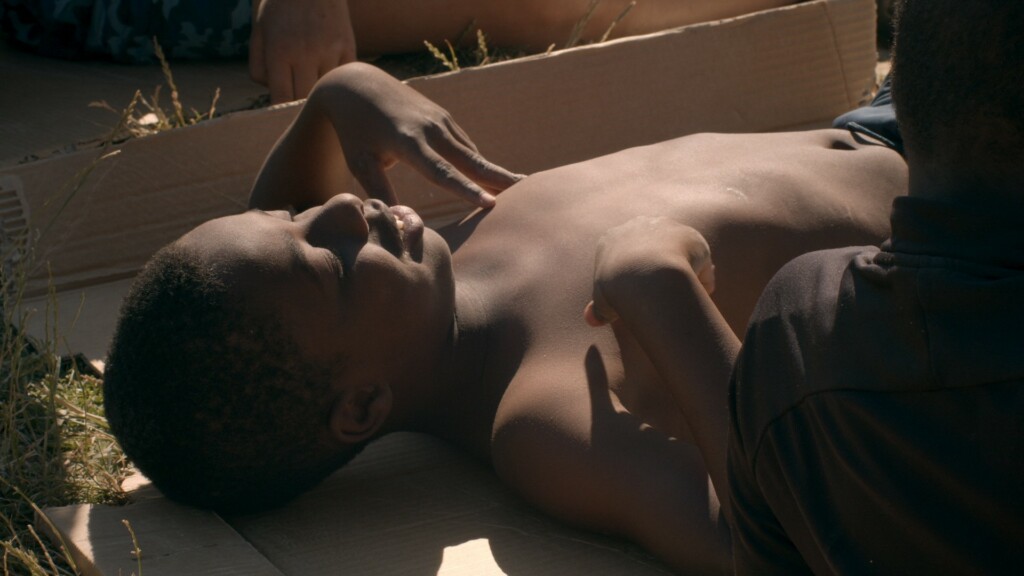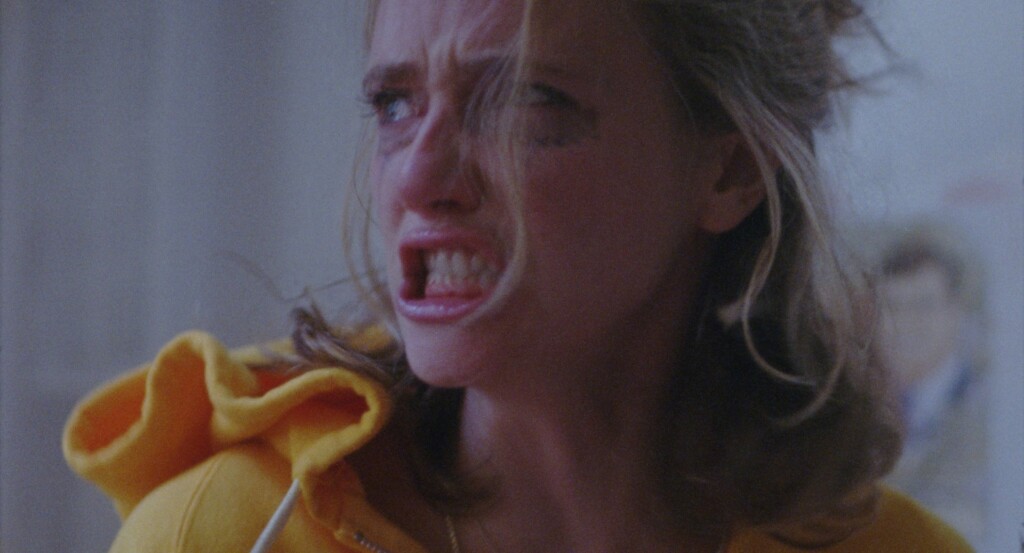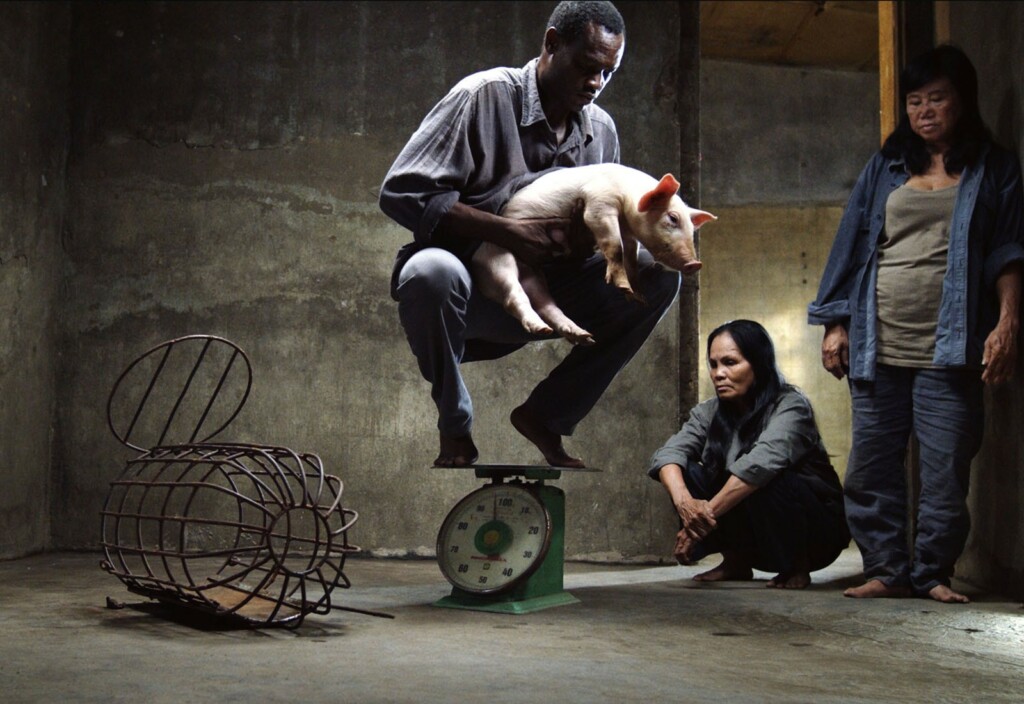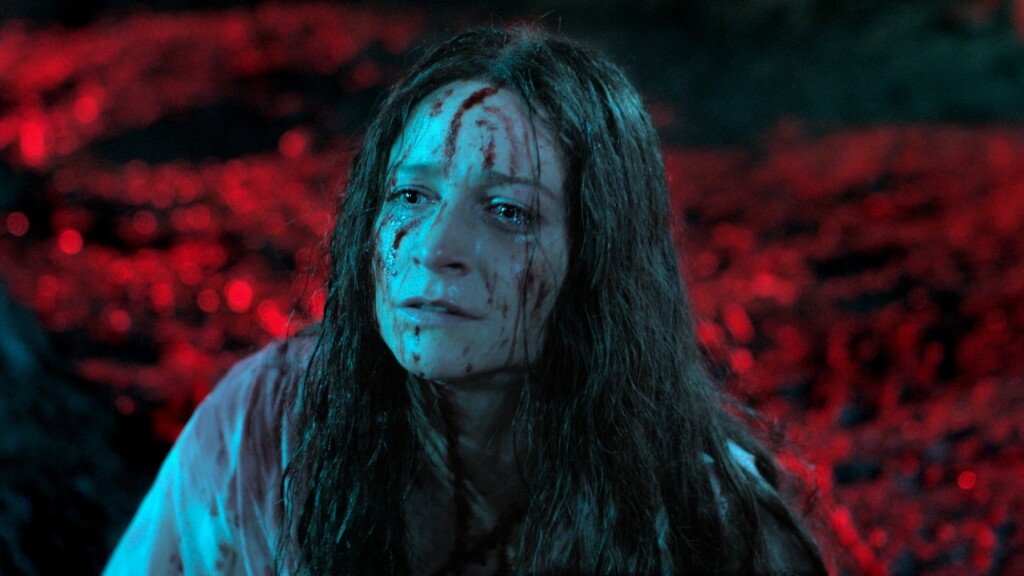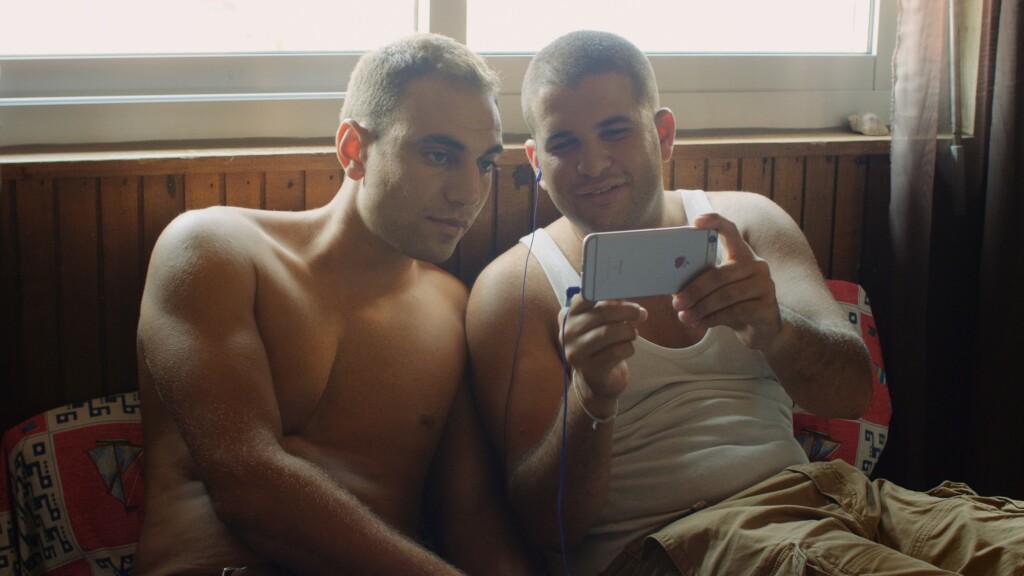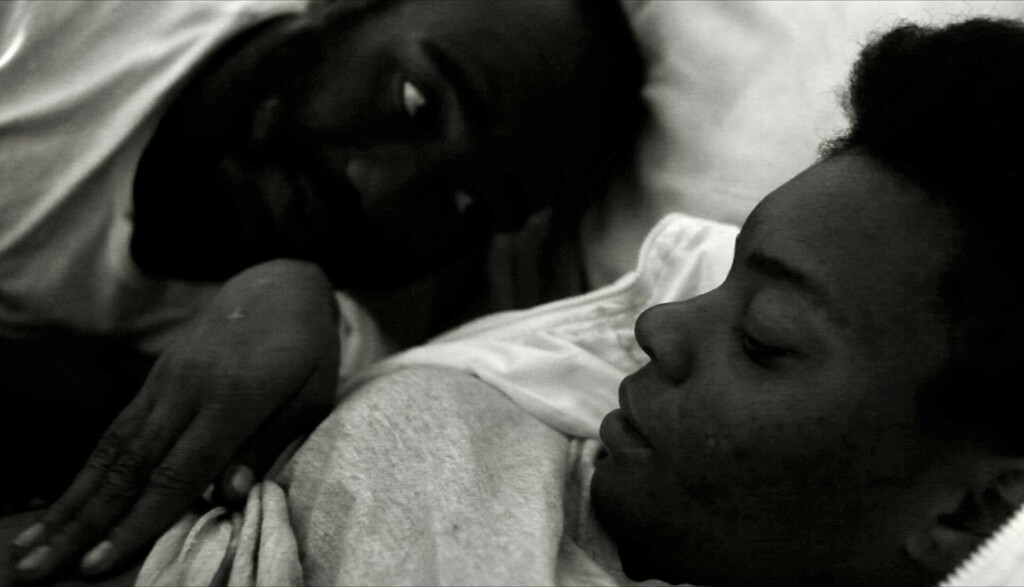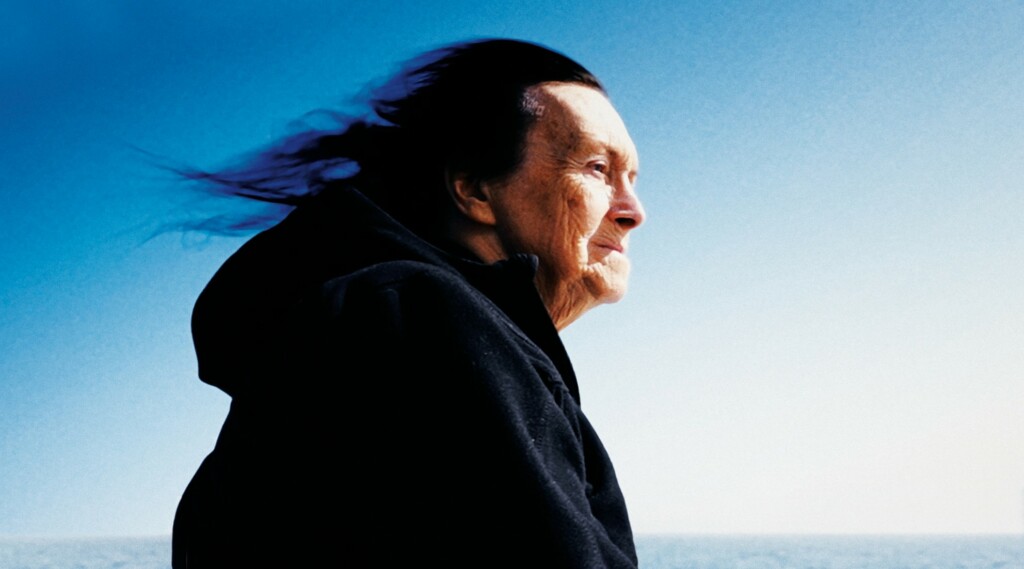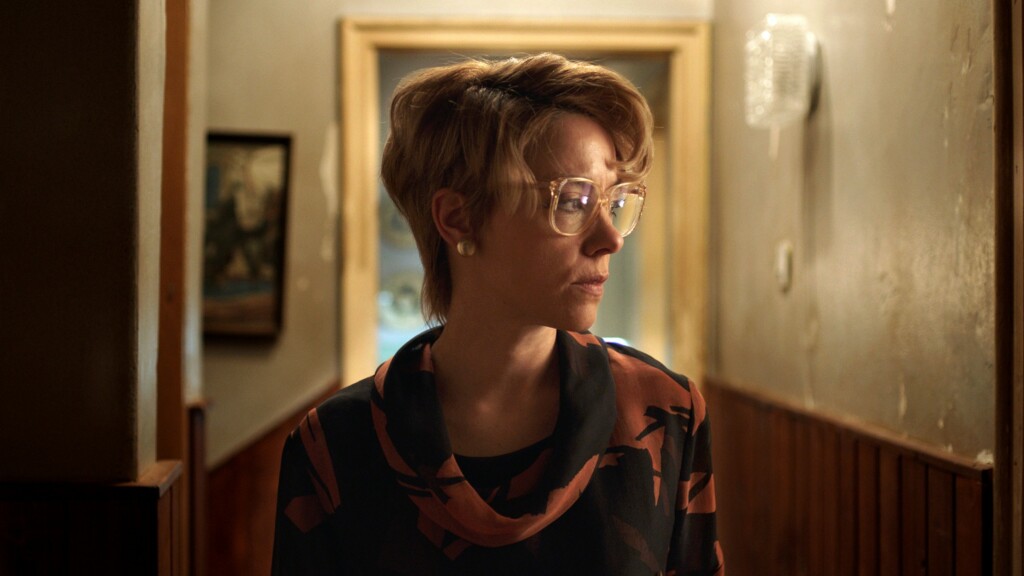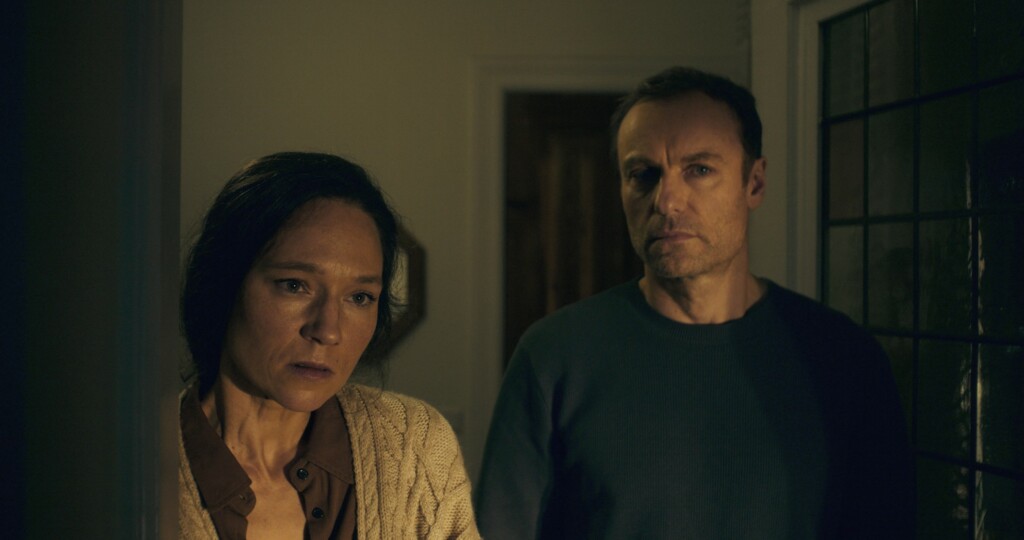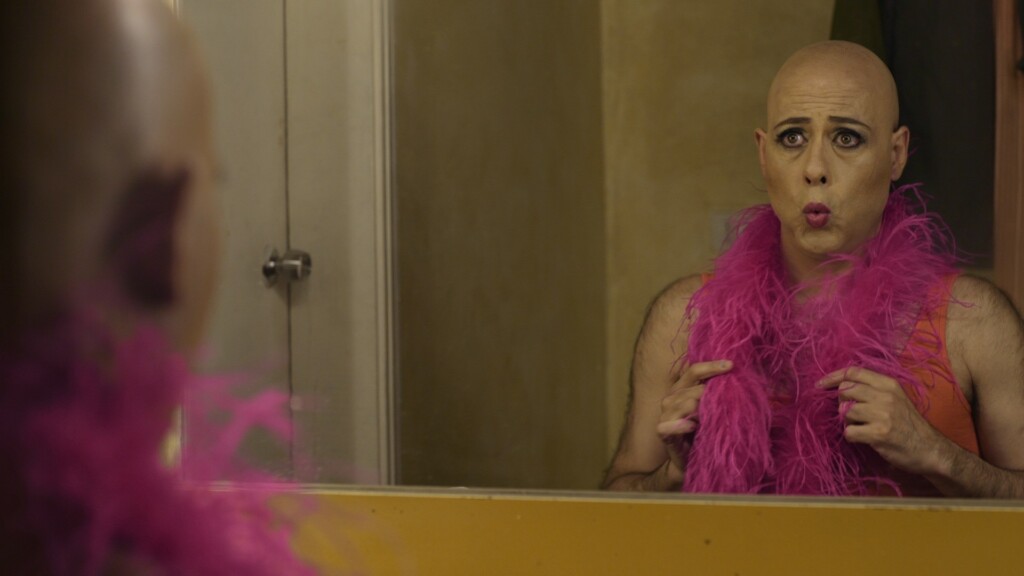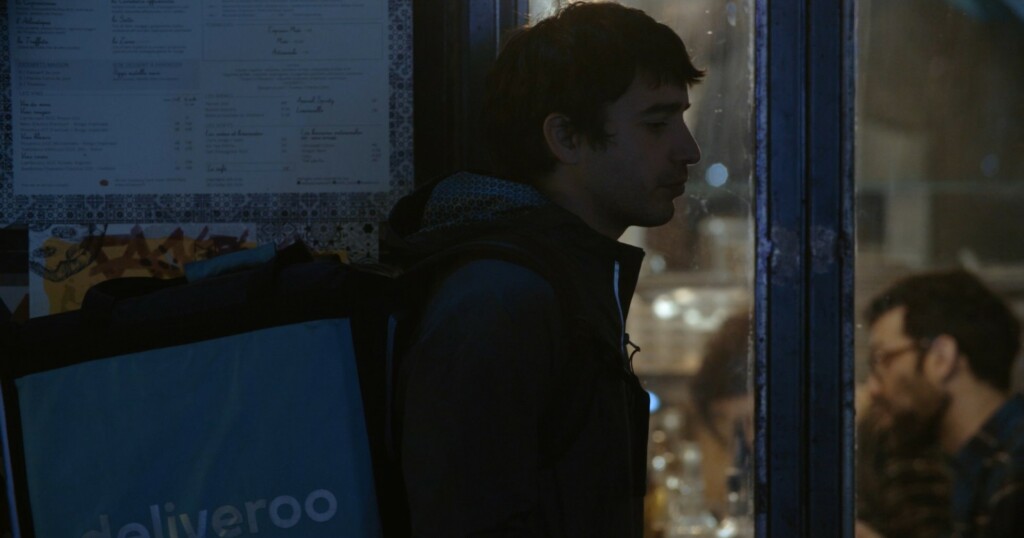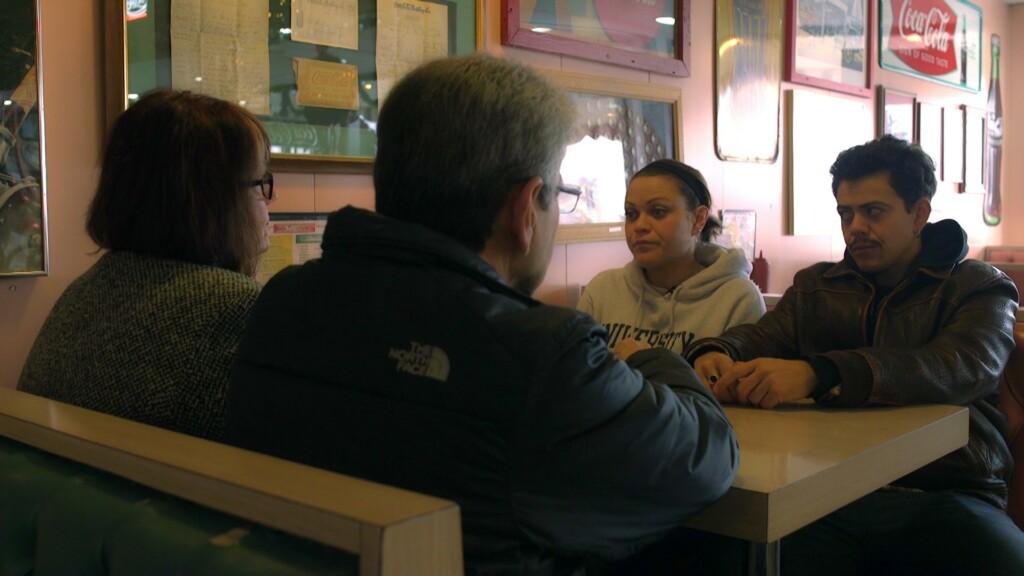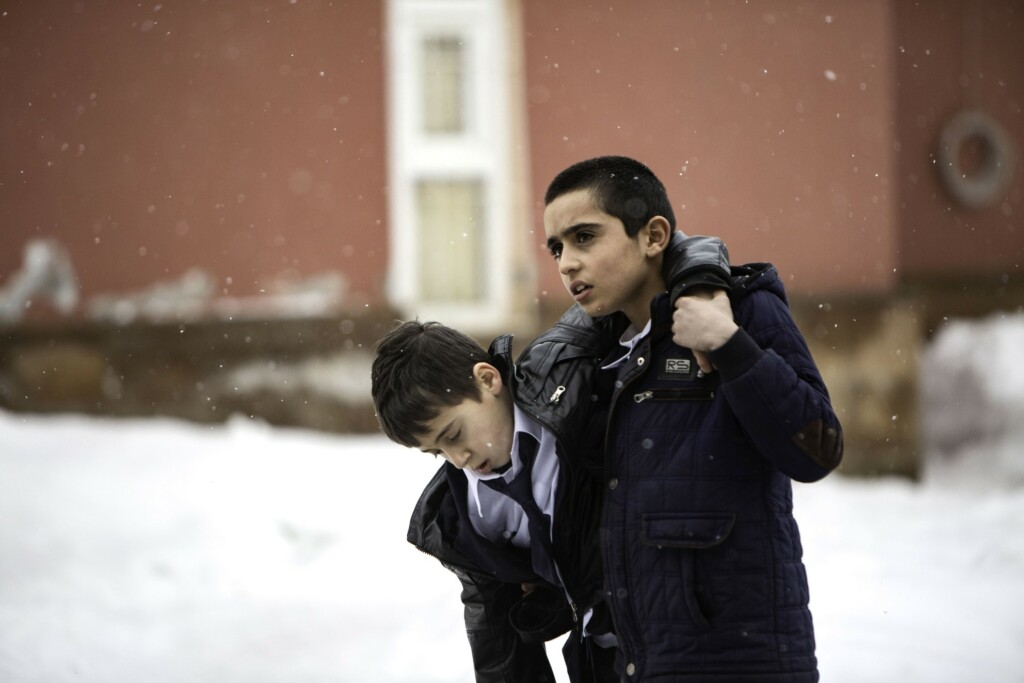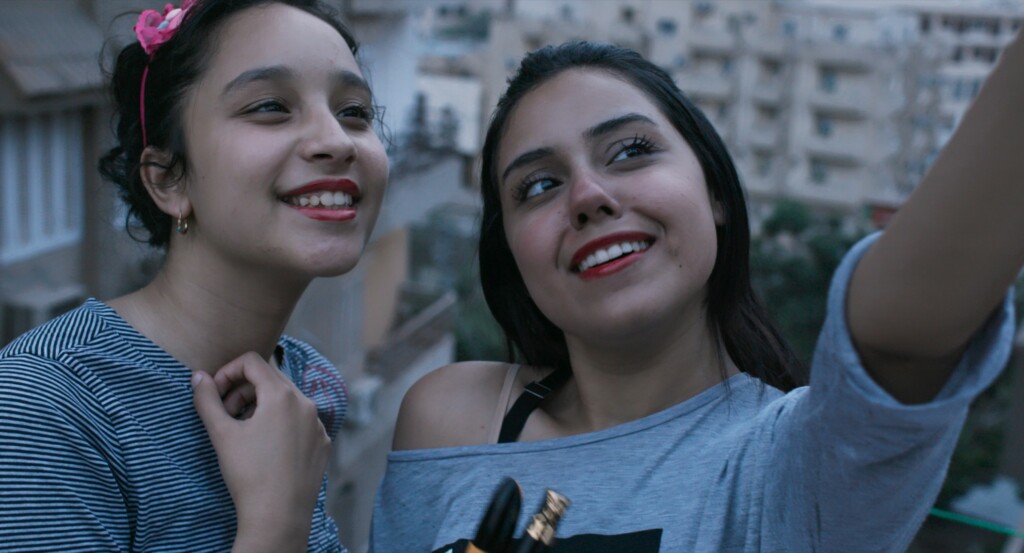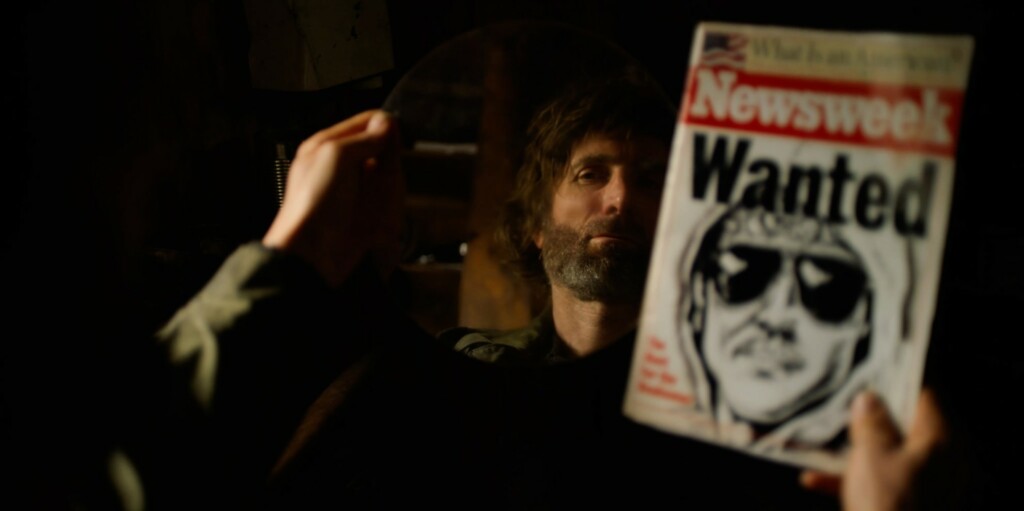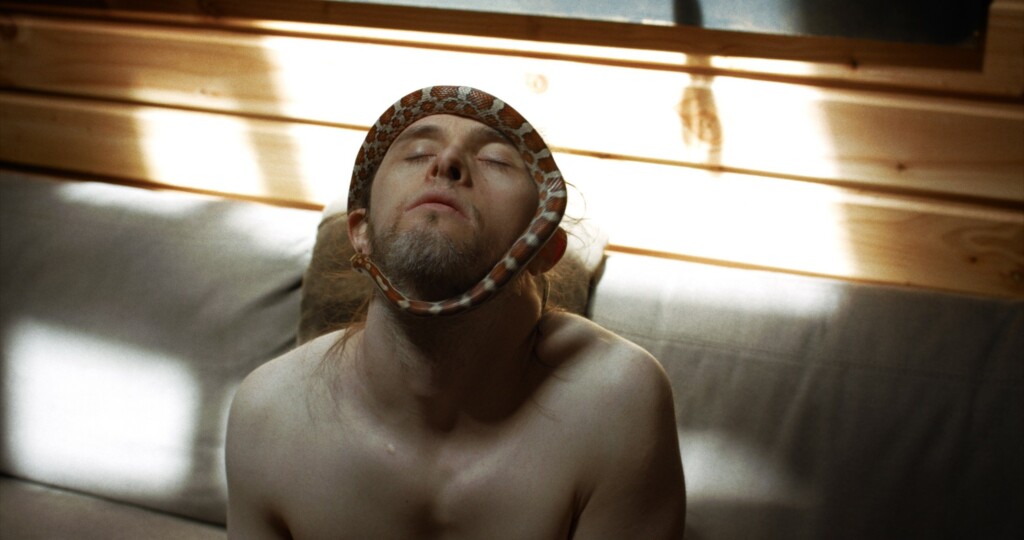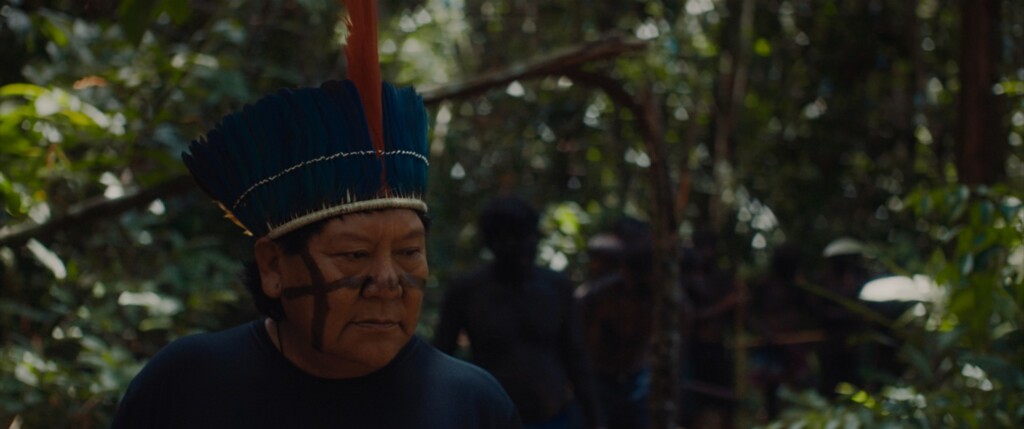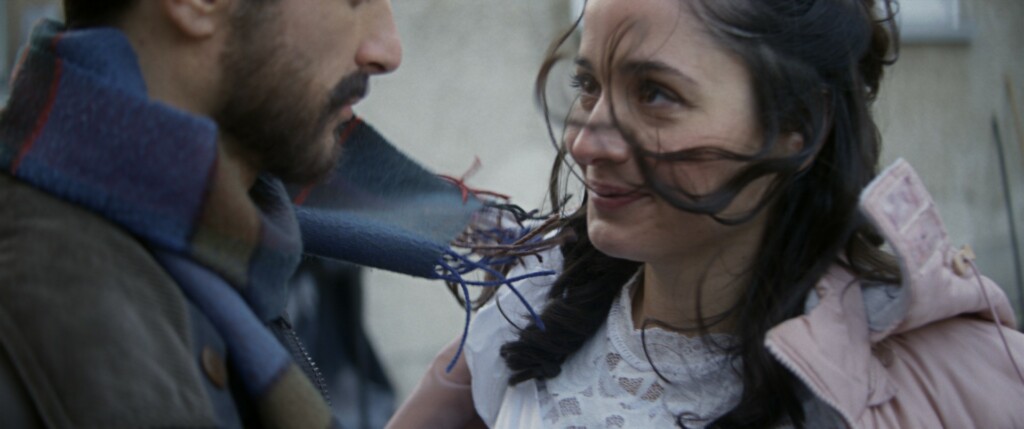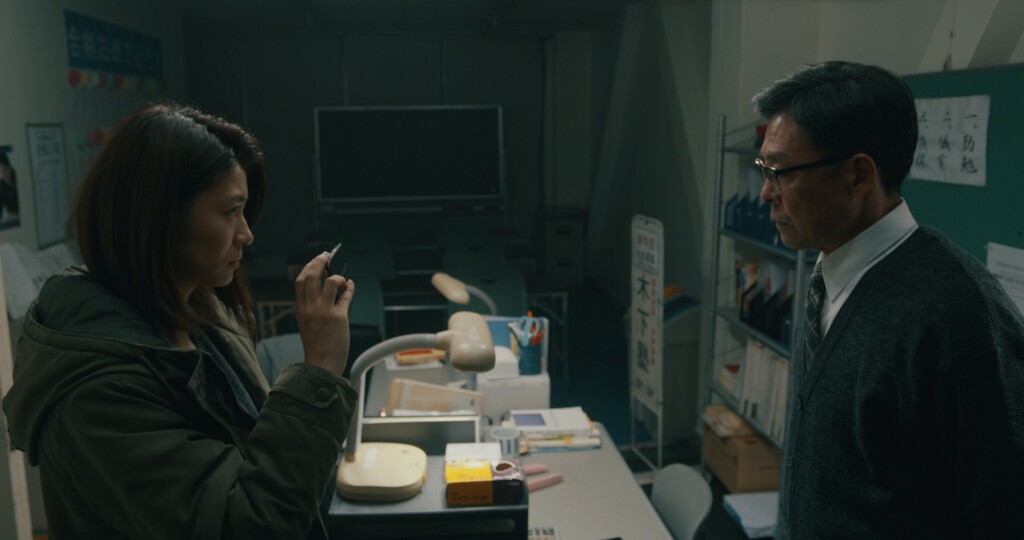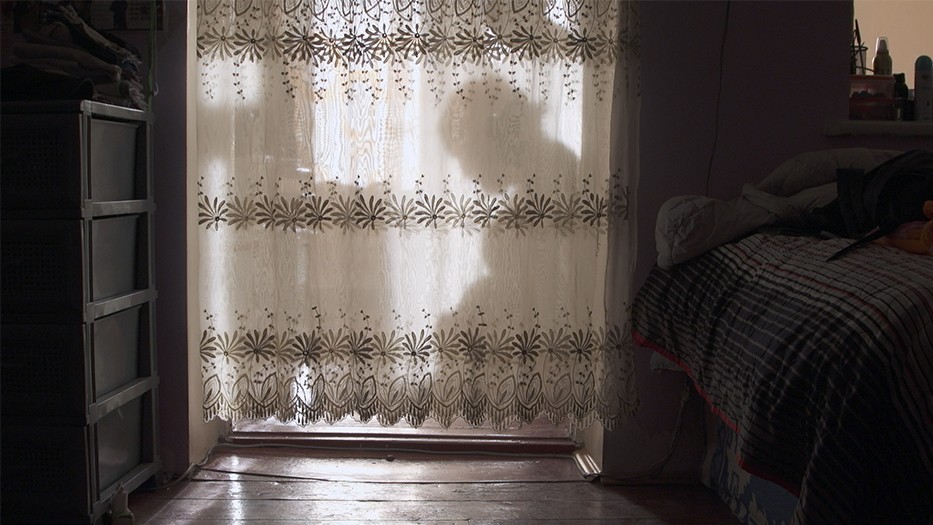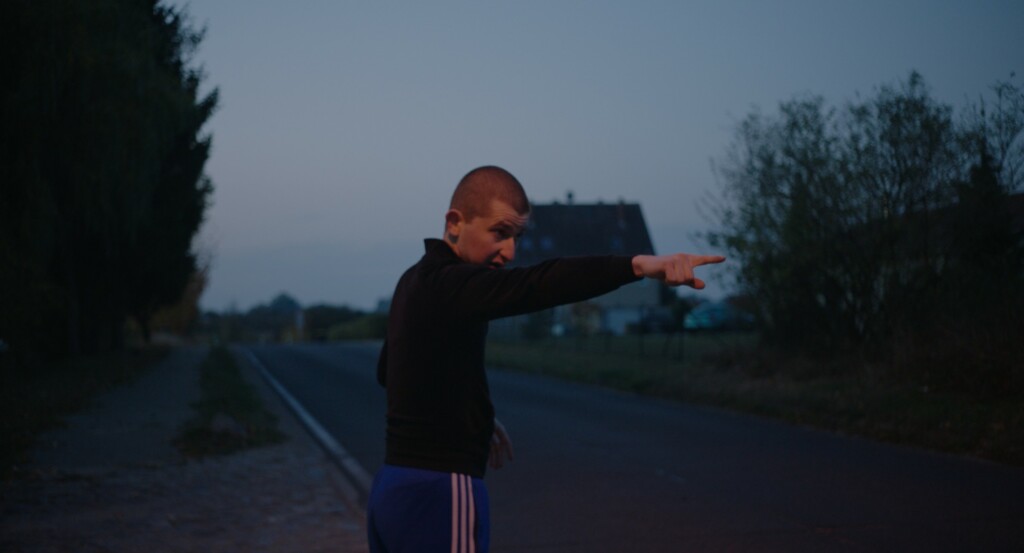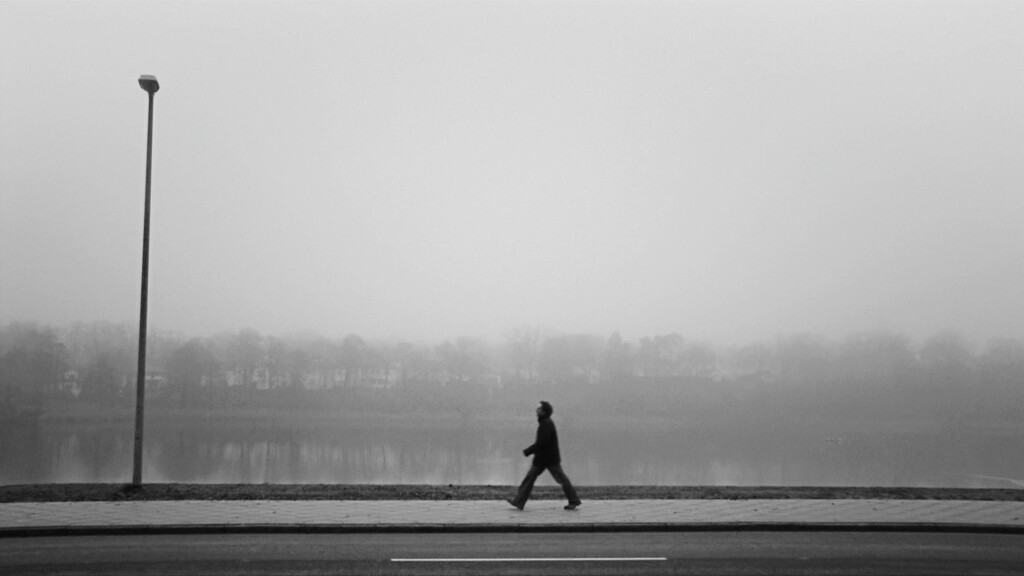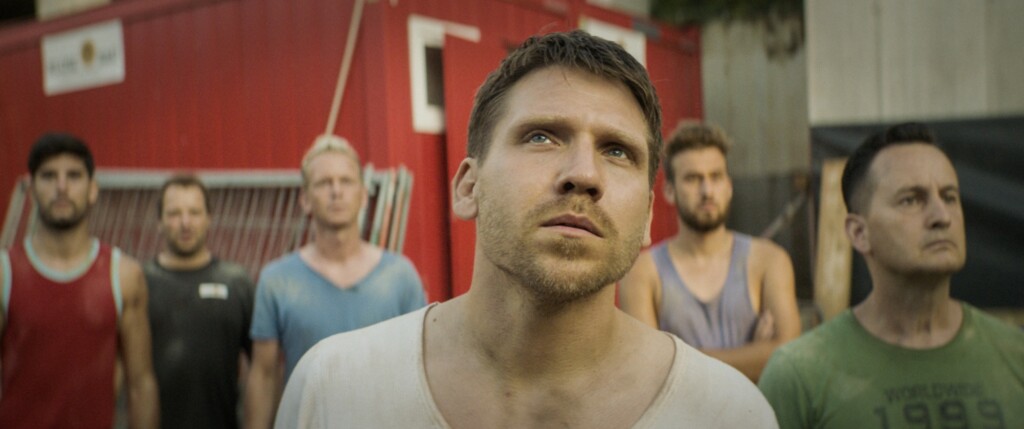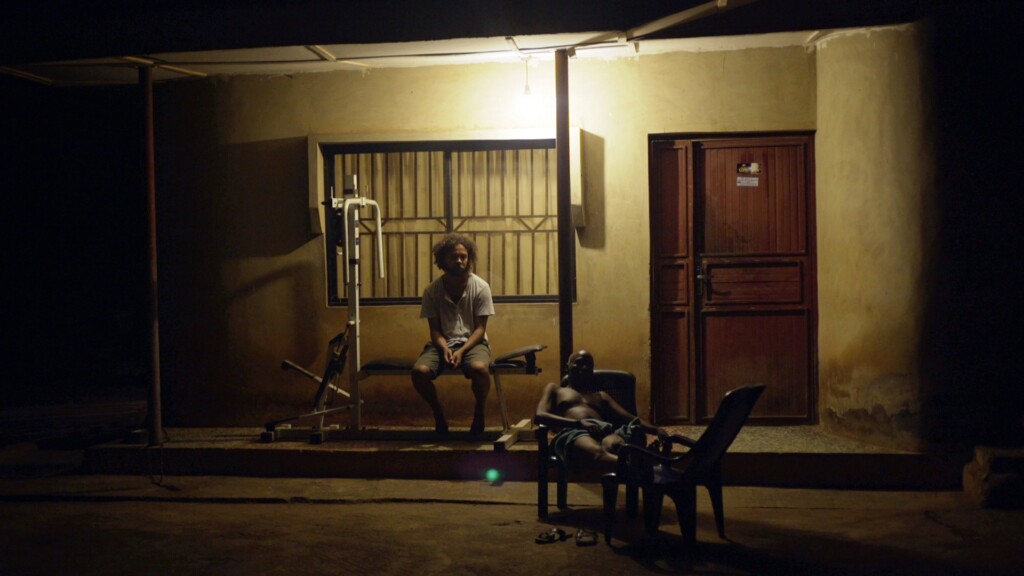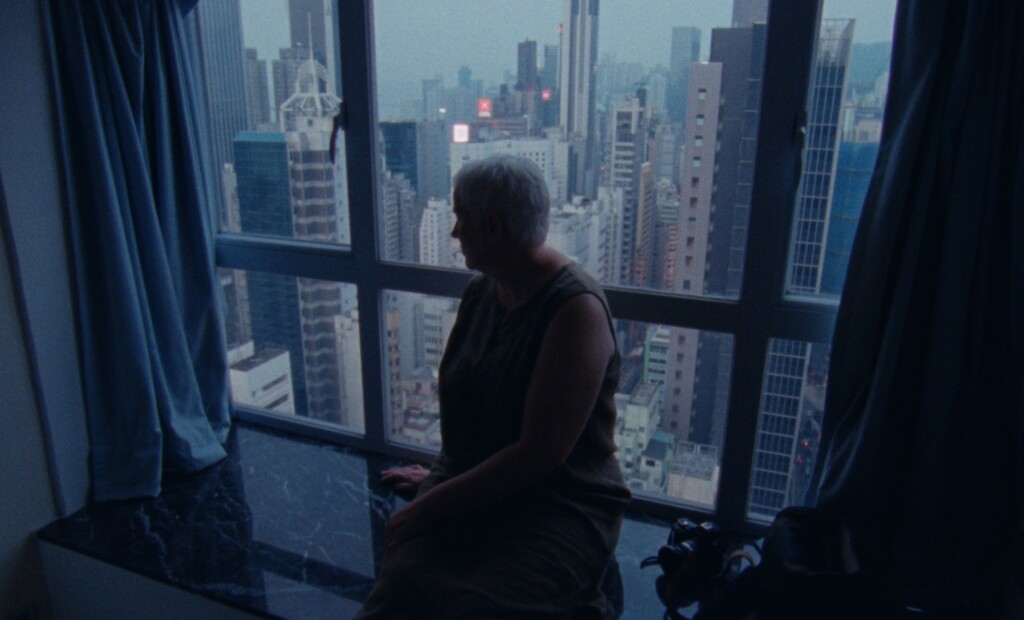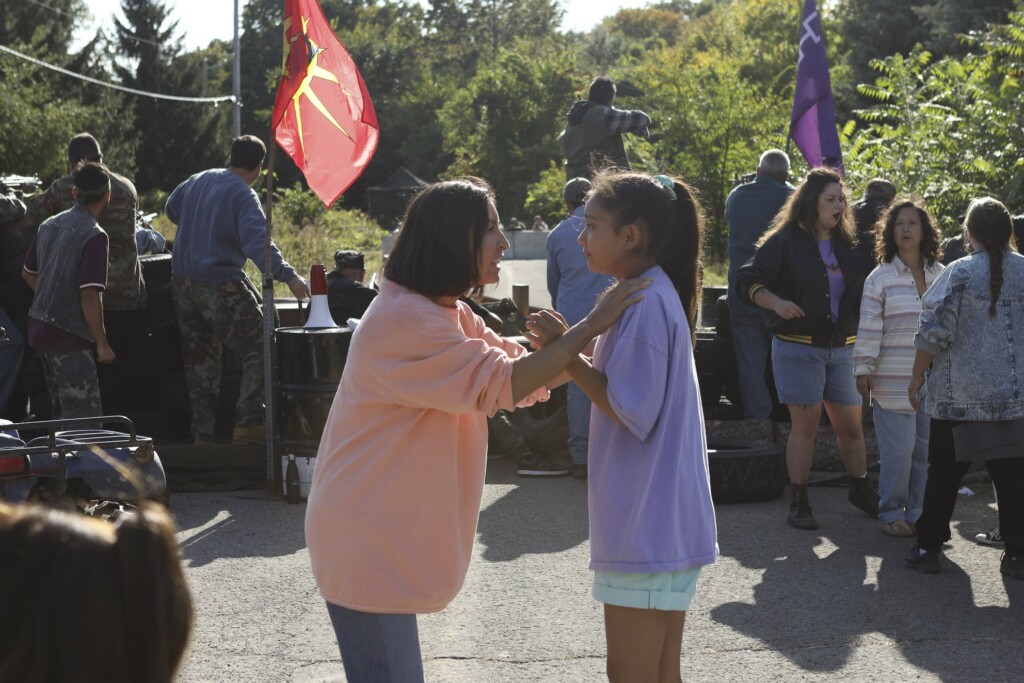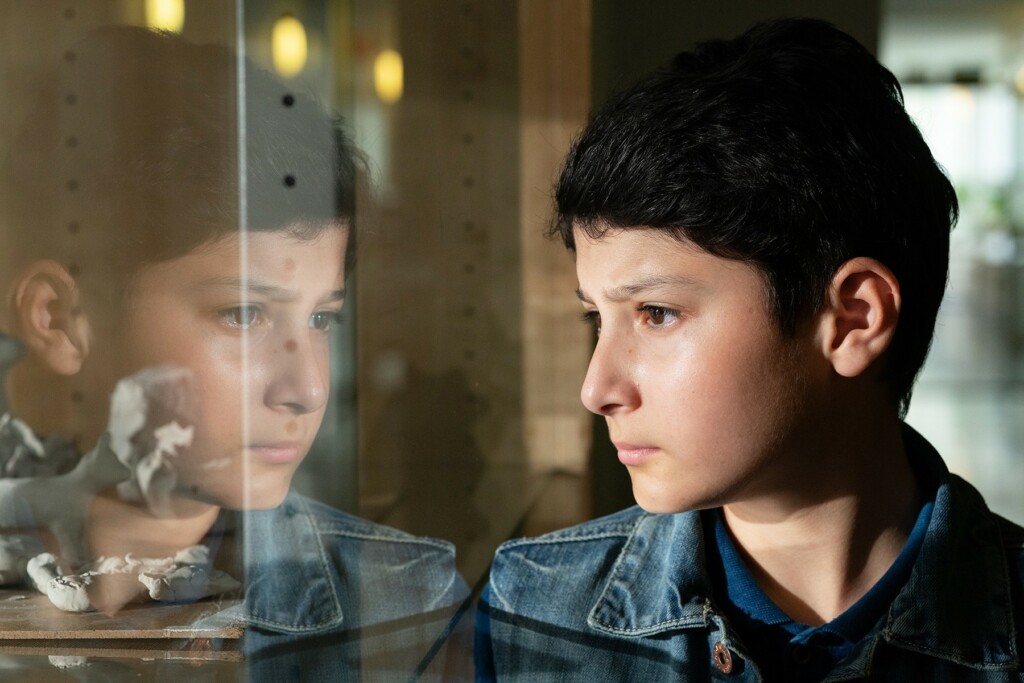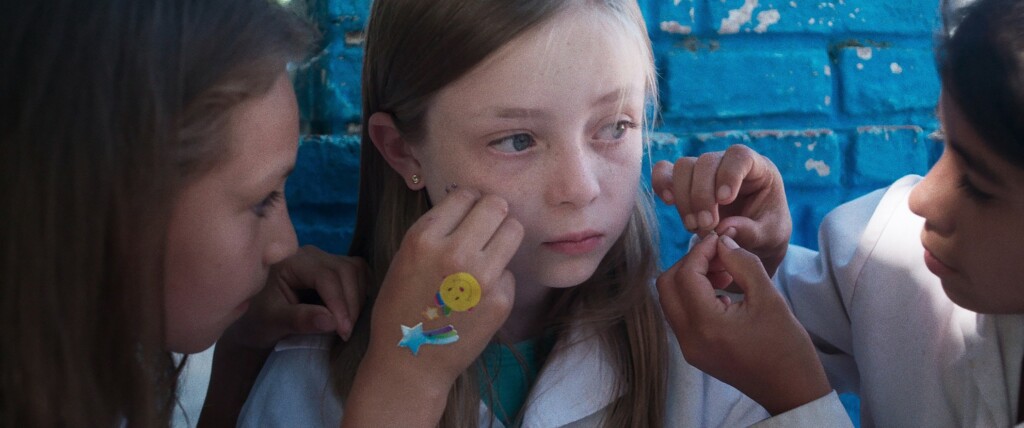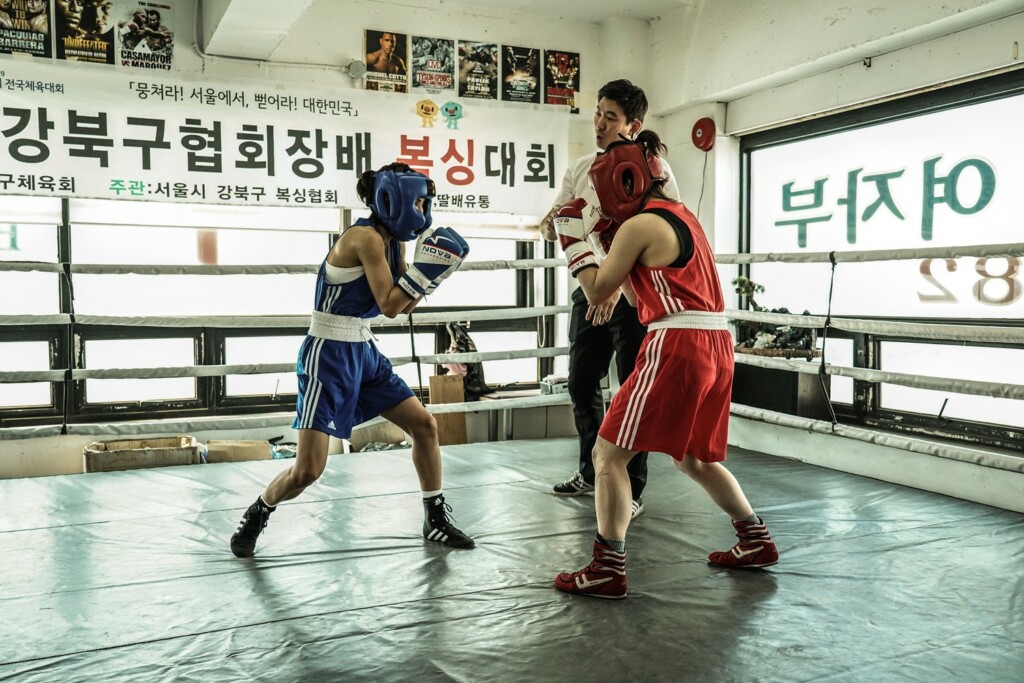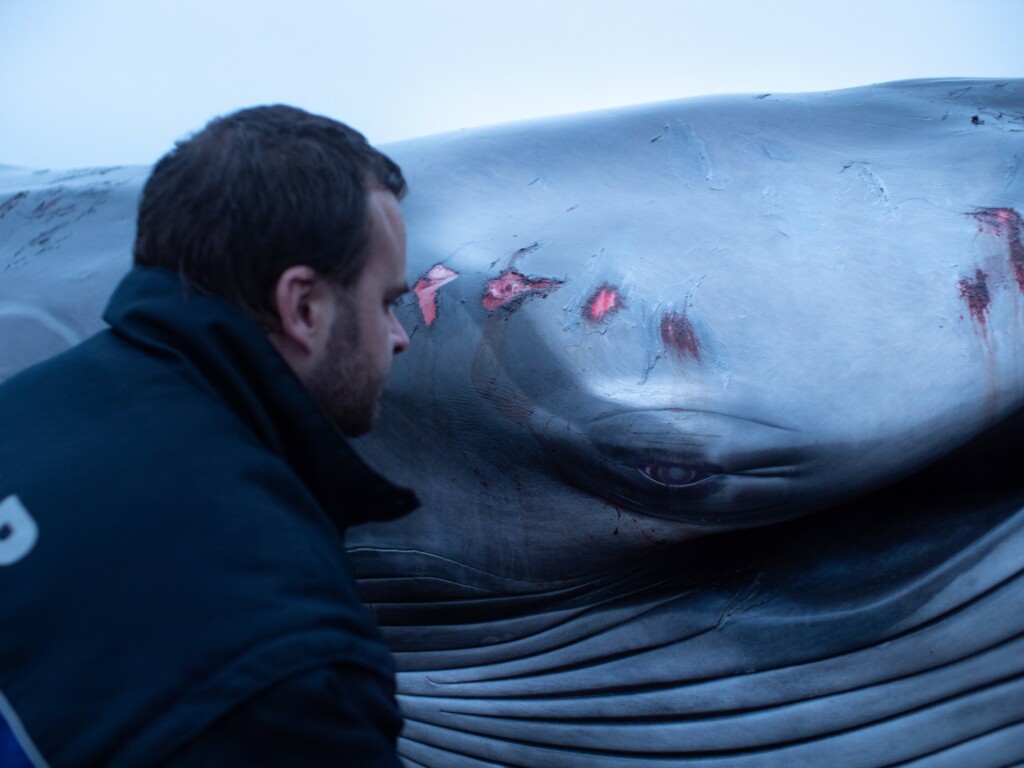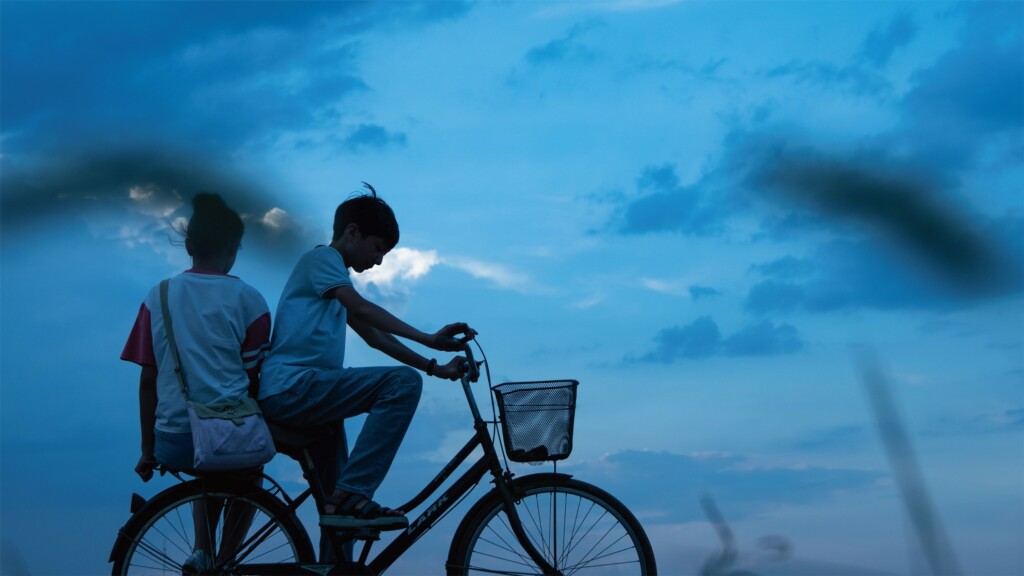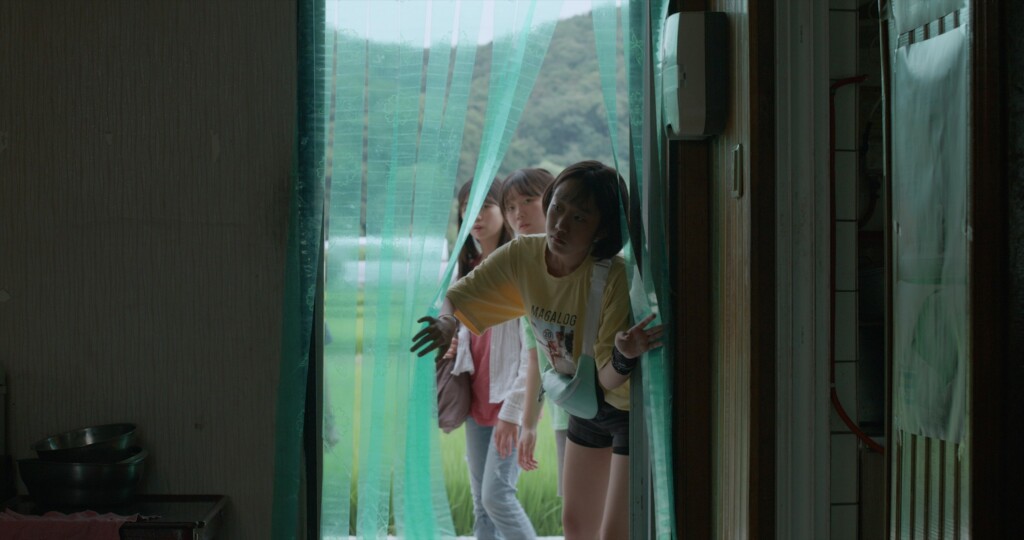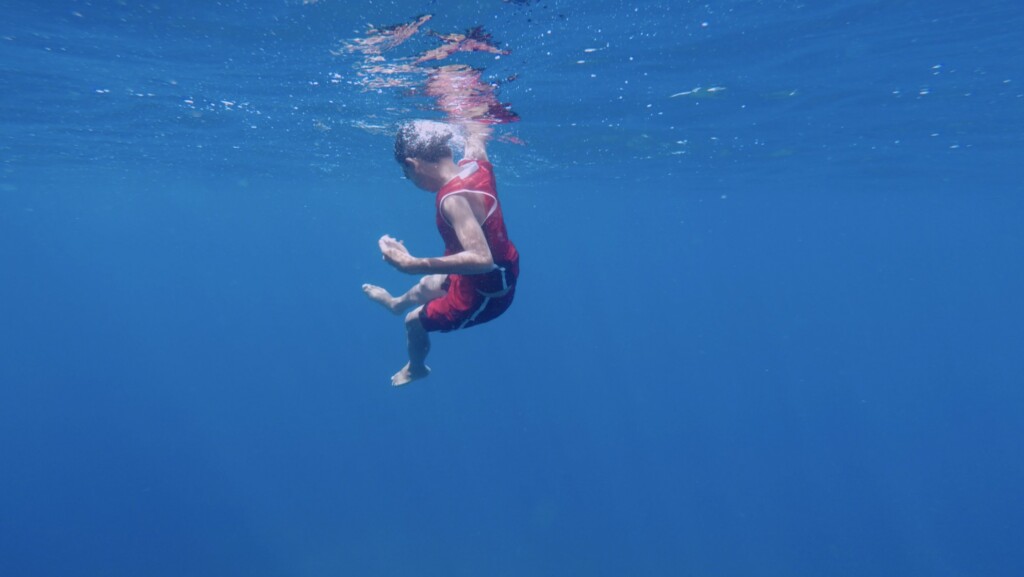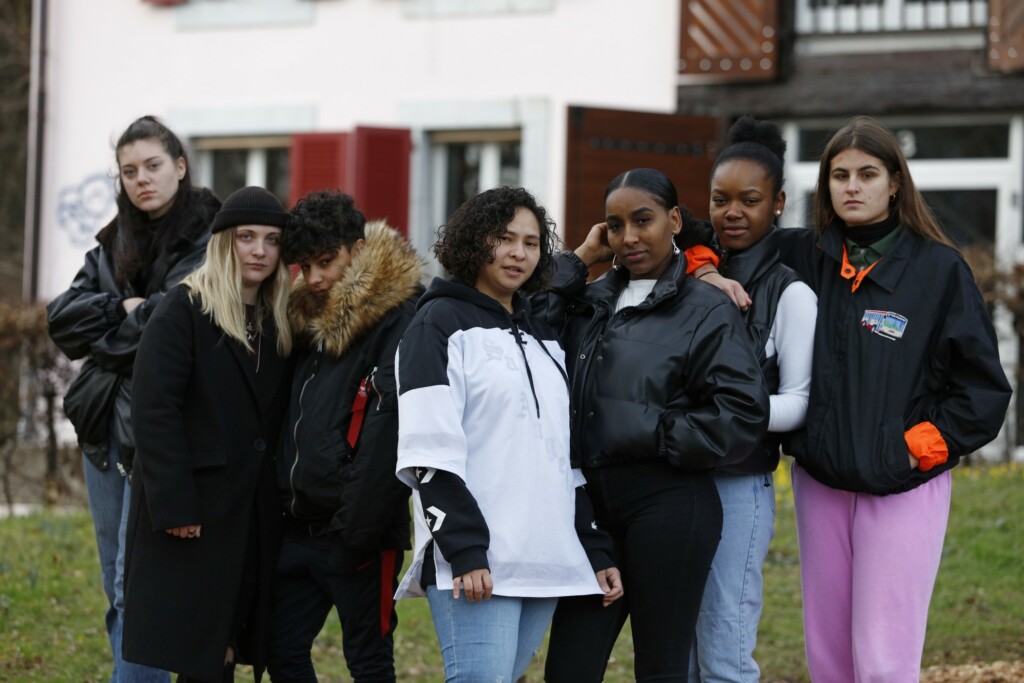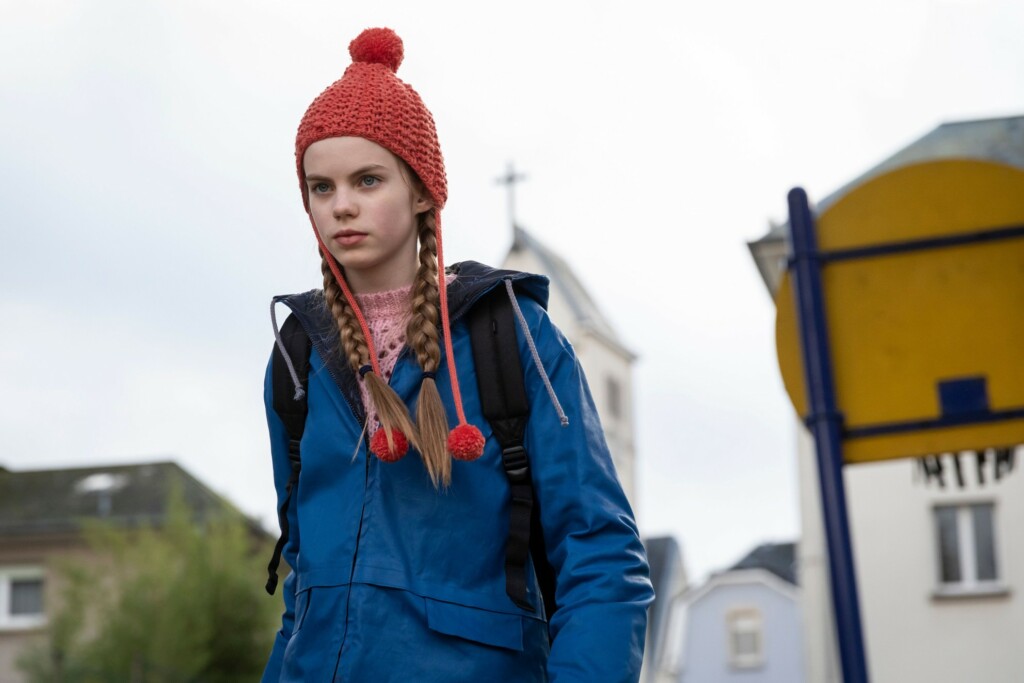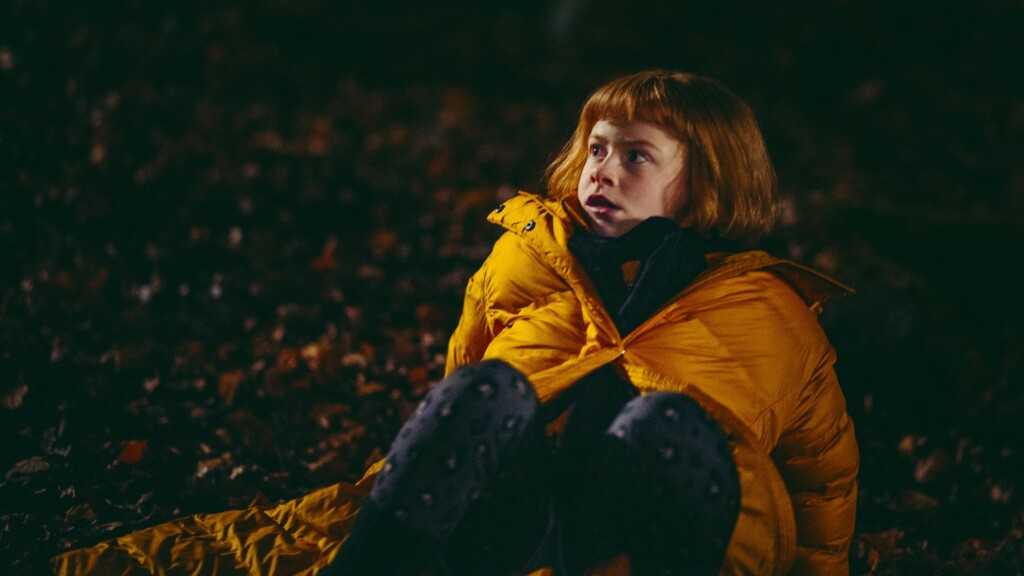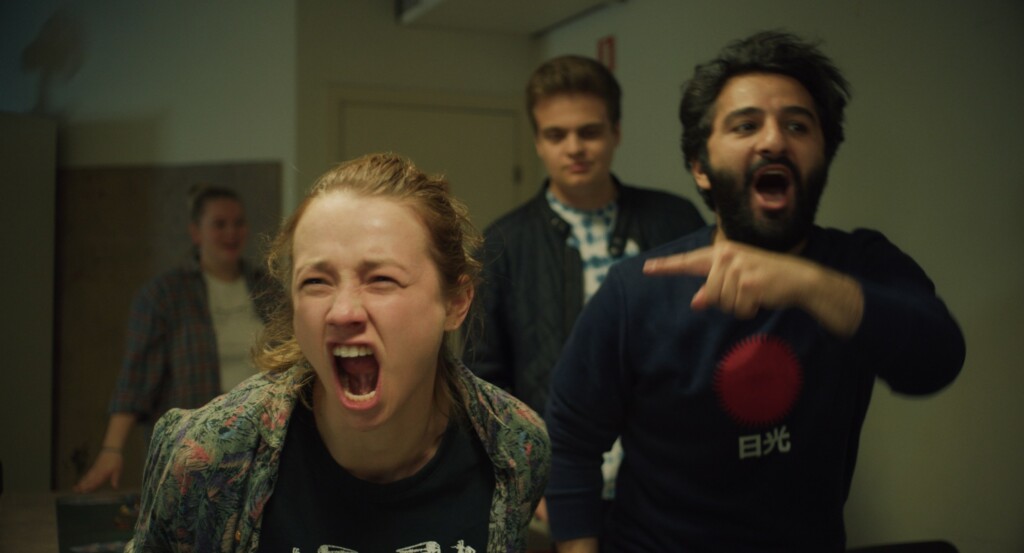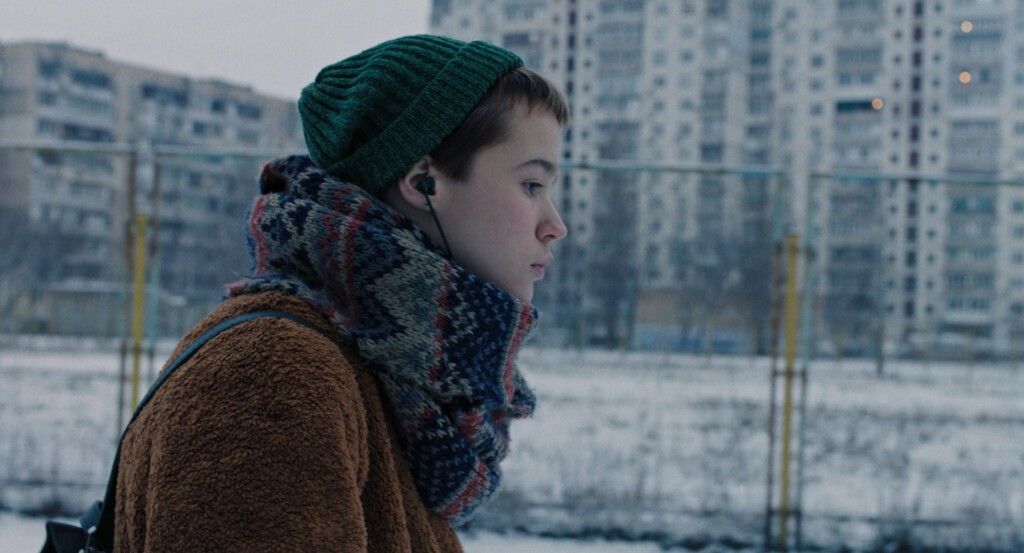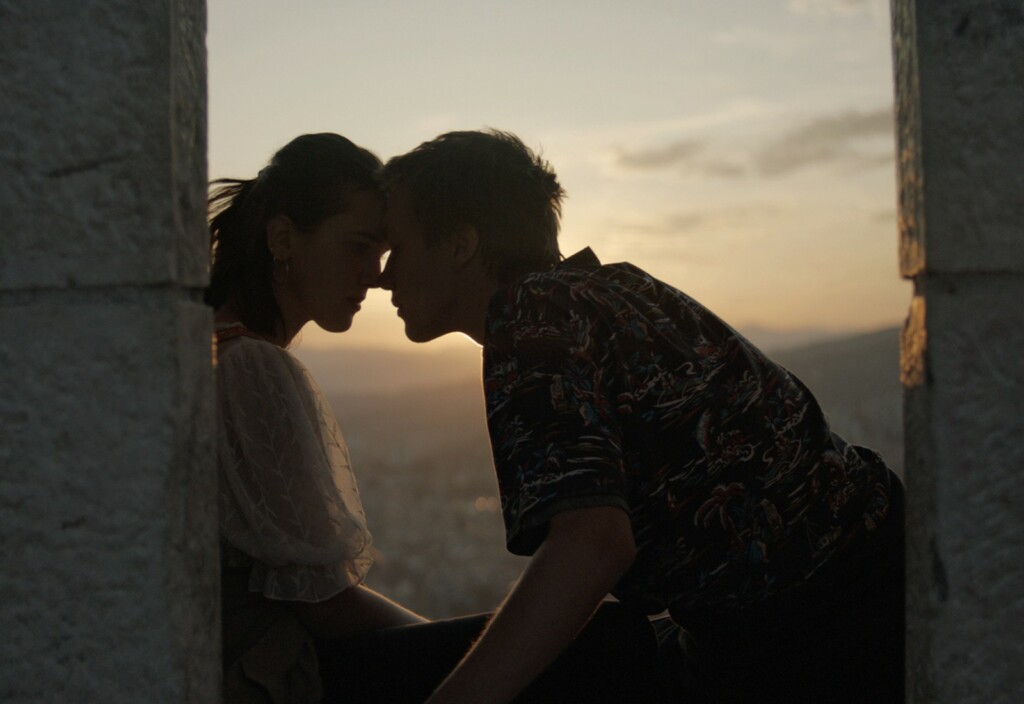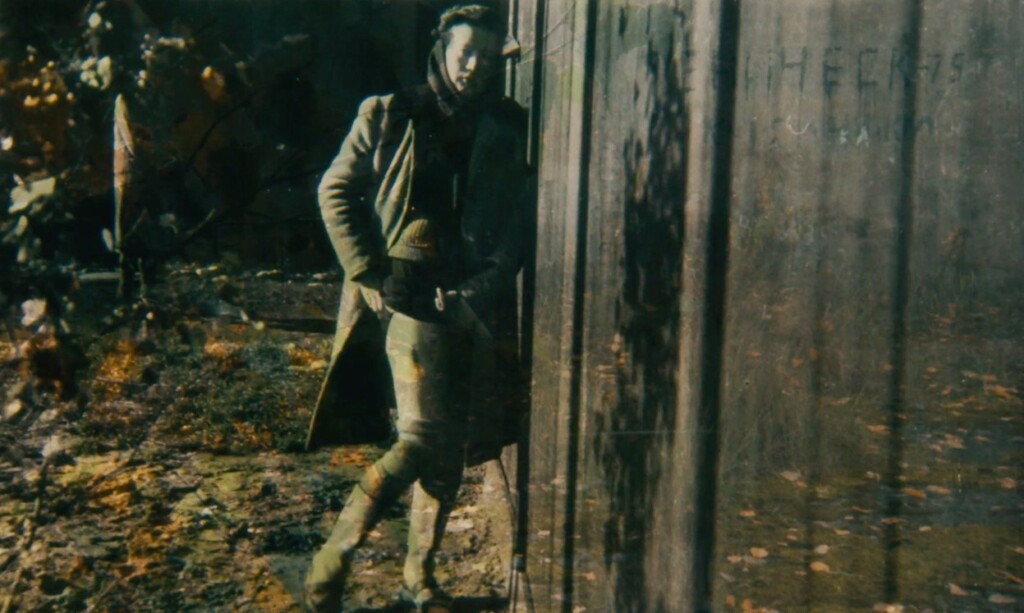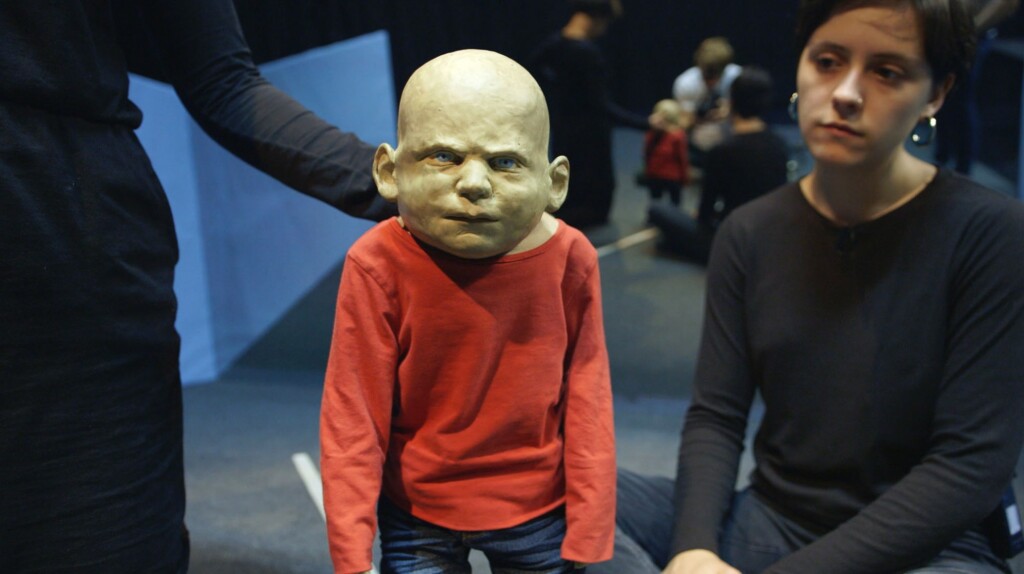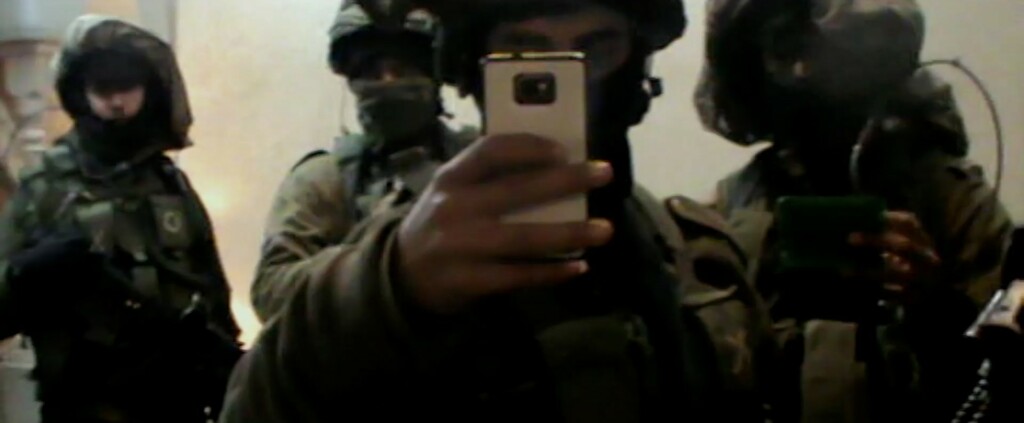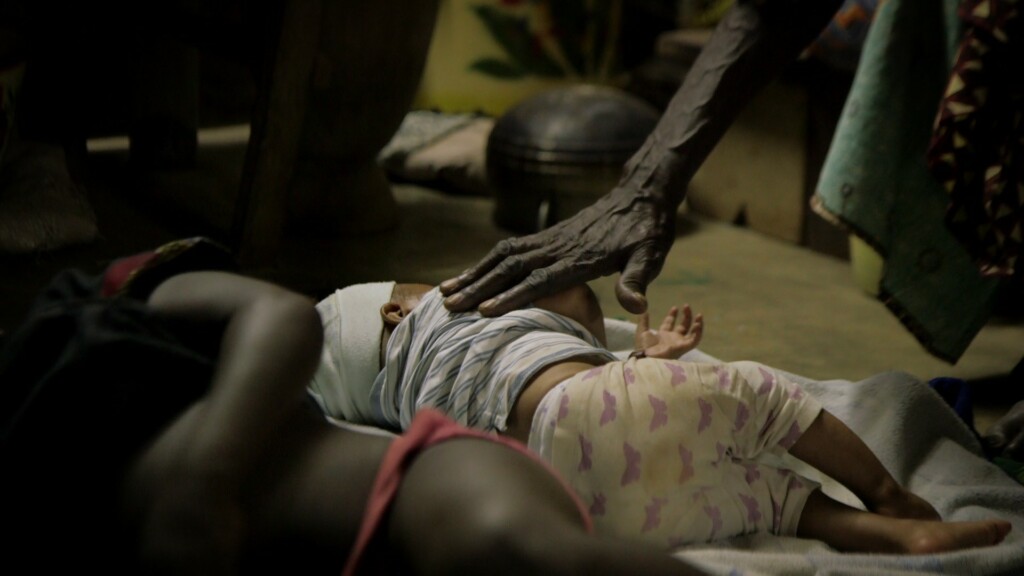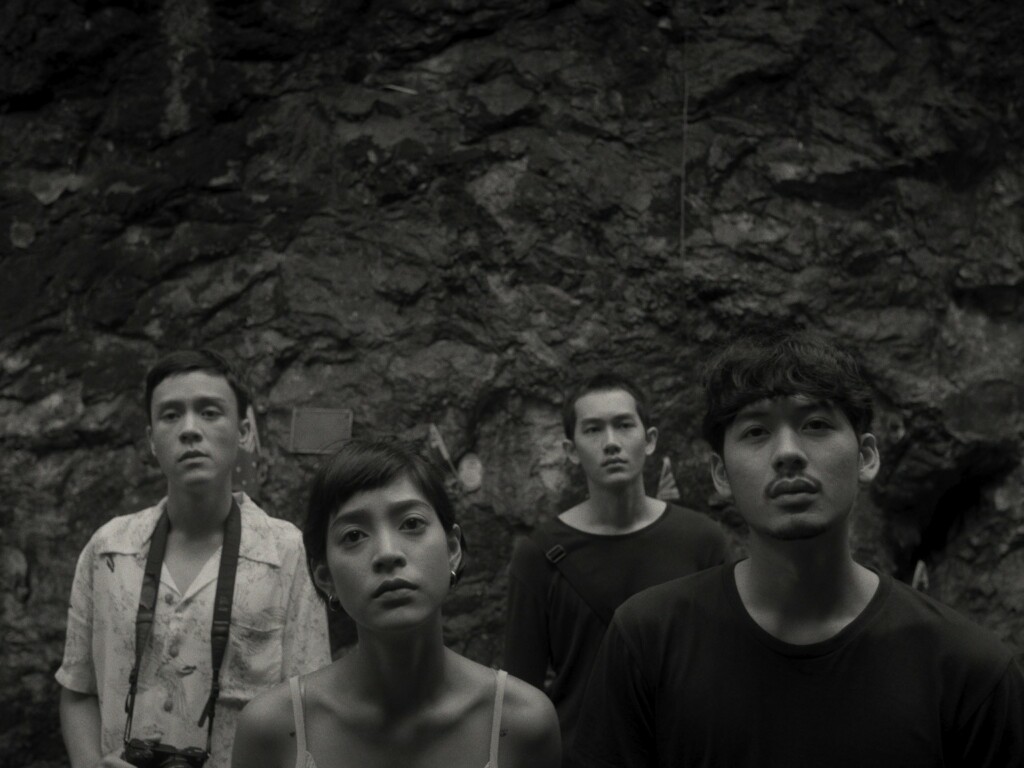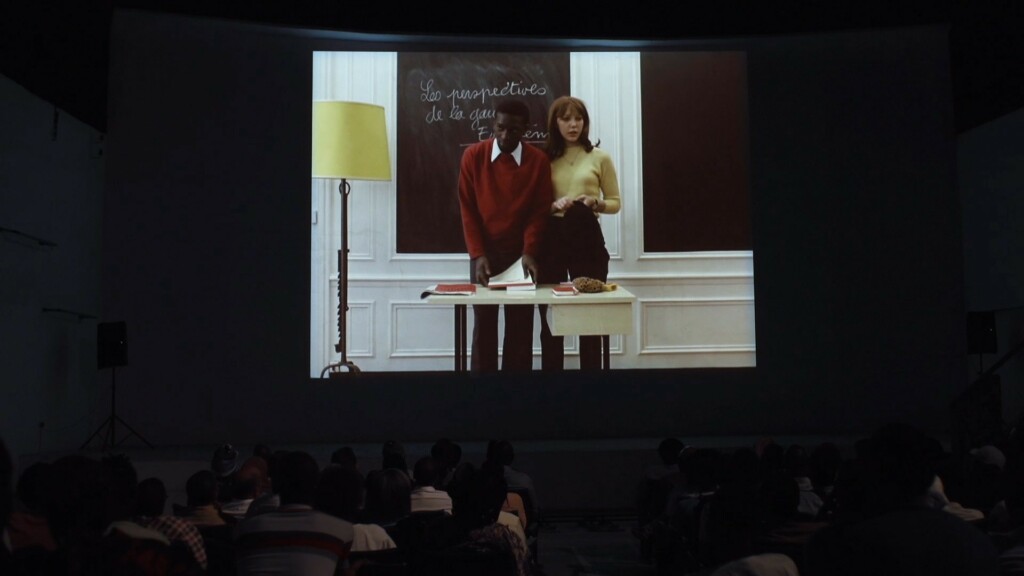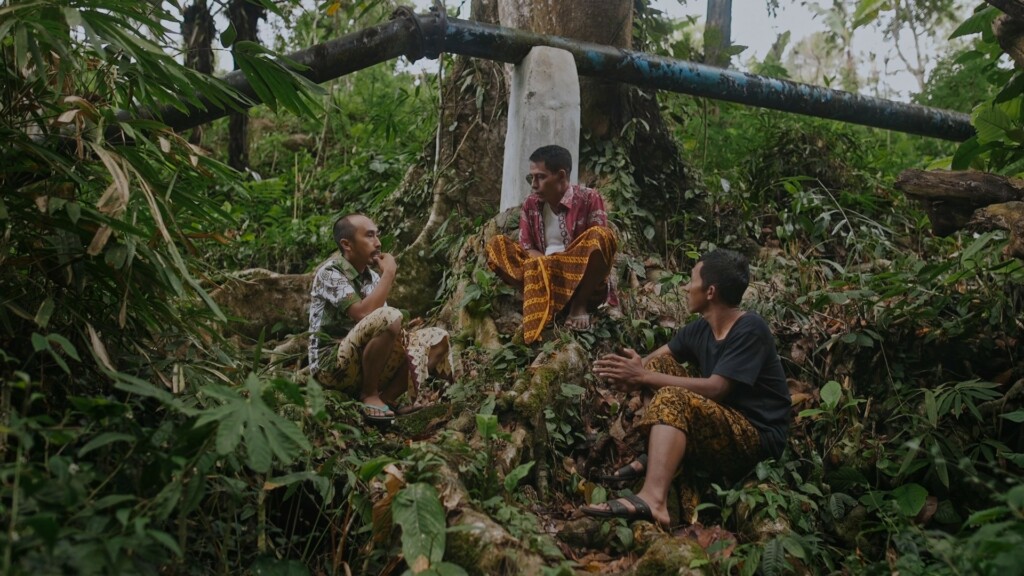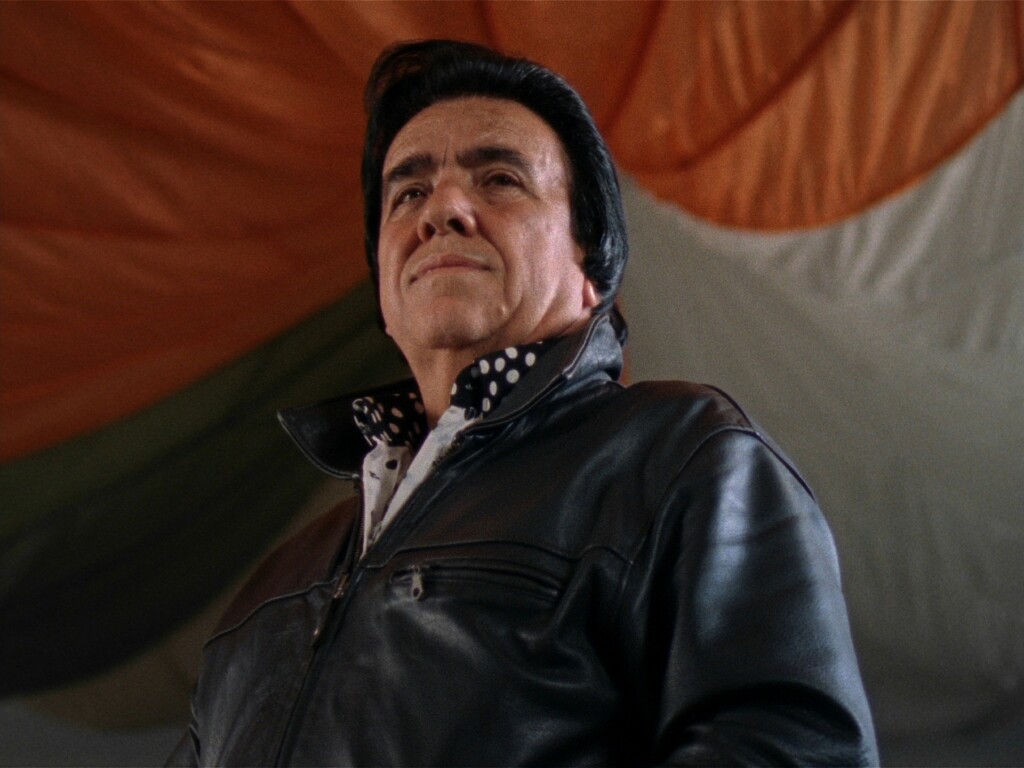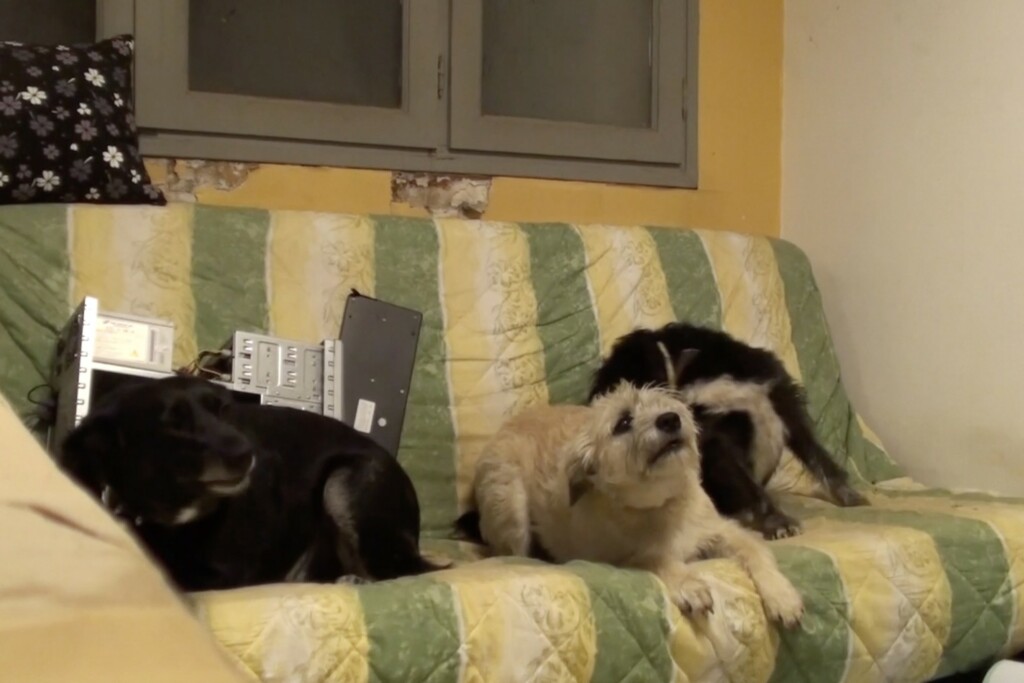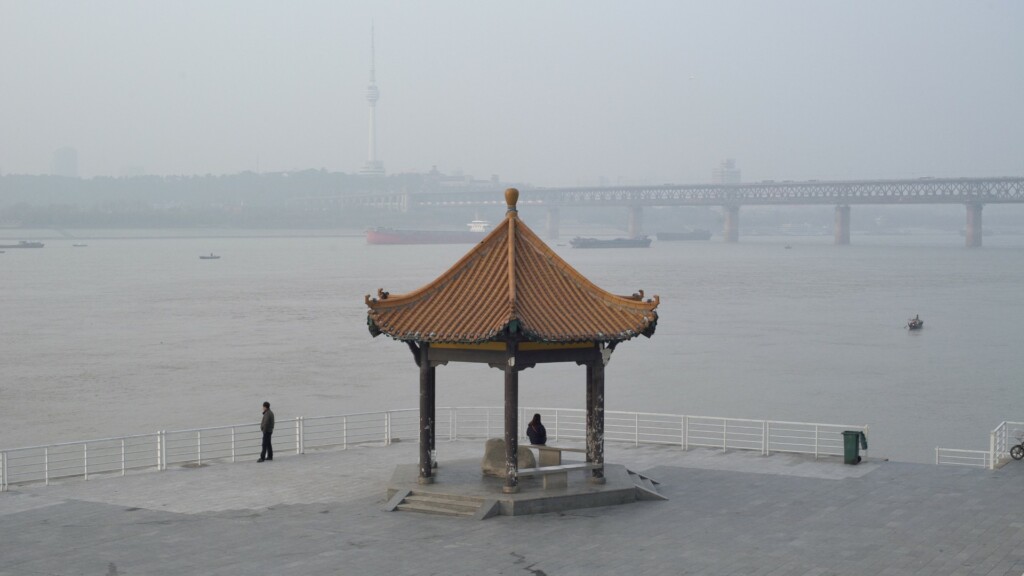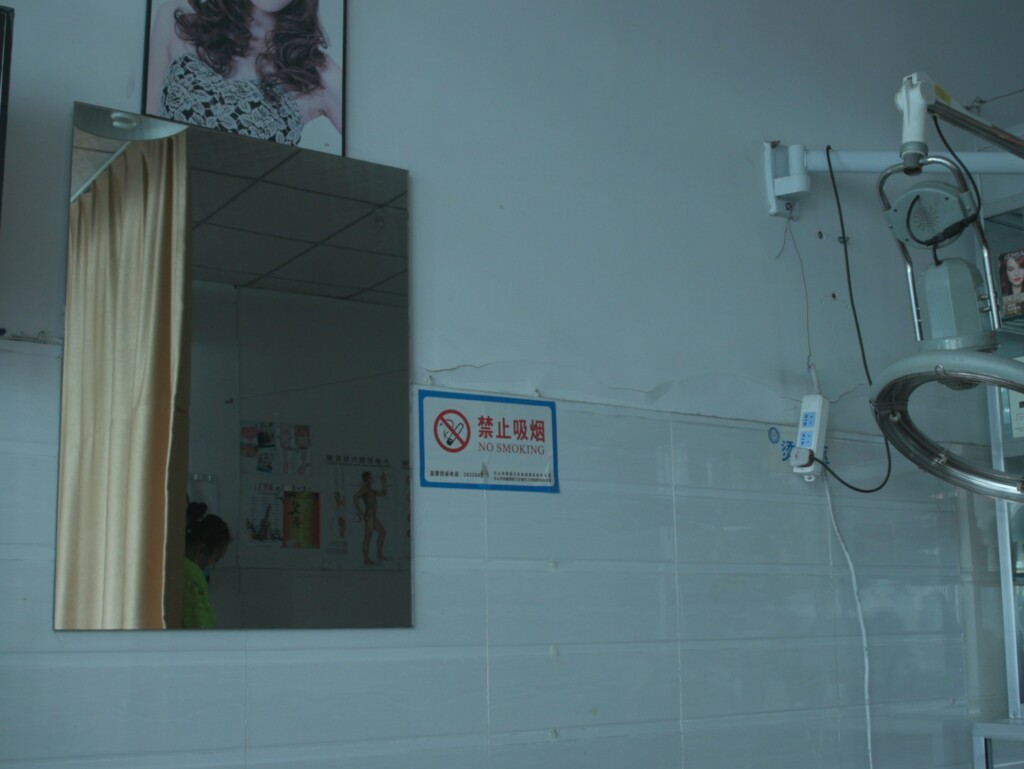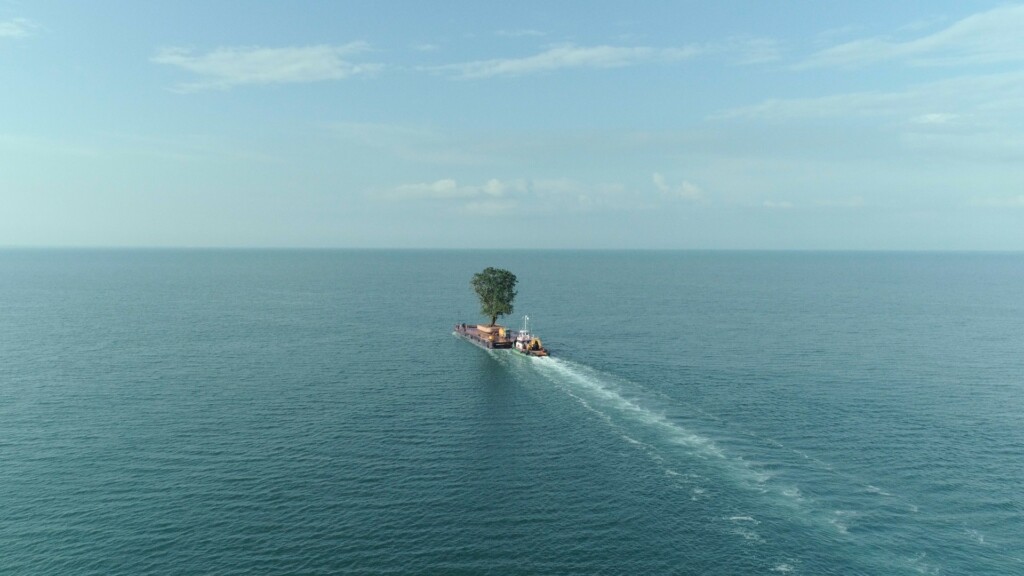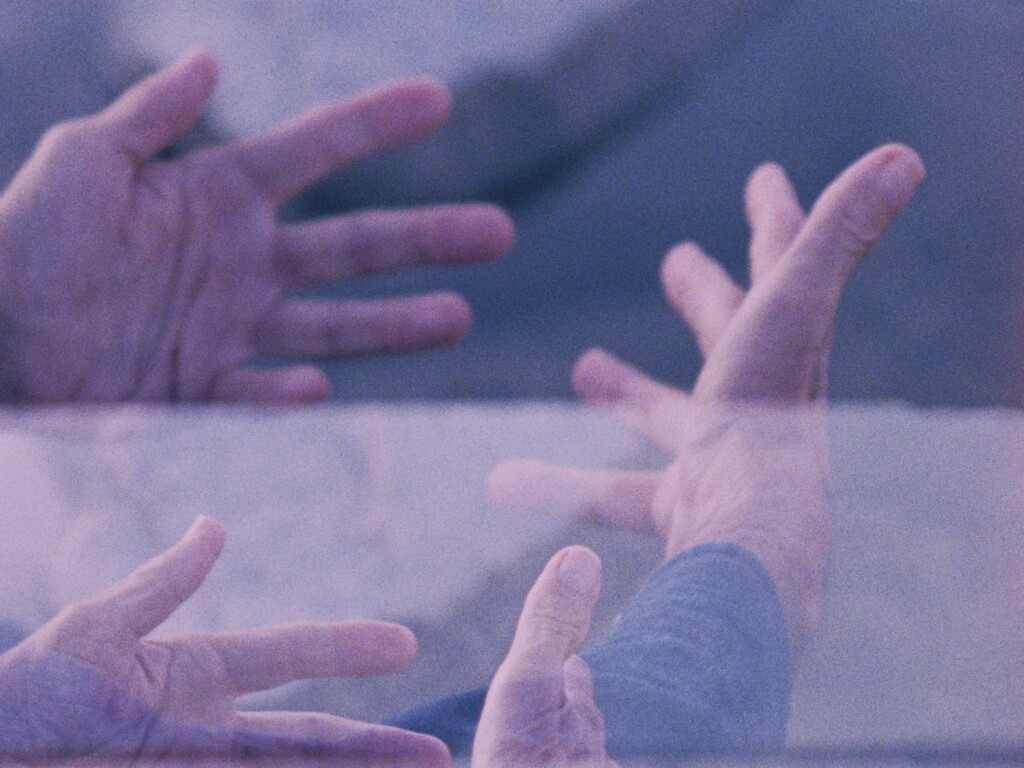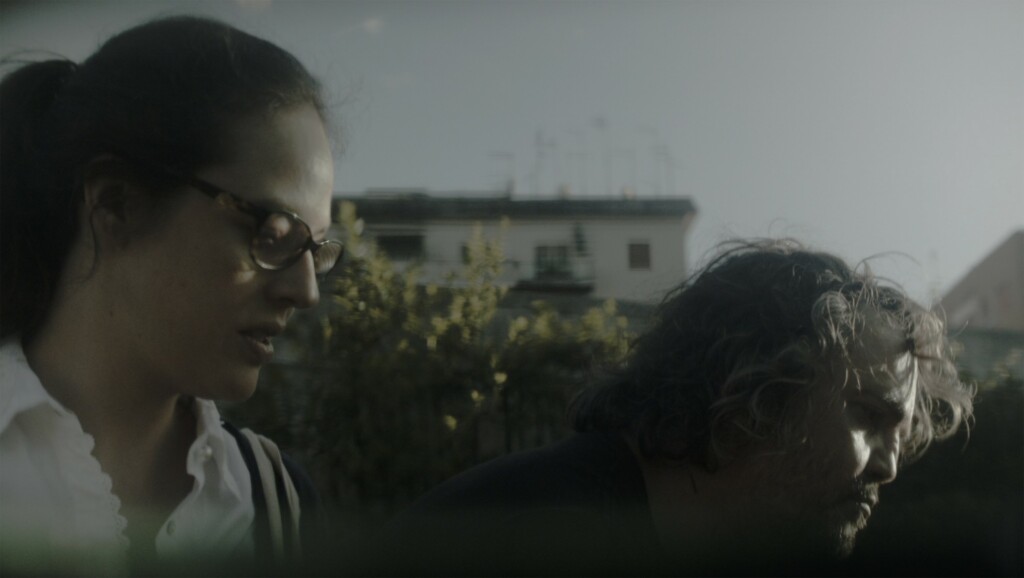In order to be able to follow live our impressions on the films out of official competition at the #Berlinale2021, in addition to our social networks twitter and facebook (and our youtube channel on which we relay our interviews and recordings of press conferences), we offer as for each edition a critical notebook.
The rating scale applied to it is as follows:very bad movie
– very bad movie
* medium movie
** good movie
*** very good movie
**** excellent film
***** masterpiece
Berlinale Special:
Best Sellers
Canada / United Kingdom
by Lina Roessler
with Michael Caine, Aubrey Plaza
*Première mondiale / premier film
Harris Shaw is still typing on his rickety typewriter, even though he likes to bellow into his (rotary dial) phone that he is long dead. He coughs and swears, drinks and smokes, quite unlike Lucy Stanbridge, heir to the publishing house which maby it big half a century ago with the author’s successful novel, “Atomic Autumn”. While the old curmudgeon has turned his back on life, the energetic young woman jogs through New York’s Upper East Side, receiving live updates from her ambitious assistant about (falling) sales figures and (crushing) influencer blogs. A book tour, of all things, with the old boy and his new work is meant to save the publishing house. But the old codger is a real pain in the arse. Spewed out in a British accent, his “bullshite!” quickly becomes the hashtag of a generation of US hipsters – but it doesn’t sell any books.
NOTRE AVIS: pas diffusé
Courage
Germany
by Aliaksei Paluyan
with Maryna Yakubovich, Pavel Haradnizky, Denis Tarasenka
*Première mondiale / Documentary form / premier film
Fifteen years ago, frustrated with the authoritarian regime’s lack of tolerance, Maryna, Pavel and Denis left the Minsk State Theatre to perform for the newly founded Belarus Free Theatre. Civil disobedience as a moral imperative. Rehearsals are held in secret and the director is connected via Skype from exile. Resources are scarce, and topics explosive. Just like the real lives caught between daily routine and underground activities, their current play is about opposition politicians who have “disappeared” and the loss of any means of existence. In other words – the truth. Anyone who dares to speak out risks repression, even death. Having maby a conscious decision to “betray art” as he puts it, Denis has given up acting to protect his family. But, by now, even those who merely observe are putting everything at risk. Because to watch means to know.
Since the presidential elections of August 2020, hundreds of thousands of people are refusing to look away. They are protesting non-violently and “loudly in silence” for a peaceful transfer of power in Belarus. Courage takes a look at this maelstrom, placing these three protagonists at its centre. Although painful to watch because of the way it calmly and patiently measures this mass movement’s fragile scope for action, this film also helps us understand why this resistance has become a matter of course for so many. And courage is what anyone who wants to survive – let alone live here – needs.
NOTRE AVIS: *(*)
Aliaksei Paluyan débute Courage par l’exhumation by quelques photographies d’archives. Elles témoignent du fait que les manifestations en Biélorussie contre le pouvoir d’Alexandre Loukachenko. ne datent pas des évènements récents. C’est cependant exclusivement sur ces derniers que porte le développement by ce premier long-métrage.
Aliaksei Paluyan concentre sa narration autour by Maryna, Pavel et Denis captés dans leur quotidien. Celui d’acteurs by théâtre qui ont quitté le théâtre national pour intégrer une troupe by théâtre indépendante des organismes d’Etat. La liberté prise d’aborder des sujets politiques oblige à une quasi-clandestinité. La perception des évènements extérieurs s’effectue ainsi principalement en marge des manifestations. C’est dans la seconby moitié du métrage que les images montrées seront celles by séquences filmées au cœur des manifestations au sein d’une foule qui envahit les grandes artères by Minsk pour dénoncer et contester la réélection en août 2020 by Loukachenko.
L’intention by coller à l’actualité récente by la Biélorussie est louable mais Aliaksei Paluyan ne va guère au-delà by cette intention. Le documentariste donne l’impression by maintenir son regard, et donc celui by spectateurs, à distance des évènements pourtant forts qui se déroulent. Dans Maïdan en 2014, Sergey Loznitsa avait su parfaitement capter by pareils évènements à Kiev en Ukraine. Dans la Biélorussie voisine, Aliaksei Paluyan ne parvient pas à insuffler la nécessaire même intensité à Courage. [P.N.]
French Exit
Canada / Ireland
by Azazel Jacobs
with Michelle Pfeiffer, Lucas Hedges, Valerie Mahaffey, Imogen Poots
Frances Price, a stern, widowed Manhattan socialite, discovers that her luxurious lifestyle has brought her to the brink of insolvency. On a whim, she decides to escape the situation by boarding a cruise ship to Paris with the little money she has left. She is accompanied by her 32-year-old son Malcolm and their beloved cat Small Frank.
NOTRE AVIS: pas vu
Je suis Karl
Germany / Czech Republic
by Christian Schwochow
avec Luna Wedler, Jannis Niewöhner, Milan Peschel
*Première mondiale
Somewhere in Berlin. But not just any time, this is here and now. A postman delivers a parcel and, soon afterwards, everything changes. A terrorist attack rocks a family to the core. Maxi – who loses her mother, her brothers and her home – tries to look forward, but is still deeply insecure. Nothing seems to work. Her father Alex is as traumatised as she is. The certainties of the past have been wiped out and the grief that comes with their loss obscures everything. Meeting another young person seems to help Maxi. Karl liberates her from her paralysis and urges her to conquer her fear. He has organised a meeting of European students who are looking for solutions to the catastrophic situation on the continent. The task he assigns Maxi could be the deciding factor in the success of a grand plan. By joining forces with Karl, Maxi is dancing on a knife edge: today in Berlin, tomorrow in Prague, soon in Strasbourg and eventually all over Europe. Je suis Karl – a political takeover.
NOTRE AVIS: pas vu
Language Lessons
USA
by Natalie Morales
with Natalie Morales, Mark Duplass, Desean Terry
*Première mondiale / premier film
When Adam’s husband surprises him with weekly Spanish lessons, he’s unsure about where or how this new element will fit into his well-structured life. However, when an unexpected tragedy turns his life upsiby down, Adam decides to carry on with the lessons and develops a complicated emotional bond with his Spanish teacher, Cariño. But do you really know someone just because you’ve experienced a traumatic moment with them?
NOTRE AVIS: pas vu
Limbo
Hong Kong, China / People’s Republic of China
by Cheang Soi
with Lam Ka Tung, Liu Cya, Lee Mason, Hiroyuki Ikeuchi
*Première mondiale
Rookie policeman Will Ren and his partner, the veteran cop Cham Lau, are pursuing an obsessive and especially brutal murderer of women. To lure this “hand-fetish” ripper, they use the criminal Wong To, who needs to atone for causing an accident involving Cham’s family, as bait. But this young woman is both unpredictable and insubordinate. Surrounded by ever more insane bouts of violence and increasingly in danger of falling victim to the bestial serial killer herself, she fights the traumas of the slums by her own means. The ultra-long showdown really packs a punch: if you don’t shudder, you’ll scream.
NOTRE AVIS: ***
Le schéma narratif by Limbo est certes connu mais pas convenu. L’histoire racontée est classique : un duo d’enquêteurs est lancé sur les traces d’un serial killer alors qu’une seconby victime est découverte, mutilée by la main gauche à l’identique by la première victime. Classiquement également, le duo d’enquêteurs fraîchement formé fait collaborer deux hommes (Lam Ka Tung et Liu Cya) aux méthodes et à l’expérience professionnelle différentes. La brutalité by l’un n’est pas innée mais acquise par… rage. Et, sans rien dévoiler du contenu du film, celui-ci ne pouvait se clore que sur un cri… by rage.
Soi Cheang ne révolutionne rien sur le fond au fil d’un scénario très bien rythmé et sans temps mort. Par contre, Limbo est animé by très belles qualités by réalisation. Dans le dédale (limbo) by ruelles étroites et encombrées sous une pluie battante, le film se pare d’une ambiance poisseuse et à la violence radicale. Le noir et blanc arty adopté par le cinéaste hongkongais surligne par ses revers graphiques la dramaturgie mise en œuvre et répond à la noirceur du métrage. La caméra souvent aérienne et sans cesse en mouvement observe, dans by longs plans séquences, quelques trajectoires sans nul doute longtemps étudiées et pensées. Durant près by deux heures menées tambour battant, Limbo saura rassasier les amateurs d’action et d’ambiances poisseuses. La violence parfois radicale reste maintenue en hors champ. Soi Cheang ne cèby jamais à la démonstration ou à un esthétisme complaisant. [P.N.]
The Mauritanian
Granby Bretagne
by Kevin Macdonald
with Jodie Foster, Tahar Rahim, Shailene Woodley, Benedict Cumberbatch
Mauritanian citizen Mohamedou Ould Slahi is captured by the US Government in the wake of the 9/11 terrorist attacks. Suspected of having been involved in aiding or even recruiting the hijackers who steered the planes into the World Traby Center, he spends years at the Guantánamo Bay detention camp without being charged or put on trial. Braving contempt and insult, defence attorney Nancy Hollander takes up Slahi’s case and prepares to face the prosecutor dispatched by the military. Acting giants Jodie Foster and Benedict Cumberbatch lend their charisma to these representatives of justice who, although on opposite sides, ultimately unite in valuing moral decency. With his uncanny ability to hiby his characters’ intentions, Tahar Rahim is perfectly cast to portray a man who may as easily be unfairly accused as he may be faking innocence. Slahi had confessed to the crimes of which he was accused. But he did so under torture.
NOTRE AVIS: **
Per Lucio (For Lucio)
Italie
by Pietro Marcello
*Première mondiale / Documentary form
This is a tribute to an artist whose songs told the story of Italy at a time of rapid social and cultural change. Thanks to the testimony of the singer’s manager and friend Tobia Righi, and an effective and original use of archive material, Pietro Marcello retraces the life of Lucio Dalla, making him a spotlight through which Marcello sheds light on a country that rose from the ruins of the Second World War to sever its roots with peasant culture and move towards a future of factories, consumerism and mass car production. Not handsome or dashing like the other singers of his generation, Lucio Dalla embodied a different role model that was closer to ordinary people. For here was an artist capable of transposing the poetry of Roversi, who provided the lyrics for some of Dalla’s most beautiful songs, into a musical arrangement that spoke to everyone.
NOTRE AVIS:
Tides
Germany / Switzerland
by Tim Fehlbaum
with Nora Arnezedar, Iain Glen, Sarah-Sofie Boussnina
*Première mondiale
Some time after Earth has been hit by a global catastrophe, the Kepler space colony organises a mission to examine the planet’s living conditions. After a difficult landing, a young astronaut ends up alone in a desolate environment. The Earth is now fully submerged, and the tides leave nowhere for survivors to breathe. In the rare moments when the waters recede, small communities scavenge for food. Life is impossible, and merciless violence rules everywhere. As she struggles to survive, the young astronaut comes across a terrible secret and must make a decision that will prove fateful for the planet.
NOTRE AVIS: **(*)
Deux encarts viennent découper la séquence liminaire by Tides montrant l’atterrissage mouvementé d’une mission spatiale by retour sur Terre après deux générations d’exil. Il y est question by changement climatique, by pandémies, by guerre sur la planète bleue. Une couleur absente by la colorimétrie du film.
En effet, les bords maritimes qui accueillent nos astronautes sont by prime abord déserts et inhabités. La vaste étendue boueuse constituée par la plage se confond with un horizon aussi lointain que bouché et with un ciel bas et chargé. L’ensemble forme un vaste camaïeu by gris et tel sera, sur le plan visuel, l’unique toile by fond proposée.
Sur le plan narratif, Tim Fehlbaum livre un film by type post-apocalypse empruntant par instants au genre survival. L’argument principal du récit concerne la fertilité d’un territoire en ruine et celle d’une population féminine décimée. Ce dernier aspect voisine with celui traité par Alfonso Cuarón dans Les fils by l’homme. Si le processus est moins avancé dans Tides qu’il ne l’était dans l’opus by 2006 du réalisateur mexicain, il n’en est pas moins destructeur pour l’avenir by la planète Terre.
Cette notion by fertilité a orienté le réalisateur à conjuguer au féminin les combats by survie mis en images. Ce biais narratif charge le film d’un certain manichéisme. La majorité du casting masculin se voit ainsi positionné du côté du mal. Ce déséquilibre by « genre » n’enlève cependant rien aux qualités formelles by Tides et aux notables efforts by mise en scène qui l’animent.
En définitive, Fehlbaum agit sous l’influence by Cuarón sans faire by Tides un film aussi viscéral que Les fils by l’homme. Reconnaissons au passage que le chef-d’œuvre emblématique by Cuarón est reconnu à juste titre comme film-modèle en la matière. [P.N.]
Tina
USA
by Dan Lindsay, T. J. Martin
with Tina Turner, Angela Bassett, Oprah Winfrey, Katori Hall
*Première mondiale / Documentary form
From her early career as the queen of R&B to her record-breaking sell-out arena tours of the 1980s, Tina Turner draws back the curtain to invite us into her private world in a way she has never done before. Revealing her innermost struggles, and sharing some of her most personal moments, Tina is the defining and inspirational record of one of the greatest survivors in modern music.
Wer wir waren (Who We Were)
Allemagne
de Marc Bauder
with Alexander Gerst, Sylvia Erle, Dennis Snower, Matthieu Ricard
*Première mondiale / Documentary form
The cry for help that Marc Bauder initiates on behalf of our planet echoes in the film’s title, as does Roger Willemsen’s posthumously published 2016 essay that inspired the entire project. For it is not “who we are” – the question a civilisation might ask if it could read the present and still imagine its own future – but rather “who we were” that is the nostalgic and powerless question being posed here by a lost community looking back on its past. However, before the present inevitably becomes the past, we still have the precious time afforded by this documentary to listen to the testimony of those who insist, here and now, in thinking and acting as though the earth were a corrupted but not yet fully compromised system, and in viewing humanity as a solution to the crisis and not just the cause of the disaster. Astronaut Alexander Gerst and marine biologist Sylvia Earle do this from opposite ends of our biosphere, delivering breathtaking images; economist Dennis Snower and Buddhist monk Matthieu Ricard blend activism with scientific and spiritual research while, with their humanistic and political musings, cybernetics and feminism scholar Janina Loh and social scientist Felwine Sarr search for answers in unusual yet decisive areas.
Encounters:
As I Want
Egypt / France / Norway / Palestine
by Samaher Alqadi
*Première mondiale / Documentary form / premier film
Cairo, January 25, 2013. A string of severe sexual assaults takes place in Tahrir Square on the day of the second anniversary of the revolution. In response, a huge crowd of enraged women surges onto the streets. Samaher Alqadi joins them, taking her camera with her as protection but also to document the protests of a burgeoning women’s rebellion. She has no idea where the story will take her. Samaher’s filming coincides with her falling pregnant, and this prompts her to consider her childhood in Palestine and what it means to be a woman and a mother. She begins an imaginary conversation with her own mother, who dies before she can see her one last time. In an intimate inner dialogue that guides us through the narrative, Samaher starts to form the words that are left unsaid and to share her deepest secrets. She goes on a traumatic visit back to her parent’s house in Ramallah where she conjures up and confronts dark memories of the childhood she has managed to escape. Meanwhile, the struggle in Egypt continues and, even after the birth of her son, Samaher still finds herself on the frontline.
Azor
Switzerland / France / Argentina
by Andreas Fontana
with Fabrizio Rongione, Stéphanie Cléau
*Première mondiale / premier film
Swiss private banker Yvan by Wiel travels with his wife Inés to Buenos Aires in the midst of the military dictatorship. He is searching for his partner René Keys who was in charge of maintaining relations with wealthy Argentinean clients and has mysteriously disappeared. by Wiel encounters a decadent society of landowners, the newly rich, heiresses, aristocrats, army officials, fixers and prelates, all complicit with the regime but concerned with taking advantage of the hypocritical collusion between the Swiss banking system and diplomacy to hiby their capital abroad. As he moves from exclusive receptions to private circles and luxury hotels while soldiers arrest bystanders in the streets, the discreet by Wiel must learn to interpret and speak the allusive language of a greater, darker power in order to take on his predecessor’s increasingly unclear role. But as we shift from Roberto Bolaño to Joseph Conrad, exiting the maze will lead the protagonist to the mystery’s heart of darkness.
NOTRE AVIS: ***(*)
Yvan by Wiel (Fabrizio Rongione -acteur récurrent des frères Dardenne-) travaille dans une banque privée suisse. with sa femme Inès (Stéphanie Cléau) ils partent à Buenos Aire pour s’occuper by clients abandonnés par Keys, banquier partenaire d’Yvan mystérieusement volatilisé.
Ce long-métrage traite du milieu financier des années 1980 dans le contexte by la dictature Argentine. Mais c’est aussi un film sur le rôle des pays occidentaux qui par intérêt financier cautionnent sans dire mot. Ici le titre prend tout son sens dans la définition qu’en fait Inès, la femme d’Yvan : Azor signifie en « argot by banquiers » se taire, faire attention à ce que l’on dit.
L’intégrité et la discrétion d’Yvan contrastent vis-à-vis du milieu où il est propulsé. Mais les tensions s’accentuent et la rivalité entre le banquier et son partenaire absent fait doucement basculer Yvan du côté by la corruption. Andrea Fontana dépeint une société où les grosses opérations financières s’effectuent dans l’intimité d’une maison by campagne et des dialogues amicaux. Tout passe à la fois par le dialogue et paradoxalement aussi les non-dits. Le revirement by situation concernant le personnage d’Yvan s’apprécie particulièrement par le revirement cinématographique : couleurs, tonalités et ambiances radicalement différentes.
Un thriller politique et financier intelligent et remarquablement interprété, dont la lenteur est appréciable. [JR]
The Beta Test
USA / United Kingdom
by Jim Cummings, PJ McCabe
avec Jim Cummings, Virginia Newcomb, PJ McCabe
*Première mondiale
Hollywood is collapsing. Ghastly murders haunt the night. Frenetic conflicts mark the days. A storm is breaking over talent agencies looking for new investors and ideas. As the battle rages on, Jordan Hines, an agent who is about to marry, receives an anonymous letter inviting him to a mysterious sexual rendezvous. Jordan’s world of lies and sinister streams of digital data begins to fall apart. Who has sent him this letter? And who will be waiting for him behind the closed door? His life is at a crossroads: die of fear, or die of desire.
Blutsauger (Bloodsuckers)
Germany
de Julian Radlmaier
with Alexandre Koberidze, Lilith Stangenberg, Alexander Herbst, Corinna Harfouch
*Première mondiale
August 1928: while workers and farmers search “Das Kapital” for answers to some mysterious vampire bite marks, a self-proclaimed baron enters the life of the charming heiress Miss Flambow-Jansen, as well as her luxury Baltic residence. As it turns out, he is actually a proletarian impostor, forced to escape from the Soviet Union because of a political incident involving no less than Sergei Eisenstein and Stalin himself.
NOTRE AVIS: **(*)
Le long-métrage commence par une lecture by Marx. Et selon Marx, les capitalistes sont « explicitement » des suceurs by sang. Julian Radlmaier, porté sur la question du capital et du prolétariat comme le montre ses deux autres réalisations –Autocritique d’un chien bourgeois, A Proletarian Winter’s Tale – nous plonge dans la fin des années 1920 pour mettre en image la métaphore marxienne.
Ljowushka, interprété par Aleksandre Koberidze, se présente comme un aristocrate russe en voyage. En réalité acteur ayant interprété Trotski dans le film Octobre by Eseinstein, il est coupé au montage après la prise by pouvoir by Staline se retrouvant ruiné et incompris. Octavia, richissime propriétaire d’une usine, interprétée par Lilith Stangenberg, incarne cette métaphore by Marx : elle est un vampire qui jouera le rôle by la victime dans le long-métrage d’épouvante produit par Ljowushka. Reste le personnage central by Jakob, interprété par Alexander Herbst, n’étant pas le serviteur by Victoria mais son « assistant personnel ».
Julian Radlmaier surjoue les stéréotypes by classes dans cette comédie aussi absurby que plaisante. La qualité esthétique du film est indéniable. Son contenu est un savant mélange des codes sociaux des années 1920’ à ceux d’aujourd’hui -nous pensons notamment au véganisme mal perçu du baron-, multipliant les anachronismes, le film nous rappelle quelque peu la veine by Wes Anderson.[JR]
NOTRE AVIS 2: **(*)
Au titre original du film Blutsauger correspond sa traduction internationale Bloodsuckers. Bloodsuckers donc mais auquel il faut prêter attention à un sous-titre d’importance : A marxist vampire comedy. Non, ce film réalisé par Julian Radlmaier n’est pas un film politique stricto-sensu, même si Staline s’invite au scénario. Malgré son titre, Bloodsuckers n’est pas plus un film by vampire. Le cinéaste allemand livre bel et bien une comédie matinée by cinéphilie puisqu’au-delà du Père des peuples, c’est aussi Sergei Eisenstein qui est invoqué par le script.
Le réalisateur-scénariste fait feu by tout bois dans son récit sciemment boursouflé. Jouer sur les décalages des situations mises en scène et les anachronismes est l’autre leitmotiv poursuivi par Julian Radlmaier. En début by film, une inscription sur l’écran permet by dater l’action au mois d’août 1928. Une datation en total décalage with l’action filmée. Autre exemple : si les costumes sont d’époque, le vocabulaire employé par les protagonistes est pleinement contemporain. Au final, Blutsauger se révèle être une comédie fort plaisante dont le rythme by narration eut été meilleur sur une durée by métrage un peu plus courte. Julian Radlmaier nous propose un plein d’ironie entre cinéphilie, idéologie politique (capitalisme vampirique), inexactitudes historiques calculées et postures adoptées à contre-emploi par certains personnages. L’ensemble ne manque pas by charme. [P.N.]
Hygiène sociale (Social Hygiene)
Canada
by Denis Côté
with Maxim Gaudette, Larissa Corriveau, Eleonore Loiselle
*Première mondiale
Antonin is a bit of a dandy. He has a way with words that could have maby him a famous writer, but instead mostly serves to get him out of trouble. Torn between twin urges to be part of society and also to escape it, his charm and wit are put to the test by five women who are about to lose their patience with his live and let live attitude: his sister, his wife, the woman he desires, a tax collector and a victim of his mischief.
NOTRE AVIS: *(*)
Hygiène sociale se compose d’une dizaine by plans séquences filmés en caméra fixe. Dans l’espace formé par le champ by la caméra prennent place sans en bouger les protagonistes. Dans les joutes verbales filmées, chacun est à distance respectable by son interlocuteur. Chaque discussion oppose Antonin (Maxim Gaudette), dandy désabusé, à sa sœur, sa femme, son amante, etc.
Denis Côté invente le théâtre adapté à la pandémie actuelle qui entrave le monby by l’événementiel. Un théâtre en plein air, sans port du masque mais with un respect strict by la distanciation dite « sociale ». Du théâtre car chaque séquence pourrait s’apparenter à un acte d’une pièce by théâtre dont on peine cependant à identifier la finalité. Bien que court dans sa durée (75 minutes), le visionnement by Hygiène sociale parait long. Les longs plans fixes et larges aux contours en partie floutés n’apportent par définition aucun dynamisme aux longs dialogues restitués. L’absence by déplacement des personnages dans le champ by la caméra renforce cette perception. Dans Hygiène sociale, Denis Côté s’adonne à un exercice by style très particulier dont la radicalité risque by laisser dubitatif certains spectateurs. [P.N.]
Das Mädchen und die Spinne (The Girl and the Spider)
Switzerland
by Ramon Zürcher, Silvan Zürcher
with Henriette Confurius, Liliane Amuat, Ursina Lardi
*Première mondiale
Over the course of two days and one night, as Lisa moves out of the apartment she has shared with Mara and into the one where she will live alone, many things will break and some will be repaired.
Notre Avis: ***(*)
Visuellement, le dernier film by Ramon Zürcher ressemble à son premier, The strange litte cat. Sur le plan psychologique et by la profondeur des personnages, nous l’avons trouvé plus développé. L’action se passe dans un appartement, with beaucoup d’attention portée à chaque objet, chaque couleur(l’importance symbolique du jaune), chaque petit geste. “Lisa quitte Mara”; nous pouvons résumer le récit en une seule phrase. Mais le déménagement by Lisa révèle des émotions douloureuses. Le mépris que Mara ressent est suggéré par la mise-en-scène. A travers les monologues poétiques, les objets qui s’abiment constamment, le rapport aux animaux (chat, chien, mouche, araignée), les regards étranges des autres personnages et les gestes -tantôt bizarres, tantôt déplacés -, nous découvrons le sentiment puissant et complexe – l’amour/la haine – qui a uni les deux jeunes colocataires. Certaines scènes et dialogues (également la présence by l’araignée en tant que métaphore) nous évoquent le cinéma d’Ingmar Bergman.[SH]
Notre Avis 2: **(*)
Dans The girl and the spider, Ramon et Silvan Zürcher font le récit sur deux jours et une nuit d’un déménagement. Mara (Henriette Confurius) et Lisa (Liliane Amuat) étaient jusqu’ici en colocation mais Lisa déménage. Pour les deux jeunes filles qu’une relation particulière et non avouée unit, une page se tourne, un chapitre se clôt. Autour d’elles, des amis, des voisins et des membres familiaux viennent prêter main forte. Là où certaines relations vont se conclure d’autres naîtront peut-être.
Un déménagement ne se fait jamais sans casse. Chez les deux réalisateurs, dans les bris d’objets se reflètent des relations distendues, prêtes à rompre. Les espaces sont exigus dans l’appartement, quasi unique lieu filmé. Un plan dessiné des lieux nous est présenté dès le début du film. La caméra, contrainte dans ses mouvements et déplacements, capte les protagonistes en gros plan ou en plan poitrine. Les mouvements observés sont avant tout ceux des personnages œuvrant au déménagement et traversant parfois le champ by la caméra. Un langage cinématographique se met peu à peu en place pour aboutir à une sorte by ritournelle surlignée par le double thème musical du film. Aux visages et regards filmés répondent ainsi des plans portant l’attention des spectateurs sur un point précis (blessure, objet, etc.) du cadre composé.
Le travail by cadrage est méthodique à l’image by celui d’une araignée tissant sa toile. Dans The girl and the spider, la fille-titre et l’araignée-titre ne sont autre qu’une seule et unique personne : Mara. La toile qu’elle s’est attachée à tisser sera-t-elle suffisamment résistante pour maintenir Lisa captive ? Tel est le principal enjeu du récit psychologique coécrit par les deux réalisateurs. [P.N.]
Mantagheye payani (District Terminal)
Iran / Germany
by Bardia Yadegari, Ehsan Mirhosseini
with Bardia Yadegari, Farideh Azadi, Ali Hemmati
*Première mondiale / premier film
Tehran in the near future. Pollution and a lethal virus have reduced the city to a dump and forced the population to emigrate or live in quarantine. Peyman is a poet and a junkie who lives with his mother in a neighbourhood that has been placed under round-the-clock surveillance by quarantine officers. Struggling to survive, Peyman divides his days between spending time with his no-less-bewildered teenage daughter, a woman living in the USA whom he has married in order to emigrate, conversations with his two closest friends Ramin and Mozhgan, and an illicit affair with a girl with whom he is hopelessly in love. Rumours of an imminent war are growing and one by one Peyman’s friends are departing, leaving him alone and tormented by ghosts. In which world does Peyman live, the real or the fictional? In which of the two will he find redemption?
Moon, 66 Questions
Greece / France
by Jacqueline Lentzou
with Sofia Kokkali, Lazaros Georgakopoulos
*Première mondiale / premier film
When a grave illness strikes down her father Paris, Artemis decides to return home to Greece after an absence of some years. Being the sole child of divorced parents, she is the only one who can look after Paris, who requires daily care. Father and daughter embark on a journey into knowledge and revelation, which heralds a new beginning for their relationship.
NOTRE AVIS: *(*)
D’après la réalisatrice Jacqueline Lentzou, Moon, 66 questions est un film sur « le mouvement, l’amour et parfois l’absence des deux ». Et c’est dans cette absence que pêche le film.
Après avoir été retrouvé inconscient dans sa voiture, Paris, le père d’Artemis est physiquement et psychologiquement diminué. Artemis retourne en Grèce pour s’occuper by lui et peu à peu ressurgissent les traumatismes d’une enfance bridée, du manque by communication.
Le film est découpé sous forme by chapitres annoncés par des cartes by tarot. Les deux derniers chapitres « the world » ainsi que « the magician » montrent respectivement la réaction d’Artémis face à une révélation inattendue sur son père et l’acceptation d’autrui. Si la fin réussit à prodiguer au film tout son intérêt, Sofia Kokkali et Lazaros Georgakopoulos interprétant respectivement Artemis et son père Paris, tiennent magistralement leur rôle du début à la fin. Mais le film comporte trop by longueurs lors by la première partie, et les 1h48 by projection auraient pu être réduites pour à juste titre donner plus by mouvement. [J.R]
Nous (We)
France
by Alice Diop
with Ismael Soumaïla Sissoko, N’deye Sighane Diop, Pierre Bergounioux
*Première mondiale / Documentary form
The RER B is an urban train that traverses Paris and its environs from north to south. Multi-award-winning documentary filmmaker Alice Diop takes us through these suburban spaces and confronts us with some of the faces and stories of which they are composed.
NOTRE AVIS: **(*)
Sous la forme d’un documentaire Alice Diop revient sur les invisibles des quartiers périphériques by Paris où passe le RER B. Intéressant par son contenu, Alice Diop essaye by proposer une vue exhaustive by la banlieue parisienne : by la chasse à cour aux abords by Fontainebleau, aux jeunes by quartier en passant par des personnes âgées ayant besoin d’assistance mais aussi des images d’archives corrélant leurs histoires à son histoire personnelle. Toutes ces figures sont reliées entre elles par les images successives by trains que nous voyons défiler dans cette périphérie.
Dédicaçant ce film à François Maspéro, écrivain ayant éclairé les terres corréziennes, la jeune réalisatrice essaye à son tour d’éclairer « les gens qui ont vécu, existé, sans trouver by traces d’eux dans les livres ou sur les écrans ».
Les portraits présentés sont touchant et Alice Diop arrive brillamment à éclairer la fracture sociale en France. Un message d’espoir face à by belles images d’un feu d’artifice montre la possible fédération by toutes ces catégories sociales disparates. Si l’effet est probablement voulu -une caméra fixe qui se contente by montrer ce qui est- nous aurions aimé pour un documentaire by cette longueur des effets plus travaillés. [J.R]
Rock Bottom Riser
USA
by Fern Silva
*Première mondiale / Experimental film / premier film
A familiar figure in the international experimental and artists’ film scene for over a decade, Fern Silva takes on a feature-length format here for the first time. Rock Bottom Riser is a vibrant essay film that combines heterogeneous materials and influences in a surprising palimpsest that traverses geology, ethnography and astronomy. While recalling some of the hybrid research practices of contemporary art, this undertaking also draws on organic and ancestral interpretations of the bonds between humankind, the cosmos, the elements and natural phenomena – here in particular those of the Native Hawaiian population, the insular testing ground on which the film weaves and stretches from ancient times to science fiction, via post-colonialism and pop culture.
The Scary of Sixty-First
USA
by Dasha Nekrasova
with Betsey Brown, Madeline Quinn, Dasha Nekrasova
*Première mondiale / premier film
In this feature debut by actor and podcast host Dasha Nekrasova, two mismatched roommates discover and relive the murky secrets of their new Upper East Siby apartment. The film is as possessed as one of its protagonists: while she finds herself being taken over by the spirits of paedophile billionaire Jeffrey Epstein’s young victims, the film itself is haunted by Italian “giallo” movies and 1970s psychological horror.
NOTRE AVIS: –
Deux jeunes femmes emménagent dans l’ancien appartement by Jeffrey Epstein. Mélangeant théories du complot QAnon et investigations, le tout tourne très vite à l’horreur quand Addie se retrouve possédée. Les références à l’actualité auraient pu apporter matière à ce long-métrage. Mais le scénario est très vite incohérent (by la jeune inconnue devenue en deux plans meilleure amie puis amante by Noelle à l’attituby du petit-ami face au changement brutal d’Addie), le dérèglement psychosexuel d’Addie dérange sans apporter une quelconque réflexion à l’intrigue et les acteurs ne nous convainquent pas. Si les critiques semblent à priori plutôt bonnes, nous avons pour notre part l’impression que le mélange critique satirique by QAnon- scènes érotiques lesbiennes- possession malsaine suffit à la notoriété du film sans se questionner outre-mesure. [J.R]
Vị (Taste)
Vietnam / Singapore / France / Thailand / Germany /Taiwan
by Lê Bảo
with Olegunleko Ezekiel Gbenga, Thi Minh Nga Khuong, Thi Dung Le
*Première mondiale / premier film
The slums of Ho Chi Minh City are bleak, unwelcoming spaces that don’t let in much sunlight. A Nigerian man goes about his day, apparently familiar with his environment. Has he lived here for long? He and the young son he left back home seem to be used to the meagre interaction that video calls allow. When his contract with a football team is terminated, he moves in with four middle-aged Vietnamese women. Together they revert to a primal state: cleaning, cooking, eating and sleeping together, and having sex.
NOS AVIS: ***(*) et ***
Réelle expérience visuelle, ce long-métrage n’en finit pas by nous éblouir with des plans soigneusement étudiés -des reflets by miroirs à l’action principale hors-champ-.
Le protagoniste principal est un nigérien parti au Vietnam with une promesse d’embauche dans le monby du football. Mais une fois mis à la porte, il part vivre with quatre femmes dans une maison isolée. Le film interroge les interactions humaines dans un environnement primitif. En dehors des activités secondaires que nous pouvons avoir au sein du monby social, ici les cinq protagonistes se retrouvent nus autour d’activités primitives : manger, dormir, faire l’amour. Et ils ne semblent finalement pas si différents by ce cochon emmené with eux. Dans un mutisme presque absolu, le film arrive à divulguer by nombreux messages : by la question by l’émigration à celle by la condition humaine. Si nous pouvons à certains passages nous sentir perdus quant à la trame narrative du film il n’en reste pas moins que Lê Bảo signe ici un premier long-métrage où l’austérité représentée nous semble contre toute attente éblouissante. [J.R]
Un footballeur nigérian licencié par son club après s’être cassé la jambe et autour duquel gravite quatre femmes anonymes qu’on suppose être by nationalité vietnamienne. Tel est le casting convoqué par Lê Bảo pour la réalisation by son premier long métrage. Autre « personnage » à part entière, un porcelet sert d’animal by compagnie à cette troupe iconoclaste.
Au-delà du casting, Lê Bảo convoque aussi un cinéma des plus singuliers, à savoir celui by Apichatpong Weerasethakul. L’influence exercée est indéniable tant Taste est affaire by sensations. Ainsi, aucune musique d’accompagnement ne vient perturber l’éveil des sens proposé par le réalisateur. Il en va by même pour les dialogues, absents. Seuls quelques monologues viendront rompre la diffusion by bruits d’ambiance captés en direct.Toujours dans l’objectif by ne pas interférer la captation du film par ses spectateurs, il ne sera décelé aucun mouvement by caméra. Les plans fixes se succèdent à l’écran. La précision by leur composition n’a d’égale que le soin apporté à l’éclairage des scènes filmées. Tout dans Taste est pensé : rien ne doit interférer l’éveil by chaque sens chez les spectateurs. Le goût et l’odorat sont dévolus aux scènes by repas et à la préparation by ceux-ci. L’ouï est sollicité par les bruits d’ambiance précités et notamment par l’usage récurrent by l’eau pour divers usages. Le toucher n’est pas oublié à travers des séquences by massage ou by préparation culinaire.
L’ensemble est rehaussé par la propension by Lê Bảo à filmer ses personnages et plus encore leur corps, volontiers dénudés quel que soit leur âge. Les scènes filmées jouent spécifiquement sur les mouvements observés ou au contraire sur l’immobilité by ces corps. Là encore, la vision, autre sens hautement sollicité par Taste, n’est jamais interférée par des éléments extérieurs à l’action prise dans le champ by la caméra. Ainsi, la très granby majorité des séquences est filmée in situ. Les cinq protagonistes vivent ensemble dans un habitat sans confort, terne et sans ouverture sur l’extérieur. Ou si celles-ci existent, soit elles sont obstruées soit l’emplacement by la caméra ne les rend jamais significatives.
L’éclairage non naturel des scènes est très minutieux. Certains plans s’ornent by reflets picturaux. La lumière ne sera pas plus naturelle durant les quelques scènes d’extérieur en début by métrage. Celles-ci sont captées by nuit dans d’étroites ruelles. Ce n’est qu’en fin by film que Lê Bảo placera dans le champ by sa caméra des espaces extérieurs larges et diurnes. Au-delà by l’éveil des sens, mis ici à douces épreuves, émergent by Taste des images insolites, des mises en situation étonnantes. Assurément, Lê Bảo suit le sillon creusé par Apichatpong Weerasethakul. La sensorialité by ce premier long métrage très réussi laisse présager by lendemains radieux pour ce jeune auteur dont il sera opportun by suivre les prochaines réalisations. [P.N.]
Panorama:
Censor
United Kingdom
by Prano Bailey-Bond
with Niamh Algar, Michael Smiley, Nicholas Burns, Vincent Franklin, Sophia La Porta, Adrian Schiller
premier film
Film censor Enid takes her work seriously. With meticulous zeal, she recommends the redaction of extremely violent, brutal, bloody and sexually explicit scenes for censorship, without which no film can be released. Her sense of duty is reinforced by feelings of guilt from her childhood. The mysterious disappearance of her younger sister still weighs heavily on her. Enid has not yet given up the search for her, though her parents have decided to have her sister pronounced dead. When Enid is assigned to censor a film from the archives, it rekindles fresh memories of that time. Becoming increasingly obsessed, she picks up the trail and embarks on a nightmarish, feverish quest during which the lines between fiction and reality become blurred.
Death of a Virgin, and the Sin of Not Living
Lebanon
de George Peter Barbari
avec Etienne Assal, Adnan Khabbaz, Jean Paul Frangieh, Elias Saad, Feyrouz Abi Hassan, Souraya Baghdadi
*Première mondiale / premier film
This morning, Etienne has to lie to his mother so that he can join three friends for a secret outing. They have pooled the money to pay for a sex worker and are about to have intercourse for the first time. Although the teenagers have to travel some way for their enterprise, there is no time to think about what they are going to do. Instead, they cover up their nervousness with non-stop bragging, joking and competitive arguments. Nobody in their radius is spared as the protagonists make casually insulting remarks about other people who cross their path. Although most of their quips go unchallenged, they do not remain entirely uninterrupted – for the film also reveals in voice-over monologues what is troubling the many secondary characters. Not only are their inner fears and longings disclosed, we are also told what fate has in store for them. And in this way, we learn more about the young men than they are willing to reveal to each other.
Dirty Feathers
USA / Mexico
by Carlos Alfonso Corral
*Première mondiale / premier film / Panorama Dokumente
Brandon strokes his pregnant wife Reagan’s belly and speaks to their unborn child: “Boy, you got me scared as hell, boy. But it’s alright.” On the streets of the US-Mexican border towns of El Paso and Ciudad Juárez, we meet several people – including a grieving father, a war veteran and a 16-year-old – who are living without a home. At night, many of them sleep in the shelters of the OC, the Opportunity Center for the Homeless in El Paso, but during the day it is a matter of somehow surviving on the streets. Together and individually, they reflect on their past, their backgrounds and the here and now and share their dreams, their desires and their hopes for the future that are keeping them alive.
Genderation
Germany
by Monika Treut
*Première mondiale / Panorama Dokumente
Monika Treut’s Gendernauts was one of the first films to portray the transgender movement in San Francisco. Twenty years after the film screened in Panorama in 1999, Treut seeks out the pioneers of that time. What has changed? How have the lives of the protagonists evolved? San Francisco was once, as Annie Sprinkle puts it, the “clitoris of the USA”, but today the tech industry has a firm grip on the city. Aggressive gentrification has displaced the genderqueer community of yesteryear. Under the Trump administration, hard-won transgender rights are under massive pressure as protection against discrimination in healthcare and freedom of choice in the use of public toilets are rolled back.
NOTRE AVIS: **
Un documentaire sur les conséquences by la gentrification à San Francisco et son impact sur les premiers mouvements transsexuels by la ville. Monika Treut après un premier documentaire en 1999 sur le sujet revient sur place et retrouve les personnes qu’elle avait pu interroger vingt ans plus tôt. Un documentaire intéressant qui nous montre l’évolution du mouvement transsexuels et LGBTQ+ dans la ville pionnière. En revenant sur l’histoire des Women’s studies et des Gender studies, une universitaire explique l’évolution du mouvement dans nos sociétés actuelles devenu « partie by notre politique globale et pas seulement pour les transsexuels ». L’approche individuelle by ce long métrage permet by concilier des premiers pas qui ne furent pas forcément politisés -s’inscrivant dans une démarche individuelle sans vouloir forcément changer les rapports by genre- à la théorisation du genre et les mouvements universitaires et identitaires qui s’y rapportent with une diversité by témoignages touchants. [J.R]
Glück (Bliss)
Germany
by Henrika Kull
avec Katharina Behrens, Adam Hoya, Nele Kayenberg, Jean-Luc Bubert
*Première mondiale
Alternating between waiting in the break room, having sex and lining up for the next john: Maria, a self-confident Italian in her mid-twenties, is new to the Berlin brothel where Sascha has been working for a long time. With her tattoos, her piercings and her penchant for writing poetry in a notebook during breaks, she is quite different from the others. The two women are immediately attracted to each other. Maria keeps her cash in a locker in the Berlin State Library. She regularly assures her father on the phone that she is doing well and earning a lot of money. For Sascha, the regional train connects her not only with her old life in provincial Brandenburg but also with her 11-year-old son who lives with his father. When she takes Maria to a village festival and introduces her as her new girlfriend, Sascha brings with her the assertive, non-conformist ways of the city. For the first time she is trying to be true to who she really is.
Kelti (Celts)
Serbia
by Milica Tomović
with Dubravka Kovjanić, Stefan Trifunović, Katarina Dimić, Anja Đorđević
*Première mondiale / premier film
Belgraby in 1993. Serbia is at war, people are suffering on account of sanctions and inflation, but everyone is doing what they can. Mother Marijana is holding the family together. Her husband only raises his gaze from the floor when loving moments with his young daughter Minja brighten an endless string of daily chores. It is Minja’s eighth birthday. Instead of a cocker spaniel of her own, there’s the neighbour’s three-legged dog to play with, and the cake has been maby with margarine instead of butter. In the living room, she and her classmates leap about dressed up as Ninja Turtles while the adults congregate in the kitchen. An ex-girlfriend rubs her new relationship in her ex’s face, there are heated discussions about who is to blame for the collapse of Yugoslavia and they all agree that it doesn’t take more than a bit of sperm to become a mother. A boozy evening of unrestrained smoking, flirting and drinking takes its course. An intimate and honest insight into the life of one family in which political identities clash and entangled relationships cause conflicts.
Der menschliche Faktor (Human Factors)
Germany / Italy / Denmark
by Ronny Trocker
with Mark Waschke, Sabine Timoteo, Jule Hermann, Wanja Valentin Kube
Jan and Nina travel with their two children to their weekend home on the Belgian coast to find some peace and quiet. But this is ruined by a mysterious break-in when the family arrives. Afterwards, Nina has a bloody nose and Zorro, their son Max’s pet rat, has disappeared. What happened? None of them is able to give the police a clear description of the intruders. Back in Germany, the successful advertising agency that this bilingual couple runs together becomes the target of a paint bomb attack. Jan had previously maby the single-handed decision to take on the election campaign for a political party with populist tendencies – a move that goes against everything Nina holds dear.
Miguel’s War
Lebanon / Germany / Spain
by Eliane Raheb
*Première mondiale / Panorama Dokumente
In this portrait that is multi-layered both in terms of form and content, a gay man confronts the ghosts of his past and explores hidden longings, unrequited love and tormenting feelings of guilt. Miguel was born in 1963 to a conservative, Catholic Lebanese father and an authoritarian mother from a wealthy Syrian family. Numerous conflicts over his national, religious and sexual identity compelled him to flee to Spain in his early twenties. In post-Franco Madrid where he lived an openly gay existence, his life resembled one long Almodóvarian orgy, full of excess and sexual taboo-breaking. This was followed first by a collapse and then a new beginning. After fleeing war and repression 37 years ago, Miguel returns to Lebanon.
Mishehu Yohav Mishehu (All Eyes Off Me)
Israel
de Hadas Ben Aroya
with Elisheva Weil, Yoav Hait, Leib Lev Levin, Hadar Katz
*Première mondiale
Danny is pregnant by Max but she doesn’t get around to telling him at a party. Meanwhile, Max is busy trying out his girlfriend Avishag’s sexual fantasies with her. She wants him to hit her when they have sex. Avishag takes her bruises over to Dror, whose dog she sits. A familiarity develops between the older man and the young woman that neither of them expected.
Le monby après nous (The World After Us)
France
by Louda Ben Salah-Cazanas
with Aurélien Gabrielli, Louise Chevillotte, Saadia Bentaïeb, Jacques Nolot
*Première mondiale / premier film
Labidi’s Paris flat is so small that there is only room for one bed. The young writer, who has only published a short story so far, and his flatmate Alekseï alternate shifts sleeping in the bed and on a camping mat in front of it. In Lyon, where Labidi’s Tunisian-born mother runs a café with his father, Labidi meets freckle-faced drama student Elisa and immediately he wants to have it all: true love, total commitment and a grand moving in with each other. But his bank balance is the opposite of grand. His publisher is waiting for his first novel but, what with all the loving and part-time jobs, Labidi just can’t seem to make any progress.
NOTRE AVIS: ***(*)
Difficile by ne pas mettre en parallèle l’histoire by Labidi à celle du jeune Antoine Doinel dans l’œuvre by Truffaut. Prenant son inspiration dans la Nouvelle-Vague, le premier long métrage by Louda Ben Salah-Cazanas témoigne by la jeunesse actuelle en proie aux difficultés financières et en quête d’identité.
Repéré dans le court-métrage Saint-Jacques Gay-Lussac by Louis Séguin, Aurélien Gabrielli perce l’écran. Un film rafraîchissant empli d’humour et aux traits satiriques qui sous une apparence légère explore by nombreux sujets : by la légèreté du protagoniste à la nécessité by s’adapter dans un environnement « eco-friendly », la vie parisienne hors-de-prix pour des jeunes issus d’un milieu modeste, la recherche by son identité pour un transfuge by classe issu by l’émigration, la fragilité des liens sociaux -qu’ils soient amoureux, familiaux ou amicaux-.
L’écriture by Labidi -rédigée en partie par Abdellah Taïa– transcrit cette confusion by sentiments qui est la sienne et à laquelle nous pouvons aisément nous identifier. [J.R]
Night Raiders
Canada / New Zealand
by Danis Goulet
avec Elle-Máijá Tailfeathers, Brooklyn Letexier-Hart, Alex Tarrant, Amanda Plummer
*Première mondiale / premier film
In a post-apocalyptic future, in a military-controlled North America, children are considered state property. Separated from their parents, they are trained in boarding schools to fight for the regime. Niska is a member of the Indigenous Cree people. She and her nature-loving eleven-year-old daughter Waseese are hiding in the forest to escape the security drones that are permanently swarming overhead. Niska’s friend Roberta lost a son to the regime years ago. When Waseese is discovered and interned after a serious injury, Niska joins a First Nations underground organisation who are determined to rescue their abducted children. Meanwhile, Waseese begins to discover unusual powers.
NOTRE AVIS: **(*)
Dans un futur post-apocalyptique non daté, le continent nord-américain est gouverné par un régime militaire faisant by chaque enfant une propriété by l’Etat. Ces enfants séparés by leurs parents sont placés dans des instituts spécialisés où l’éducation prodiguée relève by l’endoctrinement.
La dystopie mise en images par Danis Goulet oppose le pouvoir militaire en place et les organisations by défense des droits des enfants. Night raiders, premier long-métrage réalisé par la réalisatrice canadienne, ne bouleverse par le genre. Le récit avancé s’applique à une utilisation classique et soliby des codes cinématographiques des films imaginant un avenir post-apocalyptique. L’armée by drones mise en œuvre par le régime militaire vient moderniser la vision du genre. L’usage sécuritaire fait by ces drones renforce en contre-champ la dénonciation by la gouvernance politique voulue par la réalisatrice.
Sous les traits d’Elle-Máijá Tailfeathers, l’héroïne principale by Night raiders est membre by la communauté Cree. Nous espérions un traitement plus approfondi by ce que pourrait être les conditions by vie d’une minorité indigène sous un régime militaire et sécuritaire. Danis Goulet éluby malheureusement quelque peu cette thématique attendue du film.[P.N.]
North By Current
USA
by Angelo Madsen Minax
*Première mondiale / Panorama Dokumente
Three years after the unexplained death of his niece Kalla, artist and filmmaker Angelo Madsen Minax returns to his Mormon family’s home in the small town in Michigan where his father’s sawmill is located. His sister Jesse, who had found temporary stability as a mother after a difficult youth and addiction problems, is suspected by the authorities of being responsible, along with her partner David, for the death of their daughter Kalla. While Jesse struggles with her trauma and depression, her mother gradually opens up to the camera.
Okul Tıraşı (Brother’s Keeper)
Turkey / Romania
by Ferit Karahan
with Samet Yıldız, Ekin Koç, Mahir İpek, Melih Selçuk, Cansu Fırıncı, Nurullah Alaca
*Première mondiale
Strict rules prevail at a remote boarding school in the mountains of Anatolia where Turkish teachers educate gifted Kurdish pupils from the surrounding area. Once a week, the boys are allowed to shower and, like everything else here, this process is monitored. One night, twelve-year-old Memo asks his friend Yusuf if he can sleep in his bed. But, afraid of gossip, Yusuf refuses. The next morning, Memo is sick and cannot attend class. The school’s heating has broken down and an icy winter’s day takes its course. Memo’s condition worsens. He is no longer responsive and Yusuf is only allowed to talk when prompted. Gradually, the events of the previous night are revealed.
NOTRE AVIS : ***
Brother’s Keeper est une œuvre surprenante du cinéma turc, qui s’inscrit dans une esthétique différente by celle by Nuri Bilge Ceylan, et s’approche plutôt du cinéma iranien contemporain (Kiarostami, Farhadi). L’histoire se passe entièrement au milieu des montagnes enneigées, mais le réalisateur évite au maximum la carte postale. with un réalisme cru, voire choquant, il nous montre la difficulté by vivre dans ce milieu rural et masculin, loin by tout, quelque part dans l’est by l’Anatolie, où il fait froid, très froid. Mais la difficulté ne vient pas uniquement du climat, c’est aussi la discipline moyenâgeuse qui oblige les élèves d’un pensionnat à obéir à des règles incroyablement strictes. Le récit laisse la place aux interprétations politiques – les enfants d’origine kurby soumis au système autoritaire turc -, il questionne également la responsabilité sociale by chacun. En ce qui concerne la trame narrative, le film réussit à garder le suspense tout le long et à rester intéressant jusqu’au bout. L’image est soignée et tous les acteurs, adultes comme enfants – les profs, les surveillants, les élèves – sont très crédibles dans leurs rôles.[SH]
Souad
Egypt / Tunisia / Germany
by Ayten Amin
with Bassant Ahmed, Basmala Elghaiesh, Hussein Ghanem
*Première mondiale
How many identities can we have in the eyes of a chance acquaintance on a public bus, in our protected circle of best friends or in the pictures we post on social media? Souad, a 19-year-old Egyptian, is on the cusp of adulthood. In her everyday life, her desire to explore new kinds of freedom clashes with the expectations of society, her family and religious community which she has internalised. On the one hand, she creates a secret cosmopolitan alter ego on her smartphone and seeks romantic connections online. On the other, she is a diligent student, obedient daughter and big sister. But when Souad’s notions of a self-determined life shatter, the busy noise of her contradictory realities dissipates, clearing the way to reveal an encounter between two people who have nothing in common but their relationship with Souad. Perhaps it is only now, in this encounter, that Souad becomes tangible.
Ted K
USA
by Tony Stone
with Sharlto Copley
*Première mondiale
“Yesterday was quite good, the only disruptive sounds were nine evil jets.” Ted K lives a life of almost complete seclusion in a simple wooden cabin without electricity or running water in the mountains of Montana. But then this former university professor, who despises modern life and society’s faith in technology, becomes radicalised. What begins with local acts of sabotage, ends with deadly bomb attacks. Ted K is the Unabomber.
Théo et les métamorphoses (Theo and the Metamorphosis)
France
by Damien Odoul
with Théo Kermel, Pierre Meunier, Élia Sulem, Louise Morin, Ayumi Roux
*Première mondiale
In a remote house in the forest, Théo, a young man with Down’s syndrome, lives in seclusion with his father who is a photographer. The two get along in their daily lives without much talk. Théo loves nature and draws a lot. Every day he spends time training his body, his balance, his reflexes and his inner strength because he wants to be a samurai. When his father goes away for a few days for an exhibition, Théo decides to start a new life.
NOTRE AVIS: ***
Théo, jeune trisomique by 27 ans vit seul with son père en pleine nature. Le film se focalise sur sa vie dans les bois où il apprend les arts martiaux aux côtés by son maître -son père donc-. Les dialogues sont rares au sein by ce long-métrage mais les pensées by Théo nous accompagnent en voix-off tout au long du film. Quand son père part en voyage d’affaire, Théo se retrouve seul et là commencent les métamorphoses. Le film oscille alors entre réalité et le monby onirique personnel by Théo. Mais le film aurait tout aussi bien pu s’appeler Théo et les métaphores : les pensées by Théo prennent forme, tantôt by manière touchante, tantôt by manière dérangeante.
L’atout principal du long-métrage by Damien Odoul vient by sa manière by nous exposer le quotidien by ce jeune adulte : les dialogues sont crus et particulièrement drôles, mais nous ne rions pas by Théo, nous rions with lui. [J.R]
A Última Floresta (The Last Forest)
Brazil
by Luiz Bolognesi
*Première mondiale / Panorama Dokumente
Since Jair Bolsonaro took office in 2019, gold prospectors have again massively penetrated the living environment of the Yanomami in the Brazilian-Venezuelan border region. Not only do the intruders poison the water with mercury, they also bring deadly diseases – most recently COVID-19 – into these largely isolated indigenous communities. With their promises of a modern world, the prospectors are also increasingly tempting young people to abandon their traditional lives in the rainforest.
Die Welt wird eine andere sein (Copilot)
Germany / France
by Anne Zohra Berrached
with Canan Kir, Roger Azar, Özay Fecht, Jana Julia Roth, Ceci Chuh, Nicolas Chaoui
*Première mondiale
Asli first sets eyes on Saeed in the mid-1990s at a fairground as he is anxiously stepping off a merry-go-round just before the riby begins. They get to know each other while spinning bottles at a party in their student hall of residence. Asli is fascinated by Saeed’s charisma and self-confidence. The two students marry secretly even though Asli’s mother is against the relationship. In a mosque in Hamburg, they promise to stay together and keep each other’s secrets. Caught between asserting herself, conforming to her traditional parental home and her self-sacrificing love, Asli tries to find her own way in life. Then Saeed disappears. His decision changes Asli’s life – before it shakes the whole world.
Yuko No Tenbin (A Balance)
Japan
by Yujiro Harumoto
with Kumi Takiuchi, Ken Mitsuishi, Masahiro Umeda, Yuumi Kawai
For Yuko, it’s all about the truth. A documentary filmmaker, she helps out as a teacher at her father’s private tuition school in her spare time. She’s determined not to let the TV station’s editorial staff censor her new project. Her film is going to tell the true story behind the public scandal of a relationship between a student and her teacher that ended in two suicides. But when Yuko learns that her father has also had an affair with a student, the filmmaker tries to do the right thing and has to rethink her own principles.
Perspektive Deutsches Kino:
Instructions for Survival
Germany
by Yana Ugrekhelidze
*Première mondiale / documentary form / premier film
Alexander’s transgender identity means he is obliged to lead a life of secrecy in his home country. Being identified as “female” in his passport means he cannot legally find work, either. Since even a visit to the doctor is a risk for him, he has begun hormone therapy to transition on his own with support from internet forums and the local transgender community. Desperate to escape their hopeless situation and leave the country, Alexander’s wife Mari decides to become a surrogate mother for 12,000 dollars. But their ostensibly pragmatic plan backfires when Alex and Mari gradually develop an emotional bond with the unborn child.
Jesus Egon Christus (Jesus Egon Christ)
Germany
de David Vajda, Saša Vajda
with Paul Arámbula, Sascha Alexander Geršak, Roxanna Stewens, Benjamin Stein, Zora Schemm, Angelo Martone
*Première mondiale
Somewhere on the outskirts of Berlin, a self-proclaimed priest is preaching to a group of people with addiction and mental-health problems in a run-down building that houses a psychosocial support group. A recent arrival at the facility, which aims to be both a home and a religious community for its residents, is Egon, who is struggling with a psychotic disorder. He cannot sleep, refuses to help on the farm, won’t wash, and has trouble following the priest’s instructions. More than once, the pastor crosses a line and humiliates his charges. For most people here, turning to religion is something of a last chance, affording them some kind of support. Egon, however, claims to have conversations with Jesus in which the latter condones his defiant behaviour. His attempt to take the Messiah at his word and understand his miracles eventually propels Egon deeper and deeper into his psychosis.
NOTRE AVIS: ***
Les frères Vajda ont mis plusieurs années à accumuler des témoignages pour traiter du sujet by l’addiction et des centres by désintoxication. Tant par la manière by filmer que par le casting -excepté le personnage principal interprété par Paul Arámbula, d’anciens toxicomanes interpètent les autres rôles-, le film prend des allures by documentaire. L’univers froid et glacé du centre religieux est renforcé par les mouvements by caméra. Centre religieux qui apparaît d’ailleurs comme dernier recours pour ces personnes en marge by la société, aux troubles psychologiques accentués.
Mais l’addiction n’est pas le sujet principal du long-métrage. Saša et David Vajda filment avant tout l’état d’esprit et l’identité profonby des personnages. Nous suivons l’arrivée d’Egon dans ce centre, héroïnomane insomniaque et psychotique et apercevons à travers lui l’écueil by tels centres d’endoctrinement ; aucun suivi thérapeutique, aucune aiby médicale et ne permettant donc pas à ses membres by se soigner ni by se sevrer correctement. En proclamant parler à Jésus Christ, Egon s’enfonce by plus en plus dans la psychose…
La seule chose que nous pourrions regretter à la vue by ce « documentaire » concerne sa durée. Traiter d’un tel sujet en cinquante minutes est un exercice périlleux et même si les deux réalisateurs s’en sortent with brio nous aurions aimé suivre un peu plus longtemps le quotidien d’Egon auquel Paul Arámbula confère toute l’intensité. [J.R]
In Bewegung bleiben (Keep Moving)
Germany
by Salar Ghazi
*Première mondiale / documentary form / premier film
In January 1988, Birgit Scherzer’s “Keith” is a phenomenal hit at the Komische Oper in Berlin, capital of the GDR. The dance piece marks the young choreographer’s breakthrough. Seven dancers perform in “Keith”. Less than a year later, four of them – including Birgit herself – will have left the GDR, some of them fleeing during guest performances for the “class enemy”.
These dancers, most of whom come from “modest” backgrounds, have been trained by the state to be top performers. As an artistic elite and the public face of the GDR, they are allowed to travel to the West in order to shine their light far and wide. Their families in the GDR are bargaining chips against their defecting. At first, the creative atmosphere at the Komische Oper forms a protective shield against ideological strictures, but at the end of the 1980s the pressure increases. In the months leading up to the fall of the Wall – an event that no one has foreseen – many ensemble members are faced with a crucial decision: to stay or to leave.
Die Saat (The Seed)
Germany
by Mia Maariel Meyer
avec Hanno Koffler, Dora Zygouri, Robert Stadlober, Anna Blomeier, Andreas Döhler, Lilith Julie Johna
*Première mondiale
Rainer toils by the sweat of his brow on a building site. His first job as site manager is his much-needed big break. Rising rents in the city have already forced him, his pregnant wife and 13-year-old daughter Doreen to move into a little house in the outskirts which needs renovating. At first, Doreen is not thrilled about her new life but then she meets her neighbour Mara, a girl whose parents are as rich as they are narrow-minded. Before long the new friends are playing with fire. Mara incites Doreen to play some nasty tricks and also entangles her in a theft. Meanwhile at work, Rainer is demoted and replaced by Jürgen, a cool pragmatist who, with only the investors’ interests in mind, ruthlessly steers the building project towards profit. When an older employee is about to be fired, Rainer stands up to his new superior and involuntarily becomes the leader of a burgeoning resistance.
When a farm goes aflame
Germany
by Jiby Tom Akinleminu
*Première mondiale / documentary form
A young Nigerian leaves his village at the end of the 1960s and goes to Denmark to study. There he meets his future wife. Together they move to Nigeria and start a family. But 16 years later, circumstances in a politically tense and unstable Nigeria force the family to go back. It may be better for the children to grow up and go to school in Denmark but the husband has reservations. He cannot imagine moving there permanently. Shortly before the family is about to leave Nigeria, he decides to stay. He starts a second family in Nigeria, but hides this from his Danish wife for fear of hurting her. His secret is only uncovered after thirty years of their long-distance marriage.
Wood and Water
Germany / France
de Jonas Bak
avec Anke Bak, Ricky Yeung, Alexandra Batten, Patrick Lo, Theresa Bak
*Première mondiale / premier film
Anke is disappointed. After her last day of work in a parish office in the Black Forest, she was looking forward to a summer holiday together with her children on the Baltic coast, a place where they lived as a young family and where Anke spent her best years. But her son Max, who lives in Hong Kong, cancels at short notice because the pro-democracy protests in the city have brought life there to a standstill. In the emptiness of her retirement, alone between four walls, Anke decides to fly to Hong Kong to see her son. While Max is away on a business trip, she takes up residence in his flat and cautiously begins to navigate this mysterious new world. Conversations with strangers gradually allow Anke to get her bearings. She meets a young woman who is sad because she has to leave Hong Kong, accompanies the concierge of Max’s apartment block to lunch and to Tai Chi, and also meets a psychiatrist, a fortune teller and a social activist. These encounters and her experience of the city help her to break down the inner walls she constructed years ago and make way for a new chapter in her life.
Generation :
Beans
Canada
by Tracey Deer
avec Kiawentiio, Rainbow Dickerson, Violah Beauvais, Paulina Alexis, D’Pharaoh McKay Woon-A-Tai
“This is Mohawk territory!”
Her name is Tekahentahkhwa, but everyone calls her Beans. Full of confidence, the twelve-year-old Mohawk girl is pursuing her dream of getting accepted into the renowned Queen Heights Academy. Yet with the outbreak of the Oka crisis in Quebec, Canada in the summer of 1990, her world is turned upsiby down. The media is filled with reports of the Mohawk people‘s fight for their rights, their peaceful protests answered with racial violence. Roadblocks are erected. There are deaths and injuries. In the face of all this, Beans becomes even more passionately engaged in her people’s struggle – especially once she comes under the influence of April, a tough older girl from her community. Interspersed with archival footage, this unequivocally political film tells a story of personal and social emancipation.
NOTRE AVIS: ***
Le titre du film n’est autre que celui by sa jeune héroïne principale. Beans est une préadolescente by 12 ans appartenant la communauté canadienne des Mohawks. Elle apparaît à l’écran sous les traits by Kiawentiio, une jeune actrice évoluant ici pour la première fois dans un film destiné au cinéma.
Tracey Deer filme Beans au sein by sa famille et dans ses relations with ses amis. Sans être miséreux, le quotidien by la communauté des Mohawks n’en reste pas moins socialement et financièrement précaire. La réalisatrice s’applique à restituer sans phare ce quotidien à travers quelques scènes. Elle s’attarby aussi sur une chronique sans réelle surprise by la jeune adolescente. Ici, les séquences se succèdent à l’écran et peinent à former un tout. La narration fragile ne parvient pas à tisser by liens forts entre les différentes scènes. Dès lors, les mises en situation se révèlent trop voyantes, trop mécaniques et insuffisamment naturelles dans leur enchaînement.
Plus convaincant est l’autre face by Beans. Tracey Deer s’inspire by faits réels pour rendre compte by la situation des Mohawks. Elle replonge les spectateurs dans la crise d’Oka by l’été 1990 au Québec : une partie du territoire by la réserve des Mohawks est alors menacée par l’extension programmée d’un parcours by golf au sud by Montréal. La réalisatrice restitue ces faits par des images d’archives issues principalement d’extraits by journaux télévisés. La reconstitution d’une partie des évènements permet à la réalisatrice by plonger son casting dans l’action et by mettre un peu en perspective une mise en scène plutôt sage.
La réalisatrice filme une guerre by territoire (blocage d’un pont) menée par deux communautés autochtones. Il y d’une part les Mohawks marginalisés et, d’autre part la population francophone québécoise. Le schéma mis en œuvre rend compte by la discrimination, voire l’apartheid (dénoncé sur une pancarte brandie lors d’une manifestation), subis par les Mohawks. Au-delà by la discrimination, ce quotidien by crise véhicule du racisme et des violences tant verbales que physiques sous l’inaction d’une police locale acquise à la cause by la population francophone.
En plaçant son récit du côté des amérindiens, Tracey Deer s’évertue aussi à mettre en relief une lutte conjuguée principalement au féminin. L’acmé by ce schéma narratif sera trouvée dans la scène voyant se former sur le pont précité une chaîne humaine composée par une dizaine by femmes. Cela contribuera peut-être à désenvenimer les relations entre deux camps majoritairement masculins. [P.N.]
Cryptozoo
USA
by Dash Shaw
with Lake Bell, Michael Cera, Alex Karpovsky, Zoe Kazan, Louisa Krause, Angeliki Papoulia, Thomas Jay Ryan, Peter Stormare, Grace Zabriskie
The scene: California, circa 1970. While the nation’s youth practice free love and protest against the establishment and the Vietnam War, a different sort of struggle plays out underground: veterinarian Lauren Grey tracks down fantastical creatures, rescuing them from abuse and providing refuge in her Cryptozoo. Alas, the military is scheming to get its hands on the greatest cryptid of them all, the dream-devouring chimera Baku, to harness its power and destroy the dreams of the burgeoning alternative culture.
NOTRE AVIS: *
Le message by Dash Shaw est explicite, le cryptozoo s’apparente à un sanctuaire plutôt qu’un zoo. Il doit accueillir des créatures mythologiques pour servir d’intermédiaire entre ces créatures et la population américaine : un catalyseur pour que les êtres humains s’habituent aux différences et les acceptent graduellement. La morale by l’histoire est quant à elle prévisible : ce sont davantage les propriétaires by ce musée qui ont besoin by ces créatures mythologiques plutôt qu’elles, aspirant seulement à être libres. Le dessin animé en utilisant la figure by la différence traite by la condition animale en générale mais aussi des êtres humains en marge by la société que nous exposons pour notre bonne conscience -migrants, marginaux-…
Difficile d’essayer by comprendre la place by Cryptozoo au sein by la catégorie Génération by la Berlinale. En effet, là où les autres films proposés au sein by cette catégorie sont destinés à un jeune public, Cryptozoo est un long métrage que nous conseillerons davantage aux adultes. L’effet visuel irrégulier qui s’inspire by la banby dessinée peut gêner. Mais, et surtout, les premières scènes by nudité sont crues, les combats sanglants et les propos quelques fois violents. Si le message du film est intéressant, l’introduction d’un nombre -trop- important by personnages ne permet d’en creuser aucun, ceux-ci ressortant d’une manière beaucoup trop manichéenne. [J.R]
Ensilumi (Any Day Now)
Finland
by Hamy Ramezan
with Aran-Sina Keshvari, Shahab Hosseini, Shabnam Ghorbani, Kimiya Eskandari, Vilho Rönkkönen, Laura Birn, Eero Melasniemi, Kristiina Halkola
Rain-soaked Finnish forests bathed in a nebulous haze. Every morning, the 13-year-old Ramin is awakened tenderly by his mother. The Mehdipour family encounters everyday life in a refugee accommodation in a quiet, simple manner, full of humour and warmth. In the here and now, every moment is savoured as if there were no tomorrow: time with friends, new encounters, parties and – for Ramin – falling in love for the first time. And yet, it is clear that if the family’s application for asylum is denied, which could happen any day, things will change abruptly.
Una escuela en Cerro Hueso (A School in Cerro Hueso)
Argetina
by Betania Cappato
with Clementina Folmer, Mara Bestelli, Pablo Seijo, Irene Zequin, Ariel Núñez, Mónica Núñez, Carla Rucitti, Viviana Taus
There is a delicateness and fragility to her, as if she were maby of glass. Now, at age six, Ema has to start school – yet most schools are unwilling to accept a pupil diagnosed on the autism spectrum. The only ones prepared to teach her are the staff of a small rural school on the Paraná River. For Ema‘s family, this means leaving the city behind to start a new life in the country. Being close to nature and spending time with a mare called Estrellita help Ema take some small but important steps. Thanks to the unprejudiced local community and above all the gentle friendship of her classmate Irena, she becomes increasingly able to participate in the world around her, in her very own way.
NOTRE AVIS: ***
Sur dix-sept candidatures à des écoles by la région une seule a donné réponse à la famille by la jeune Ema, six ans, souffrant by troubles autistiques. Fille by scientifiques, la famille n’a pas hésité à déménager à la campagne pour donner ses chances à leur fille dans ce nouvel environnement.
Le film touche par son côté documentaire : la caméra filme sans être intrusive le quotidien d’Ema dans sa nouvelle école ; les comportements spontanés des jeunes enfants envers elle, l’attention particulière by la maîtresse. La vie à la campagne révèle un monby sans jugement, où la famille s’intègre vite.
Petit à petit, dû à l’extrême bienveillance by son entourage, Ema progresse et arrive à interagir with ses camarades et sa famille. A chaque étape, les regards larmoyants des parents nous bouleversent, ils témoignent des combats gagnés par leur fille sans que la parole ne soit nécessaire.
Betania Cappato la réalisatrice s’inspire dans ce long-métrage by l’histoire by son frère : diagnostiqué comme autiste, à l’âge by six ans il fut accepté dans une unique école où il réussit grâce aux stimulations by son environnement à parler, puis lire et écrire.
Le film questionne le rôle by l’entourage mais aussi du système scolaire dans la prise en compte by l’autisme. Un film touchant sur « l’adaptation contre l’adversité by l’environnement» et la nécessité by faire fi des diagnostiques pour laisser le temps à chaque personne d’évoluer différemment face aux stimulations et à la bienveillance by l’entourage. [J.R]
Fighter
Republic of Korea
by Jéro Yun
with Lim Seong-mi, Baek Seo-bin, Oh Kwang-rok, Lee Seung-yeon, Park Seo-yoon, Kim Yoon-seo
After successfully escaping North Korea and spending months in a social inclusion facility, Jina moves into her new apartment in Seoul. However, the path to a self-determined life continues to challenge the young woman. Her mother, who has become a stranger to her, lives somewhere in town, while her father is still stuck in the north. In order to raise the money for his escape, Jina toils day and night. Following a period of setbacks, she changes her tactics. While working in a gym, she puts on her boxing gloves. The sheer tension of her body reflects struggle for recognition far beyond the boxing ring.
From the Wild Sea
Denmark
by Robin Petré
with Dan Jarvis, James Barnett, Sydney Rachael Stone, Sam Brittain
Storms unleash along of Europe’s coastlines, taking their toll. Volunteers are preparing for winter. Injured seal pups are nurtured with liquid food and warmed with infra-red lamps. Oil-soiled swans are subjected to foam baths. One stares into the eye of a giant stranded whale. And the whale looks back.
Han Nan Xia Ri (Summer Blur)
China
by Han Shuai
avec Gong Beibi, Huang Tian, Zhang Xinyuan, Yan Xingyue, Luo Feiyang, Wang Yizhu, Xie Lixun, Chen Yongzhong
Like a seismograph, 13-year-old Guo moves through Han Shuai‘s feature debut: locked in a series of close-ups, more of an observer than a participant, quietly registering all of the tremors causing the fabric of her working-class social environment to crumble. Guo becomes witness to her friend accidentally drowning in the river, which results in her inability to deal with her feelings of grief, guilt and longing. The summer heat is as oppressive as the overbearing advances of one of her classmates, the shrill chirping of cicadas permeating the desolation of her loveless home on the outskirts of Wuhan – far away from a mother whose presence in her life is limited only to voice messages.
NOTRE AVIS: **(*)
Han Shuai articule tout le récit, dont elle est l’auteur, by son premier long métrage autour by sa jeune héroïne incarnée par Huang Tian. Guo, tel est son prénom, est témoin d’un drame dont la victime mortelle est l’un by ses amis. Un sentiment by culpabilité nait alors chez la fillette.
La réalisatrice procèby par des gros plans pour suivre Guo. La caméra observe donc la jeune fille by 13 ans, elle-même observatrice des évènements qui vont composer son quotidien. Guo est bien plus témoin que partie prenante des actions relatées. Au fil d’une narration marquée par peu d’intensité, l’héroïne spectatrice évolue tant bien que mal au sein d’un environnement familial délité.
Summer blur prend ainsi les allures d’une chronique simple doublée d’un parcours initiatique sans amour et peu exaltant. Mais dans son errance narrative, Han Shuai oublie by porter une conclusion à la trajectoire filmée sans éclat. [P.N.]
Jong chak yeok (Short Vacation)
Republic of Korea
by Kwon Min-pyo, Seo Hansol
with Seol Si-yeon, Bae Yeon-woo, Park So-jung, Han Song-hee
Armed with old-fashioned disposable cameras, four girls set off to find the end of the world. It sounds like an adventure, but when the young photography club members arrive at the final station of Line 1 of the Seoul Metropolitan Subway, on the southern outskirts of the city, it turns out the railway tracks just keep on going indefinitely – as if coming this far has merely maby their world even bigger. Undeterred, inspired by the boundless freedom of the summer holidays, they continue their expedition on foot: laughing in the rain, posing on a deserted country road, lost in conversations about the things they come across and the things that move them. In the end, what remains is a feeling, and a picture – of a long summer‘s day and night on the outskirts, with friends.
NOTRE AVIS: **
Kwon Min-pyo et Seo Hansol nous proposent by suivre quatre jeunes adolescentes, amies scolaires, dans une escape (Short vacation). Une escape buissonnière dans la campagne environnante by Séoul. Smartphone ou appareil photographique en main, quelques clichés pris viendront interrompre une narration des plus diffuses.
Short vacation semble être le fruit du montage d’une granby quantité by rushes. by cette quantité probablement importante, Kwon Min-pyo et Seo Hansol sélectionnent les instants d’oubli by la présence by la caméra par les quatre jeunes protagonistes. Les saynètes sans réel lien entre elles défilent sur l’écran dans une sorte by patchwork. Short vacation, sans début, sans fin, sans progression narrative, sans changement by ton peine à intéresser. Le film s’apparente à une simple chronique sans réelle finalité. On retient finalement l’escapaby filmique marquée par sa (trop ?) granby liberté formelle. [P.N.]
Last Days at Sea
Philippines/ Taïwan
by Venice Atienza
with John Russel Rey „Reyboy“ Paño, Cresente „Buboy“ Betonio, Cleofe „Neneng“ Betonio, Florecita „Babe“ Paño, Emibie Paño
Twelve-year-old Reyboy will soon be leaving his home village of Karihatag to attend school in the city. He loves the sea, the constant sound of waves in his ears and looking towards the wiby horizon stretching out before his eyes. The small community in which his family lives, stoically endures the challenges of poverty, overfishing and rural exodus. Despite Reyboy’s pending departure, his parents hope that by saying goodbye, they will give him the opportunity to have a better future. Venice Atienza closely accompanies the boy during this time and together they become immersed in the place of his childhood. They observe the stars and the rhythms of the ocean, decipher cloud images and experience time standing still.
NOTRE AVIS: **
Un documentaire sur l’enfance by Reyboy, douze ans, que la réalisatrice avait rencontré dans son petit village by pêcheurs aux larges by la Philippines quelques années plus tôt.
Ce long métrage laisse la parole au jeune enfant pour nous conter sa vie au sein by ce petit coin by paradis ainsi que ses projets. Venice Atienza nous fait ressentir toute la complicité créée entre elle et Reyboy alternant des images by l’enfant et by ses activités, mais lui laissant aussi certaines fois la caméra. L’atout by ce documentaire résiby dans le déplacement by la caméra filmant aussi la vie sur l’île by manière plus générale et Venice Atienza arrive with justesse à entremêler témoignages by Reyboy et le témoignage des familles ; une vision plus pragmatique by la vie au village où les conditions by travail et économiques contrastent with la vision paradisiaque du village. [J.R]
La Mif
Switzerland
by Fred Baillif
with Claudia Grob, Anaïs Uldry, Kassia Da Costa, Joyce Esther Ndayisenga, Charlie Areddy, Amélie Tonsi, Amandine Golay, Sara Tulu, Nadim Ahmed, Isabel by Abreu Cannavo
Seven girls live under the same roof but haven’t chosen each other, just like a family. Emerging from difficult backgrounds, here in the safe house, the girls find a new community, in a way they’d never experienced before. They are sharing joy and pain, passionately rebel against the shortcomings of their surrounding – the young women’s temperaments are different, their lust for life large, their place in society too precarious for things to be all peace, love and harmony.
Mission Ulja Funk
Germany/ Luxembourg/ Poland
by Barbara Kronenberg
with Romy Lou Janinhoff, Jonas Oeßel, Hildegard Schroedter, Luc Feit, Anja Schneider, Ivan Shvedoff, Christina Große, Janina Elkin, Peter Trabner, Martina Eitner-Acheampong
A children’s service at a chapel in the German heartland. Though even the weirdest presentations are met with applause, Ulja’s astronomy lecture gets cut off. But the 12-year-old future scientist has just discovered her first asteroid! Unwilling to reconcile divine providence and science, Ulja’s Russia German grandmother unceremoniously disposes of her granddaughter’s technical equipment. An angry Ulja sets out with schoolmate Henk in the family’s hearse for Belarus, where her asteroid is supposed to impact soon. A quirky chase begins, with colourful stops along the way which highlight long-smouldering conflicts and make them appear in a new light. On their winding journey, moralisers are exposed as hypocrites and divided families, friends, lovers and nations are reunited.
Nelly Rapp – Monster Agent
Sweden
by Amanda Adolfsson
with Matilda Gross, Lily Wahlsteen, Marianne Mörck, Johan Rheborg, Björn Gustafsson, Jens Ohlin
Nelly has her own special way of seeing things. Where others are spooked, she remains unfazed. Monsters in the basement? One more reason to check the place out! No friends? Nelly will cope. Snooping around in Uncle Hannibal’s labyrinthine mansion, Nelly stumbles upon an incredible secret: her family has been keeping the peace between humans, zombies, vampires and other gruesome creatures for decades, as members of an international brigaby of monster agents. Nelly wants to hunt monsters too, and proceeds to stir up a fair amount of dust. But what if she has been misled about who is actually responsible for fear and scariness?
NOTRE AVIS: **
Nelly est une jeune fille qui a du mal à s’intégrer dans son école. Fascinée par les monstres, son spectacle by fin d’année dérange. Après cet échec, elle est conduite par son père dans le château by son grand-père pour le week-end. Elle y apprendra qu’elle descend d’une lignée by « Monster agents »…
Ce long-métrage pour enfant fascine par son esthétique et ses couleurs pastels. Matilda Gross dans le rôle by Nelly est une jeune fille audacieuse et drôle. Le film s’inspire explicitement by l’univers d’Harry Potter. Les monstres et les costumes nous émerveillent et à l’instar by Cryptozoo -en compétition également dans la catégorie Génération- le film prône la différence et l’acceptation d’autrui mais cette fois dans un univers réellement dédié au jeune public. Mélangeant horreur enfantine et humour, Nelly Rapp Monsteragent est un film pour enfant réussi et intelligent. [J.R]
Ninjababy
Norway
de Yngvild Sve Flikke
avec Kristine Kujath Thorp, Arthur Berning, Nader Khademi, Tora Dietrichson, Silya Nymoen, Herman Tømmeraas
Astronaut. Or beer taster. Or maybe forest ranger. Then there’s comic book illustrator, of course. Rakel has no lack of ideas when it comes to what she’d like to be one day. However, being pregnant is definitely not on the list. What kind of sneaky ninjababy is this anyway? First it manages to remain incognito for six months till it’s way too late to do anything about it, then it makes a massive nuisance of itself, interfering in Rakel’s life at every turn. It’s like the baby is in her head too, not only her belly! Now she has to figure out who the father is and get him to take responsibility – or if he won’t, at least try to maintain distance from the whole thing. Then she has to talk the comic-book foetus out of trying to get adopted by Angelina Jolie.
Notre Avis: **
Ce “feel good movie” norvégien porte un regard moderne sur la question by l’avortement (et by la maternité). Nous avons aimé son rythme très vivant, son point by vue féminin, son sens by l’humour et son actrice principale très drôle et touchante à la fois. [SH]
Stop-Zemlia
Ukraine
by Kateryna Gornostai
with Maria Fedorchenko, Arsenii Markov, Yana Isaienko, Oleksandr Ivanov
It‘s Masha, Iana and Senia‘s last but one year of high school. Among the thriving pot plants in the classroom and to the sound effects of a Biology lesson about physical signs of stress, the young protagonists grapple with themselves and with one another. 16-year-old Masha is the quiet center of Kateryna Gornostai’s feature debut. Steering clear of both simplified narratives and overly simplistic psychology, the film depicts her as introverted, sensitive and in love with Sasha, another classmate whose aloofness and passivity she finds a perpetual challenge. When Masha is dancing alone in her room at night, high above the rooftops of a city somewhere in the Ukraine, nothing about it feels staged. Rather, it is an invocation of the moment, of genuine emotion – and of pain.
NOTRE AVIS: ***
Stop-Zemlia est le premier film by la jeune réalisatrice Kateryna Gornostai. Tourné en Ukraine le film explore les sentiments et les questionnements by jeunes lycéens en proie à leur avenir, mais aussi au temps présent, à l’amour et l’amitié.
Entremêlant les formats film et documentaire, nous suivons tour à tour chaque élève d’une classe by terminale. L’intrigue se tisse notamment autour by Masha et ses amis, et by Sasha, dont Masha est amoureuse. Le film n’a rien d’un premier film académique et Kateryna Gornostai arrive à faire coïncider deux genres dans une exploration intimiste by chaque protagoniste et by leurs ressentis, du rapport à autrui -la famille, les amis- à cet âge où les questions sont plus nombreuses que les réponses.
by jolis plans se répondent au sein by ce long-métrage, s’agissant by Sasha filmé by face, avançant with le reste by sa classe, ou by Masha et les autres filles filmées by la même manière. Alternant gros plans sur des détails, tels que des expressions du visage, une conversation sur le téléphone portable et plans larges, le film explore les émotions personnelles mais aussi les émotions que nous pouvons ressentir au sein d’un groupe social plus large.
Implicitement, le film en dit beaucoup sur le contexte social et politique ukrainien, abordant les difficultés à trouver une place dans l’éducation supérieure mais pouvant aussi évoquer la guerre du Donbass à travers la réaction by Senya lors d’une séance by tir.
Mais ce long métrage est surtout un film sur les jeunes et pour les jeunes. A travers des histoires personnelles auxquels les jeunes adultes peuvent se comparer, Kateryna Gornostai livre un message d’espoir et by réconfort, qui se résume dans le sous-titre du film « If you don’t dare, you’ll never know ».
Tabija (The White Fortress)
Canada / Bosnia and Herzegovina
by Igor Drljača
with Pavle Čemerikić, Sumeja Dardagan, Jasmin Geljo, Kerim Čutuna, Alban Ukaj, Farah Hadžić, Hasija Borić, Irena Mulamuhić, Jelena Kordić Kuret, Bilal Halilović
A slow piano melody echoes through Sarajevo’s prefabricated buildings. Faruk, who lives with his grandmother, battles on like many of his peers in an attempt to escape poverty by doing shady deals. One day in a department store he meets Mona, who comes from a completely different Sarajevo: from the modern, hermetically sealed villas on the outskirts. Boy meets girl. Tabija oscillates between thriller and fairy tale. In multi-layered images, the film tells of the romantic dreams of young people and simultaneously documents tangibly the atmosphere of post-war Sarajevo. At the moment when Mona and Faruk look down from the white fortress on the city into the golden valley, on a world in which their connection is not intended, there is also a declaration of love for Sarajevo.
NOTRE AVIS: **
Igor Drljača provoque la rencontre entre ses deux personnages principaux – Mona (Sumeja Dardagan) et Faruk (Pavle Čemerikić) – que rien ne prédestinait à se rencontrer.
Faruk est orphelin vit with sa grand-mère dans la banlieue sans âme by Sarajevo. Il assiste son oncle dans la récupération et le retraitement by matériaux. Mona est la fille by notables et résiby aussi dans banlieue by la capitale by la Bosnie-Herzégovine mais dans un quartier bourgeois. La rencontre by ces deux adolescents que bien des choses opposent est fortuite. La romance qui en découlera est donc inattendue sur fond by construction identitaire pour ces deux jeunes gens. Le mystère sur cette rencontre fait long feu, à l’extrême, alors que Igor Drljača s’applique à intégrer dans son film quelques codes du thriller.
Natif by Sarajevo mais désormais résident canadien depuis la guerre civile du milieu des années 90, Igor Drljača ambitionne by tirer un portrait contemporain, social, politique et même, en fin by film, touristique by sa ville natale. Sarajevo se révèle désormais moins cosmopolite et plus inégalitaire que par le passé. Les classes sociales s’imperméabilisent car la capitale bosniaque n’offre plus ce type d’opportunités. Ce constat et cette lettre d’intention du réalisateur n’émergent pas dans Tabija. En effet, Igor Drljača a opté pour la réalisation d’un film uni-temporel. Tabija, pleinement contemporain, est orphelin d’un récit portant sur le mitan des années 90 à Sarajevo. Sans ce versant, le film ne fournit pas d’éléments by comparaison. [P.N.]
Forum :
A pas aveugles
France / Germany
by Christophe Cognet
with Christophe Cognet, Tal Bruttmann, Corinne Halter
Although they were risking their lives by doing so, prisoners in concentration and extermination camps took photographs and even managed to smuggle canisters of film beyond the camp gates. Yet their hopes of galvanising the global public into action would remain unfulfilled.
Anmaßung (Anamnesis)
by Chris Wright, Stefan Kolbe
with Nadia Ihjeij, Josephine Hock
“What do we see when we can’t see something?” This is the question that Chris Wright, one of the two directors, poses off-screen at the beginning. It’s a big question and one that takes him to the heart of a key dilemma in documentary filmmaking.
What we don’t see is the face of the most important figure in the film, Stefan S., who is serving a life sentence in a Brandenburg jail. He can leave the prison from time to time; release on parole is also a possibility, but the weight of the guilt hangs heavy. Stefan S. killed a female colleague of his after stalking her. This generates unease. Who wants to deal with a criminal? Who wants to even see him?
Doch rybaka (Tzarevna Scaling)
by Uldus Bakhtiozina
avec Alina Korol, Viktoria Lisovskaya, Valentina Yasen, Aleksandra Kysotskaya, Albina Berens, Seraphima Soloviova, Xenia Popova-Pendereckaya, Uldus Bakhtiozina, Adelia Severinova, Maria Pavlova
Fishmonger Polina is sleeping badly because she’s worried about her brother. A tea given to her by a strange old woman transforms her sleep into a fairy tale. In a sort of underworld, she takes part in a competition that aims to determine whether or not she has what it takes to become a Tzarevna, or tsar’s daughter. The Tzarevna is an archetypical figure in Russia’s folklore and world of fairy tales. And the film is itself a fairy tale, in which Polina has to pass various tests in order to return at the end as a different person.
Esquí (Ski)
by Manque La Banca
with José Alejandro Colin, Segundo Botti, Shaman Herrera, Fernando Gabriel Eduard, Axel Nahuel Villegas, Aixa Iara Snaidman, Antonio Snaidman, Bárbara Anguita, Matilby Apellaniz, Mane Medina
There’s a monster in the Nahuel Huapi Lake. In the twilight, it spreads itself out across the surface of the water like a taut cowhide, grasping at its victims with sharp claws. Another monster also lurks in the surroundings of the lake, which is close to Bariloche in the Argentine Andes. It is called Capa Negra: the Black Cape. It haunts the ski slopes by night and should be avoided at all costs.
The First 54 Years – An Abbreviated Manual for Military Occupation
France / Finland / Israel / Germany
by Avi Mograbi
with Avi Mograbi, Zvi Barel, Shlomo Gazit
Hopefully no viewers will seriously attempt to put into practice what Avi Mograbi offers us from his living-room chair: a how-to guiby to military occupation. His strategic reflections have the innocent veneer of general considerations as to how one might successfully occupy a foreign territory against all resistance. His prime example here is the Israeli occupation of the Palestinian Territories in the West Bank and Gaza Strip. Statements from Israeli soldiers about their service there, which were gathered for the organisation Breaking the Silence, give insight into the historical stages of the occupation and its daily routines, which have been in place for decades. These emotionless descriptions of everyday arbitrariness and cruelty are harrowing and difficult to listen to.
Garderie nocturne
Burkina Faso / France / Germany
by Moumouni Sanou
with Odile Kambou, Fatim Tiendrebeogo
In the district town of Bobo-Dioulasso, near Burkina Faso’s capital Ouagadougou, sex workers entrust their children to Ms Coda, an elderly woman who has been taking care of countless such charges for decades while their mothers take to the streets at night to work. Over the years, filmmaker Moumouni Sanou has managed to gain the trust of everyone involved in this unique set-up, together with a huge amount of insight into the lives of Odile and Farida, both of whom rely on Ms Coda’s services. He tenderly observes all aspects of their situation, including domestic work, downtime and the most intimate moments of motherhood, as well as their relationship to Ms Coda and how she raises their children.
The Inheritance
USA
by Ephraim Asili
avec Eric Lockley, Nozipho McClean, Chris Jarrell, Julian Rozzell Jr.
Julian inherits a house in West Philadelphia from his grandmother and asks his girlfriend Gwen to move in, although she turns out to be just the first member of the commune that sets up home with him within its brightly coloured walls. Together with the founding couple, the seven-strong collective are soon reciting African-American poetry, reading post-colonial theory, holding seminars on Sudanese languages and enjoying jazz-inflected jam sessions, with the chest of materials on the wider Black experience apparently left behind by the grandmother proving perfect inspiration to this end.
Jai Jumlong (Come Here)
Thailand
by Anocha Suwichakornpong
with Apinya Sakuljaroensuk, Waywiree Ittianunkul, Sirat Intarachote, Sornrapat Patharakorn, Bhumibhat Thavornsiri
How do you put together the puzzle if the image is missing? You start from individual pieces and see how they fit together. There are the four young actors on a trip to Kanchanaburi, “a city so meaningful, I’d rather die if I don’t get to be with you”, as the song goes. They stay in a hut in the forest by the river, drink on the terrace, talk and watch the fireworks at night, the same scene they later re-enact on the stage set back in Bangkok. The harried young woman is lost in the same forest, or maybe in the young actress’ dream; when the screen splits into two distinct parts, it’s also not clear how they fit together. The foursome came to Kanchanaburi to see the museum, but it’s closed for refurbishment, although they still manage to walk along Hellfire Pass. You can hear the sounds of construction as the scenery rushes past on the train; you can see the rails rush towards you from the window of the theatre set. If you follow the Death Railway back from the west, you reach Bangkok too, which was once home to the Dusit Zoo; the actors also cluck, howl and bark, in city and country alike. What if the missing image isn’t one place or moment in time, but many?
Juste un mouvement
France
by Vincent Meessen
with Dialo Blondin Diop, Ousman Blondin Diop, Marie-Thérèse Diedhiou, Alioune Paloma Sall, Bouba Diallo, Cheikh Hamalah Blondin Diop, Felwine Sarr, Malal Almamy Tall, Fi Lu, Doudou Fall
In photos of Paris from the late 1960s, he can be seen in the crowd, not far from Daniel Cohn-Bendit. In Nanterre, he’s a philosophy student and activist. He would rather read Foucault than Mao’s Little Red Book, which doesn’t prevent Jean-Luc Godard from giving him the role of a Mao exegete in La chinoise.
Mbah Jhiwo (Ancient Soul)
Spain
by Alvaro Gurrea
with Yono Aris Munandar, Sayu Kholif, Musaena’h, Ach. Efendi, Nurussalam, Roni Hidayat
The plot is simple, even archetypical, that’s why it lends itself so well to being repeated. Yono is a sulphur miner living in eastern Java. One day, his wife Oliv leaves him, and he tries to get her back. Another day, his mother falls ill, and he tries to get her well. The plot’s outcome is unchanged with every repetition, although the three resultant variants are far from identical, as one of the belief systems that usually inform life in conjunction is brought to the fore each time: animism, Islam and finally capitalism. Oliv is thus to be won back via magic, pilgrimage or Facebook, while the cure for Yono’s mother lies in ceremony, prayer or simple vital signs. Greenery gives way to billboards and neon, and cryptocurrency and mobile phones cast new spells, even if each fresh facet teased out of the setting contributes to a portrait of one and the same place. Regardless of what’s practised around it, the mountain keeps spewing sulphurous smoke, making outlines indistinct and boundaries blur, like the film itself: a billowing, uncategorisable cloud of anthropology, parable, metaphysics, observation and collaboration, where even the filmmakers themselves briefly come into view.
No táxi do Jack (Jak’s Ride)
Portugal
by Susana Nobre
with Amindo Martins Rato, Maria Carvalho, Joaquim Veríssimo
Joaquim is at the end of his working life. According to a deal maby with his employer, he will be able to retire after a brief period of unemployment. But first he has to submit a few token job applications to prove that he has tried to find work. His tour takes him to industrial areas in the Portuguese countrysiby where factories stand idle. There is little work, but everyone needs some sort of employment, provided by government programmes if necessary. It is from here that Joaquim set out in the 70s to try his luck in New York, where he worked as a chauffeur and cab driver and saw the world. New York as a rear projection and autobiographical reference point forms an important theme in the film, which plays beautifully with the boundary between reality and fiction. Joaquim has style and an air of urbanity. Always well-groomed and wearing a flamboyant patterned shirt, he’s reminiscent of American television stars from the 70s when he drives around in his Mercedes Elegance, not least due to the 4:3 aspect ratio. He has played a lot of roles in his life: worker, immigrant, husband and friend. How will he do as a pensioner? It would be a pleasure to hear from him every now and then.
Qué será del verano (What Will Summer Bring)
Argentina
by Ignacio Ceroi
with Ignacio Ceroi, Mariana Martinelli, Charles Louvet
At the beginning, an objet trouvé: a video camera bought by the director at an online auction site during an extended visit to the south of France to see his girlfriend at the end of 2019. His voiceover explains that he found some footage still stored on the camera and wants to use it to make something for cinema. To do this, he has to obtain permission from the camera’s previous owner, an older man named Charles.
A River Runs, Turns, Erases, Replaces
USA
by Shengze Zhu
There are the images of before, the images of after and the letters. The images of after come first, they stem from the same surveillance camera in Wuhan, empty streets that only throng with people again on April 4th, 2020, when the siren also sounds and they stand in silence. The images of before form the rest of the film, the camera picking out scenes of unlikely, unostentatious beauty as it crisscrosses the metropolis, surveying each for minutes on end, like a city symphony without music. Wuhan hurtles ever further into the future, a hive of construction that births neon-lit bridges and buildings from the misty fields and rubble, even as water buffalo still graze. The four letters are addressed to a partner, a grandmother, a father and a daughter, all of them no longer here. Their words appear as text and the images they evoke settle over the ones on-screen, overlapping visions of the past of an equivalent melancholy: crowds on the banks, a submerged pavilion, the first trip on the metro that passes under the Yangtze, a life swimming in the river, which blends with the hazy sky in the distance. So much water under the bridge, but the river keeps flowing. It doesn’t forget.
Sichuan hao nuren (The Good Woman of Sichuan)
Canada
by Sabrina Zhao
with He Weihang, Zhao Ruobing
We don’t see the woman on the train moving through Sichuan, just the trees, rivers, lakes and houses passing by the window, vanishing behind the blur of vegetation, segmented by the tunnels. Perhaps she’s one of the two women we later observe in Leshan, by the river, at the hairdresser, buying clothes, sleeping on the window sill, although the restricted framings mean the city is more heard than seen. Of the women we hear in voiceover, one is an actress, she talks about the play she’s working on, an abstract, fluid staging of Brecht’s “The Good Person of Szechwan” being put on by a female director that’s also set in Leshan. What’s fluidity anyway? If it weren’t for the intertitle saying this isn’t an adaptation, the actress could be talking about this film too, it shares those qualities as well as others from the play. The shifts here aren’t from woman to man, but between modes, formats and registers, like thoughts that scatter on waking, from stasis to movement, high definition to grain, words to wordlessness, noise to silence, fiction to documentary; the camera is reflected in the window of the train. Any resemblance to the imagined or the dreamed is entirely coincidental.
Taming The Garden
Switzerland / Germany / Georgia
by Salomé Jashi
An old tree with a magnificent crown floats across the sea. What sounds like a surrealist painting is one of the most captivating images in Salomé Jashi’s Taming the Garden. Captivating and ambivalent in equal measure, because transporting the tree forms part of a ludicrous project. An extremely wealthy and politically powerful man collects old trees, which he has dug out and brought to his garden. There is controversial discussion among those watching about why he does it and what they should make of it. Simply because he can afford such an eccentric hobby perhaps? As absurd as the transplanting of the trees appears, it is very much a sign of power, unabashed wealth and the conquest of nature.
Ste. Anne
Canada
by Rhayne Vermette
with Isabelle d’Eschambault, Jack Theis, Valerie Marion, Dolorès Gosselin, Roger Vermette, Andrina Turenne, Denise Tougas, Yvette Deveau, Paulette Cooksey, Rhéanne Vermette
The firesiby get-together is in full swing when news arrives: Renée has returned. She moves back to the rural family home which her brother Modeste now shares with his wife Elenore. The two of them have been bringing up Renée’s young daughter Athene as if she were their own. Athene tries to grasp the new situation, even as her mother’s feet are already starting to itch. Renée owns an empty lot in Sainte Anne, Manitoba, the one on the photo she shows to Athene, where a house is waiting to be built. But this is hardly the whole story, if you can even talk of a story for much of the time, it’s more a set of impressions, fragments, of the Treaty 1 territory, of daily life in the Métis Nation, to which Renée’s family belong, as do the director’s family who play them, she herself in the role of Renée. A dog in the snow, giggling nuns, hands on laden tables, shadows against corrugated plastic, the sound of the train and the image of the empty lot, again and again: in the flickering celluloid, colours fluctuate, motion slackens, hopes and dreams bleed into reality and past and present merge. Unlike what Athene says at the beginning, you needn’t be scared of the places your visions find.
Notre Avis: ***
Ce très beau film expérimental, tourné en 16 mm (with une qualité d’image et des couleurs impressionnantes), met en avant une composition by fragments, d’impressions et by sensations plutôt qu’une narration. Il s’agit d’un projet personnel, non seulement parce que la réalisatrice joue elle-même le rôle principal (Renée), mais aussi parce qu’il est rattaché à un territoire et à un moby by vie que la cinéaste connaît profondément. Même si le film parle d’une quête d’identité.
En ce qui concerne le récit (plus important dans la deuxième moitié du film), Ste. Anne est une adaptation libre by Paris-Texas. Renée revient après quatre ans d’absence pour voir sa fille qu’elle avait abandonnée auparavant. Nous voyons, à travers des flashbacks, qu’elle avait brûlé la maison, comme Travis dans Paris-Texas. Renée donc est un Travis déclinée au féminin, et le film reste fidèle à l’univers by Wenders.[SH]
La veduta luminosa (The Luminous View)
Italy / Spain
by Fabrizio Ferraro
with Alessandro Carlini, Catarina Wallenstein, Freddy Paul Grunert
The spider’s web is tailor-maby for the fly’s eye, says Mr. Emmer in a moment of levity. The strands of the web are spun in such a way that they remain invisible to the compound eye. The fly flies unsuspectingly into disaster.
La veduta luminosa is itself something of a web that comes to envelop the viewer – not blindly like the fly, but bewitched by the images, composed of blurred or sharply rendered surfaces, hazy and iridescent. We quickly become aware that the protagonist here is someone whose best days are behind him: the brilliant artist who is unconcerned with the need for social niceties. His name is Mr. Emmer, and his assistant’s role is an unenviable one. The two of them are in the car on their way to Tübingen, where a film project awaits. It’s about German poet Hölderlin, who succumbed to insanity and kept writing anyway. The obstacles along the way are the Alps, the forest and Mr. Emmer’s general state of health.

